Celebrating "Breaking the Bias" for International Women's Day 2022
IAPA, Australia’s only analytics association, celebrates International Women’s Day with a massive spotlight on over 80 women in analytics in Australia
This year's theme #BreaktheBias has special meaning for analytics professionals
- Everyday we face bias in datasets, collection methods and our own unconscious bias.
- Some face bias in the teams we work in
- Breaking the bias in both cases is a positive step forward for individuals, teams, organisations and our industry
In recognising women in the industry and the work they do we hope to highlight diversity in analytics as well as encourage those thinking of an analytics career to take the first step to becoming an analytics professional.
See all the women* working in Australia in a data and/or analytics role below (from data engineering, data science, data analytics, data visualisation, AI, ML, data governance, business intelligence and all the roles inbetween). The amazing variety of roles and verticals now embracing analytics means whatever your industry, interest and aptitute, there's an analytics role that just might suit you...
Article: The 10 biases you should know to Break the Bias in Analytics
For those who work in or work with analytics or analytics insights, we take a moment on International Women’s Day to describe the biases related to analytics and outline ways to #BreaktheBias
The IAPA Spotlight on Women in Analytics 2022
With so many profiles we've segmented the profiles into broad industry groups and then listed in alphabetic order by last name.
Click on a name to understand each person's role, proudest moment, greatest challenges and advice for women thinking of a future in analytics.
Agriculture, Food & Building Materials
Click on a name to understand each person's role, proudest moment, greatest challenges and advice for women thinking of a future in analytics.

Neha Jain
Data & Analytics Manager, Simplot Australia
In a normal day, what kinds of data / analytics activities are you involved in?
BI design creation that tells a story; Scenario modelling/Predictive analytics; Data Structure & Governance to enable prescriptive analytics to enable pricing and promotion optimisation
What are the biggest challenges you face?
Legacy systems, talent shortage and speed of transformation
What would be the proudest or most enjoyable moment in your analytics career?
Most proud of leading and implementing a Customer Data Platform at one of the biggest discount retailers in Australia to fast track their personalisation journey. It wasn't easy as I looked after contracts, commercials, risk assessment, system architecture and finally value delivery. It was an exciting and emotional journey for me.
What advice would you give to a woman wanting to get into the analytics industry?
Never say no to opportunities even if they are things you have never done before. You will be surprised to see enormous support from all around. This is an area where everyone is learning & share their experience quite openly.
In terms of the future of analytics, what do you think will be the most interesting aspect/s?
I personally feel the most interesting aspect is to leverage technology to accelerate test and learn activities. The power of analytics is only going to get stronger as it is not just about optimising current revenue/profit but is now starting to create new revenue streams for organisations.
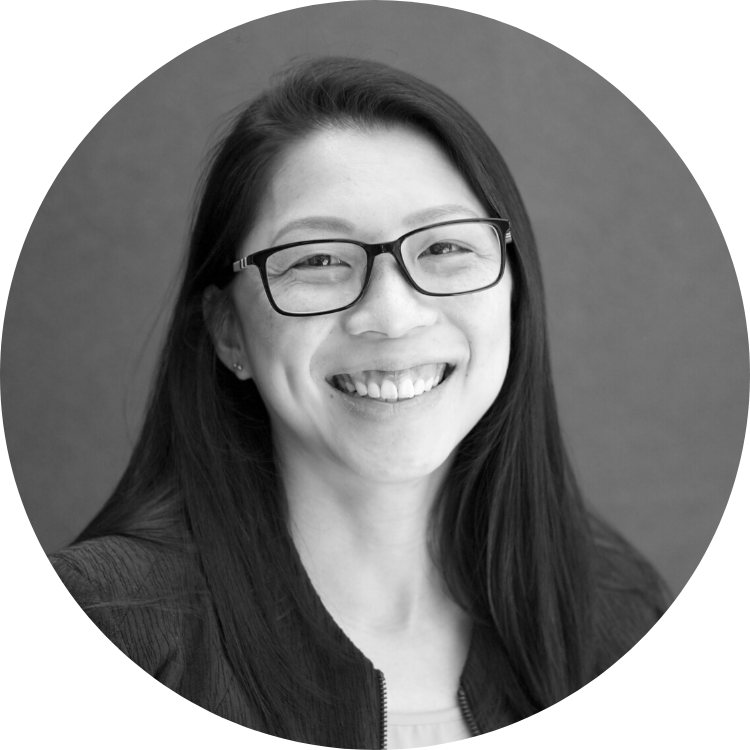
Michelle-Joy Low
Head of Data & AI, Reece Group
In a normal day, what kinds of data / analytics activities are you involved in?
Everything I do is focused on embedded data and analytical in our DNA; value from analytics is only realised when decisions are changed to drive advantage – at all levels of the organisation. So no two days are the same; I’m deeply engaged with:
- Executive leaders on topics of investing in analytical capability, data governance & literacy, designing future operating models
- My team on analytical platform and organisational architectures future replete with opportunities across ML products, analytical decision-support and BI, and;
- Business and vendor partner teams all across Reece shaping domain strategies and the data capabilities (people, process, technology, data assets) needed to drive success
What are the biggest challenges you face?
Having to invest additional energy and time to overcome stereotyping around my gender, race and perceived age
Beyond personal attributes, data has seen a large number of recent advancements, and many Australian organisations are facing challenges keeping pace and grasping the need for investment and executive sponsorship
What would be the proudest or most enjoyable moment in your analytics career?
There has not been a single moment. My greatest satisfaction has been witnessing teams fundamentally change how decisions are made using data & intelligent technologies, and seeing our customers and people better off for it.
What advice would you give to a woman wanting to get into the analytics industry?
The path for women in analytics is not yet well worn. For anyone blazing a trail, facing challenges is inevitable. Persist, be the change you want to see – the work is never don’t, so celebrate every bit of progress made.
In terms of the future of analytics, what do you think will be the most interesting aspect/s?
Analytics will become table stakes. Two decades ago, knowing Excel was a differentiating skill in the workforce; Analytics will likely go the same way. What’s interesting to me is academic institutions, organisations and the current workforce will adapt to that change.
In a world where data & analytics is ubiquitous, I am excited to see how companies build and gain competitive advantage.
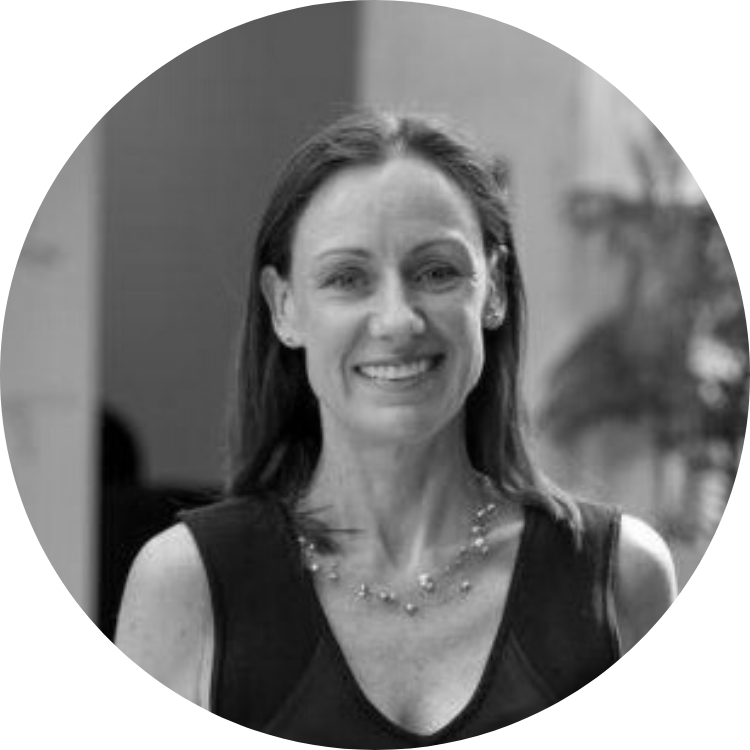
Melanie Zeppel
Data Scientist, Carbon Link
In a normal day, what kinds of data / analytics activities are you involved in?
I source data from collaborators, including remotely sensed data, climate data, soil data, and process, upload to carbon spatial modelling software, and run machine learning algorithms to predict soil carbon for Australian landscapes.
What are the biggest challenges you face?
Working across time and spatially means that we need both carbon models combined with spatial modelling software. Sourcing data from a wide range of industry partners, who are all brilliant, with great products, but are highly sought after, means patience and negotiation skills outside my workplace are required. Being patient until I have all the data to run the model is my biggest challenge.
What would be the proudest or most enjoyable moment in your analytics career?
I was humbled and delighted to win the 2019 Scopus Researcher of the year, for excellence in research impacting sustainable futures. I was also very satisfied to write some complex python code for an experiment on estimating Australian Carbon Credit Units, which now allows us to estimate if we need more field sampling for each property, very early on in the process.
What advice would you give to a woman wanting to get into the analytics industry?
Follow your passion, find great mentors and a cheer squad, and practice negotiating your salary and work conditions. I would also advise that they learn python early in their career (or R), and not leave it remarkably late, like me.
In terms of the future of analytics, what do you think will be the most interesting aspect/s?
The abundance of data available to ask relevant questions, using machine learning to estimate soil carbon for carbon sequestration and abatement, are exciting future developments.
Banking & Financial Services
Click on a name to understand each person's role, proudest moment, greatest challenges and advice for women thinking of a future in analytics.

Ghadeer Alame
Data Analyst Graduate, ANZ Bank
In a normal day, what kinds of data / analytics activities are you involved in?
I am involved in doing data analysis and visualization.
What are the biggest challenges you face?
The biggest challenge I face is being as proficient as I'd like to be.
What advice would you give to a woman wanting to get into the analytics industry?
If you like it do it.
In terms of the future of analytics, what do you think will be the most interesting aspect/s?
The use of AI in analytics.
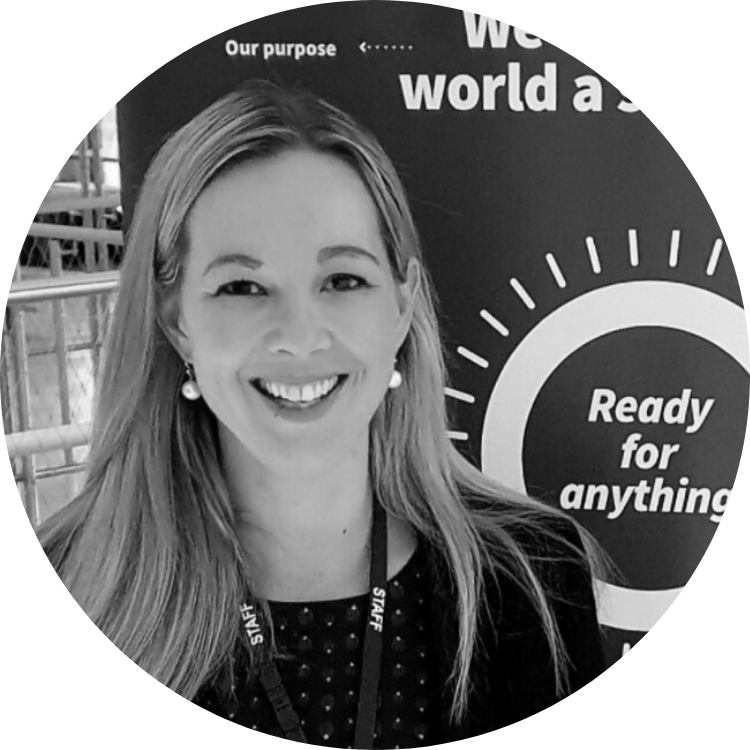
Joanna Aldridge
Principal Scientist, IAG
In a normal day, what kinds of data / analytics activities are you involved in?
Design and construction of extreme weather models for reinsurance pricing, disaster resilience prioritisation and climate change risk assessment.
What are the biggest challenges you face?
The most interesting challenge is the integration of qualitative expert driven insights into complex models, working with top scientists, engineers, insurance and analytics professionals.
What would be the proudest or most enjoyable moment in your analytics career?
Receiving an Emergency Management Australia Disaster Resilience Award for design of a tropical cyclone decision support system.
What advice would you give to a woman wanting to get into the analytics industry?
Put yourself forward and don't let others talk over the top of you or take credit for your work and insights.
In terms of the future of analytics, what do you think will be the most interesting aspect/s?
The next step-change in computing capacity to open up the potential for high resolution large scale ensemble modelling.

Catherine Besido
Data Chapter Lead Responsible Banking, ANZ
In a normal day, what kinds of data / analytics activities are you involved in?
Not on the tools nowadays! What I am heavily involved in day-to-day are centrally driving efficiency, improving the data chapter's mastery & provide thought leadership on strategically what tools to develop or improve that will lead to getting money back in the hands of our customers faster.
What are the biggest challenges you face?
Balancing people matters, delivery & risk management
What would be the proudest or most enjoyable moment in your analytics career?
I've had many proud moments across the different stages of my career! The most memorable are when I built my first credit score card, built and implemented an end-to-end Collections strategy and significant forensic work with Fraud. More recently, building and leading a team of engaged and purpose-led people leaders, data analysts, data engineers, data stewards and data scientists. I learn a lot from them!
What advice would you give to a woman wanting to get into the analytics industry?
(1) Chin up! you deserve the seat on the table (2) trust you unique perspective and human skills. (3)Keep on educating yourself and others (4) Lead by example
In terms of the future of analytics, what do you think will be the most interesting aspect/s?
I am an early adopter when new things come out in the market. With IoT (Internet of Things) around us and the amount of data acquired, I am excited to see how the human experience can be enhanced- less friction, safer, better decision making but not creepy. More so creating IoT that will help build equity in our community.

Sarita Chaturvedi
Data Analyst, ANZ
In a normal day, what kinds of data / analytics activities are you involved in?
As a data analyst my typical day involves gathering data, cleaning data and transforming it into a more organized and meaningful information that business can uses to make decisions.
What are the biggest challenges you face?
There are many challenges but the major challenge is to communicate the technical design or architecture to the non technical people in a way that is easily understood.
What would be the proudest or most enjoyable moment in your analytics career?
I feel proud every time I see businesses engaging in data driven decision making. My proudest or most enjoyable moment was when I was able to avoid a network failure for a telecom company by predicting a network outage.
What advice would you give to a woman wanting to get into the analytics industry?
Be fearless, confident and always eager to learn.
In terms of the future of analytics, what do you think will be the most interesting aspect/s?
I am hopeful the future of analytics would bridge the gap between data and business. The businesses would engage in data driven decisions more than ever.

Anne Dorrestein
Campaign Analyst, ANZ
In a normal day, what kinds of data / analytics activities are you involved in?
As a campaign analyst, I build campaigns based on customer data for 1-on-1 marketing activities (commercial and service). I use the platform Unica to build these campaigns. I combine different data models, data sources and tables to select the right customer for the right campaign, based on the relevant inclusion and exclusion criteria for that campaign. Campaigns often include multiple target groups, contact points with the customer, fulfilment and/or follow ups, which makes it really interesting to work on. Besides that, I also do a lot of data investigation to find the correct data/data source for the campaigns I’m building.
What are the biggest challenges you face?
'- For new campaign criteria finding the data/data source can be quite challenging, especially because it also has to ‘fit’ in the campaign
- Balancing time between all the different aspects of the work: investigating new data sources, working on new (automated) fulfilment solutions, maintaining and optimizing existing campaigns and building new campaigns. It is challenging, but at the same time is the variety also very interesting.
- And more general: how to keep up with new developments in the data/campaign field. There is so much happening, and developments are moving fast.
What would be the proudest or most enjoyable moment in your analytics career?
For me this is always when a (big) campaign I worked on goes live. Some campaigns require a lot of effort and time to launch, so it is really great to see the emails (or SMS or DM) get sent, customers acting upon the emails, following up on customers actions with the next send out, and results. Seeing that everything I built and worked on (together with the team) works, is very rewarding to me.
What advice would you give to a woman wanting to get into the analytics industry?
1. Just get started, start with a project/job/training and learn and grow from there
2. Talk to people already in the data field, find out what you like and in what area of data you are interested in
3. Shadow people, ask a lot of questions and learn
In terms of the future of analytics, what do you think will be the most interesting aspect/s?
For my work in the campaign/data space, real time data will be very exciting, which enables us to be even more relevant and timely with communication to the customers

Mohadeseh Ganji
Head of data science, ANZ bank
In a normal day, what kinds of data / analytics activities are you involved in?
have the pleasure of working with an amazing team at ANZ bank addressing complex business problems and supporting end-to-end home loan journey for our customers, using the power of data and data science. This means the type of analytics activities that I am involved in, spans from reporting/BI and data analysis to advance Artificial intelligence products in every stage of home buying journey, including:
• Helping customers searching for properties, with most accurate free property price prediction platform powered by an advance machine learning engine.
• Application of descriptive and predictive analytics in marketing domain, enabling personalised marketing and developing customer propositions.
• A suit of BI and management reporting providing timely actionable insight for business decision making
• Uplifting the data infrastructure and automation in the Home Loan application process, to reduce time to home loan decision for our customer.
• Forensics analytics and remediation, ensuring a well-managed product suit is delivered and mistakes of the past are remediated in a scalable manner
As head of data science, an important part of my role is to set and execute data strategy and uplift data analytics capability in the organisation. To ensure the data analytics unlock business value and sustainably deliver impact, part of my day to day activities are ensuring innovation with data is embraced, analytics solutions are adopted smoothly and the analytics capability is uplifted across the business.
What are the biggest challenges you face?
Maintaining a balance between fixing data quality and availability issues, building and uplifting foundational and strategic data capabilities and infrastructure, while at the same time delivering maximum impact and value at scale and in timely manner through data analytics, is a rewarding challenge a lot of data leaders like me are facing.
Another challenge is finding and retaining a diverse group of talents in the field. Despite all the good work gone in promoting diversity and inclusion in the field of data analytics, we are still far from where we need to be. On the other hand, the fast pace of excitement and demand in the field of data science and data engineering, makes talent retention one of the challenges for many organisations.
What would be the proudest or most enjoyable moment in your analytics career?
I believe success should be celebrated, big or small. With that in mind I have had many proud moments in my career so far and certainly expect many more to come. Having worked in a few different industries, I am proud my efforts and leadership has made a difference in various business contexts:
Seeing my former MBS students or my mentees taking on senior roles is such rewarding moment. Seeing the impact of my data team’s work on making the field-work on power stations safer and more efficient at AusNet Services, as well as enabling an efficient energy management for renewable energy hubs in Mondo, has been most enjoyable. Being able to help many customers with financial difficulties during covid at ANZ bank, leading my team of passionate and talented data professionals delivering multiple business critical initiatives and making a difference in every step of customer’s home buying journey, all while working remotely in last 2 years, makes me extremely proud and pleased.
All these success stories as well as the opportunity to learn from great leaders throughout my career, have led into being honoured to receive multiple industry awards in my career, including women leading tech award by B&T and IAPA top 5 analytics leaders of Australia.
I look forward to many more opportunities to learn and teach, inspire and be inspired, and make a difference.
What advice would you give to a woman wanting to get into the analytics industry?
Part of the advice I would give her would be no different to my advice to men wanting to enter the field, and those are being ready to learn every day and getting their hands dirty with data crunching, and telling stories with data. The additional advice I would give to a woman wanting to get into the analytics field is to fully believe in herself and her capabilities, and when ready, never hold back in stepping forward in her career.
In terms of the future of analytics, what do you think will be the most interesting aspect/s?
Not surprisingly, the artificial intelligence space especially deep learning will continue to grow and flourish. I am particularly watching the novel application of these technologies in NLP, healthcare and VR domains. Also I believe we will continue to see the uptick trend in adoption of AI and that AI to be embedded and integrated at scale across all industries and businesses in the future.
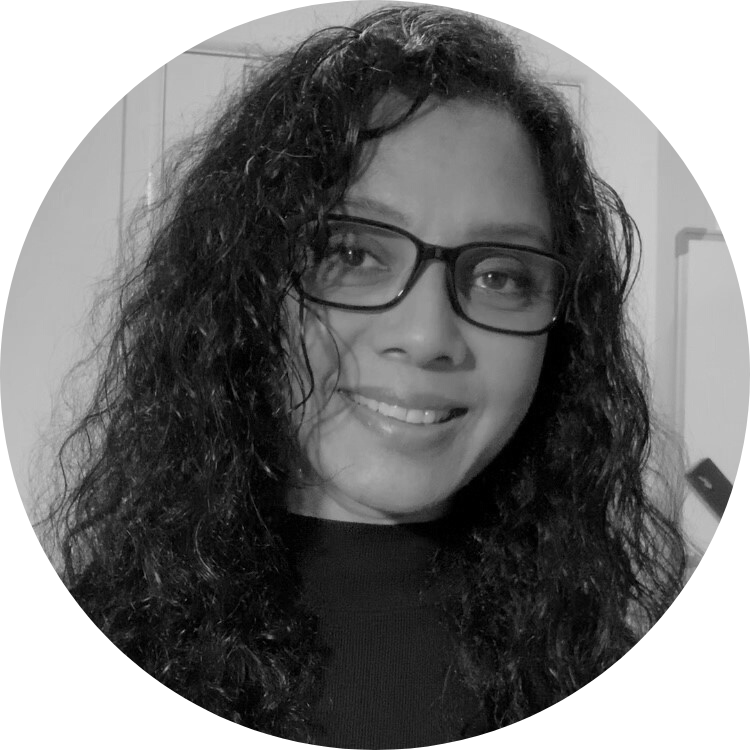
Mangi Jayasinghe
Data Analyst, ANZ
In a normal day, what kinds of data / analytics activities are you involved in?
1. Identify data gaps, pain points of data analysts/scientists and blockers they face day to day basis and look for solutions to fill the gaps and create data capabilities.
2. Build frameworks to create strategical and tactical data solutions to simplify, centralize and automate data, reporting and insight processes.
3. Create frameworks/concepts to build data/ recourse capabilities to understand customer journey and the holistic view of customer behaviour in order to perform profiling on personalized/targeted campaigns which will help improve customer financial wellbeing.
4. Upskill and influence data teams to be empowered and achieve both organizational and individual career goals while being value oriented rather than task oriented.
5. Perform pre/post campaign profiling and process data for customer marketing/service campaigns
6. Act as a business SME/consultant on data/analytical asset creation and building consumption views
7. Interrogate, validate and analyse complex data and create, simplified/aggregated consumable views which can be reusable by the data community
8.Create dashboards/reports on key metrics, demographics and segmentations and draw insights to make data driven decisions
What are the biggest challenges you face?
Data related
1. Making the required data available in centralized repositories or connecting different repositories
2. Not having the correct data captured by the required systems
Career related
1. Always exceeding the expectations of the role but sometimes not moving on when the right time comes, because others expect me to stay and keep adding values to the same place (this is definitely a decision that I have to make rather than pointing a finger to someone else)
What would be the proudest or most enjoyable moment in your analytics career?
Getting one of my concepts around connecting the 360 degree view of customer journey selected/ approved as the base for new analytical and marketing asset
What advice would you give to a woman wanting to get into the analytics industry?
Do not take a task as just an item on your to-do list. See, by completing the task, what value you can add to your growth, your team's growth and the organizational growth. See by doing a task how you can contribute to the wellbeing of your stakeholders/ customers. Be open to take risks and fail. It means you are open to learn. As my mentor says "Always be ready to get comfortable by being uncomfortable". Because taking risks, failing and trying hard again will make you be uncomfortable for a short period of time but, it will make you be very comfortable in the long run when you achieve all your goals and dreams.
In terms of the future of analytics, what do you think will be the most interesting aspect/s?
Using more and more AI-driven data analytics and modeling

Dr Kobi Leins (GAICD)
Senior Consultant in Data Ethics, NAB
In a normal day, what kinds of data / analytics activities are you involved in?
Everything from simple models to complex AI, data sets to de-identified data.
What are the biggest challenges you face?
Businesses are starting to understand the importance of data and incorporating systems and protections company wide, consistently is a challenge. Uplifting digital literacy and interpreting across disciplines is also an ongoing challenge.
What would be the proudest or most enjoyable moment in your analytics career?
Presenting to the United Nations about AI - what it is, and what it is not, and how to engage with those who say they are using it from a policy perspective.
What advice would you give to a woman wanting to get into the analytics industry?
Don't think of analytics as one thing - every skill set is required. The more diverse your background and interests, the more you bring. Find your voice and use it. We need a greater diversity of voices and people in this field.
In terms of the future of analytics, what do you think will be the most interesting aspect/s?
Who gets to decide which tools, data and systems get used how and when, and who decides when the limitations of machines mean other approaches might be more successful.
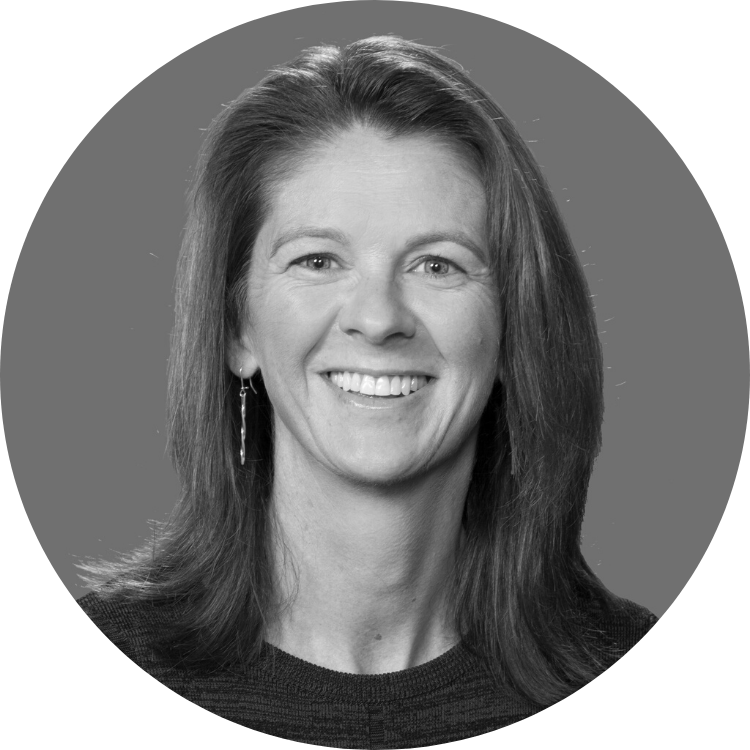
Janine Lloyd
Data Analyst Chapter Lead, ANZ
In a normal day, what kinds of data / analytics activities are you involved in?
Leading an ambitious and high performing team of 10 Data professionals to design and deliver automated, scalable, strategic data eco-systems;
Enable a learning environment that supports innovation where individuals proactively upskill themselves and others;
Collaborate with stakeholders across businesses to define and build data assets and frameworks to ensure sound data governance and quality
What are the biggest challenges you face?
Creating time and allocating resources to ensure sound Data Governance;
Educating business on difference between Data roles and the need for a mix of Data Engineers and Data Analysts
What would be the proudest or most enjoyable moment in your analytics career?
Leading data professionals, to collaborate with others to deliver innovative solutions to allocated projects which also solve broader business problems. For example, delivering an Operational eco-system that also delivers standardised data for all ANZ DA's to use
What advice would you give to a woman wanting to get into the analytics industry?
Trust in your own strengths and skills; Take advantage of opportunities and volunteer for opportunities; Think about how what you do can also contribute to helping others meet their goals
In terms of the future of analytics, what do you think will be the most interesting aspect/s?
How to:
1 Get more effective/automated in Data Science/Analytics to spend less time Data Wrangling;
2 Lead aspiring Data Scientists (who are not aspiring Data Analysts/wranglers!);

Galina McBride
Senior Data Analyst- Home Loans, ANZ Bank
In a normal day, what kinds of data / analytics activities are you involved in?
Each day is different, however most of the time my goal is to derive insights from data and present them to the business in a way that helps them make timely decisions. This could involve sourcing data from different systems, wrangling in Excel or visualizing my findings.
What are the biggest challenges you face?
Often the data that I need in order to help the business with their decision-making is not available or not accessible. ANZ is a big machine, and sometimes things are all over the place.
What would be the proudest or most enjoyable moment in your analytics career?
Last year I got a call from Mark Hand (then Group Executive Australia Retail and Commercial Banking) congratulating me on some work I had done in Home Loans. It was great for my work to be appreciated at such a high level!
What advice would you give to a woman wanting to get into the analytics industry?
You don't have to aspire to be a data scientist or a data engineer, great data analysts are an asset to any business. Also, programming languages come and go, but SQL is king!
In terms of the future of analytics, what do you think will be the most interesting aspect/s?
Data democratization. Data will become more and more accessible to people across an organization. The key role of a data analyst will be to have the business context to turn the data into actionable insights.

Margarita Moya
Chapter Lead, Westpac
In a normal day, what kinds of data / analytics activities are you involved in?
Data and analytics are nothing without communication so a normal day can be a mix of technical work and checking in with the team and stakeholders (product, marketing, customer experience, everyone!). We work closely with different areas of the business to identify, understand and measure campaigns so there's always something that's just been completed, on the go, and coming up the pipeline.
Other days will be much more technical. For example, coaching team members on gathering requirements or code review to turn business questions into engaging data visualisations or executable campaigns. I love working on data tasks with people and if I don't know the answer -- helping them find the person who does.
What are the biggest challenges you face?
On a personal level? Imposter Syndrome. In these moments, I focus on what we’re working towards and what I can do to contribute towards a great outcome. We all bring something different to the table.
Externally: Making sure we keep the balance between working efficiently, managing risks and ensuring that with everything we do, the customer stays at the heart of it. We all want to be more data driven and analytics technology is evolving faster than ever but it's also good to take a moment and ask "Can we do this in a simpler and more elegant way? Does this make sense for the end user?"
What would be the proudest or most enjoyable moment in your analytics career?
There are so many highlights and many of them are because I've been able to work with some very talented and incredibly supportive people.
I can still remember early days when my people leader would coach me through preparing data, modelling, and encouraging me to do my first client presentation. There's nothing quite like getting a better understanding of how the data you've been looking at for weeks relates to the real world.
Currently it revolves around data enablement like working with product owners to help them see and understand data about their initiatives. I love seeing the relationship evolve from the traditional reporting style dynamic, to data coaching sessions, and now they share their dashboards with me so we can analyse and unpack the insights together.
What advice would you give to a woman wanting to get into the analytics industry?
'- Don't be afraid to remind yourself that you are talented and you've got this! Also, look out for each other.
- It's okay to keep asking questions because great ideas can come from robust discussions with the team
- Find both a mentor and a mentee. Each will teach you something different about yourself regardless of where you are at in your career
In terms of the future of analytics, what do you think will be the most interesting aspect/s?
Data literacy and empowering the wider business on how we can use data wisely and safely. We have more tools than ever at our fingertips and those who know which tools to use when will be the data savvy folks that lead the charge. There will be great innovations and automation on the technical side: data storage, data science, data visualisation, etc -- the question is what are you going to do with it?
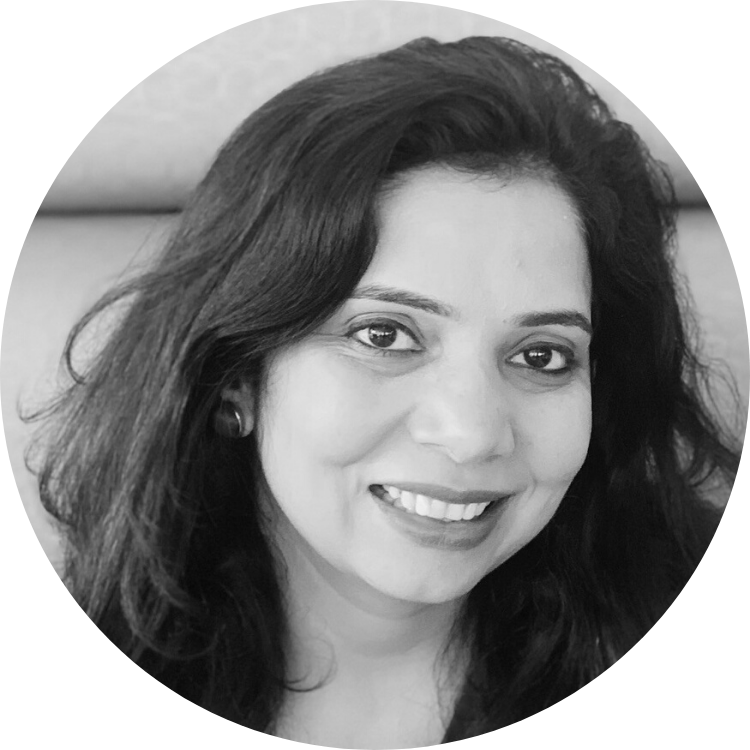
Ritu Nasa
Data Analyst, ANZ Financial Services
In a normal day, what kinds of data / analytics activities are you involved in?
discovering data insights from massive amount of business data, identifying and solving data quality issues and data gaps, requirements refining and ensuring solution developed is catering to all possible data scenarios
What are the biggest challenges you face?
Sourcing data where its a decade old and quality of data collected
What would be the proudest or most enjoyable moment in your analytics career?
There has been many moments that I enjoyed while working with different teams. If I have to mention one, it would be when I resolved a complex issue for identifying and handling data scenarios when the team thought we might need to just document it as a data limitation and would do a manual workaround.
What advice would you give to a woman wanting to get into the analytics industry?
It’s exciting to get into the data and come out with a story and data never lies. All you need to do is just give it a go.
In terms of the future of analytics, what do you think will be the most interesting aspect/s?
It would be good to see how embedded/infused analytics would be consumed in businesses to improve customer experience in real time. Infused analytics will touch every industry, every team and every role to make their life easier. It would play a huge role in improving customer experience and maintaining a better customer churn rate.
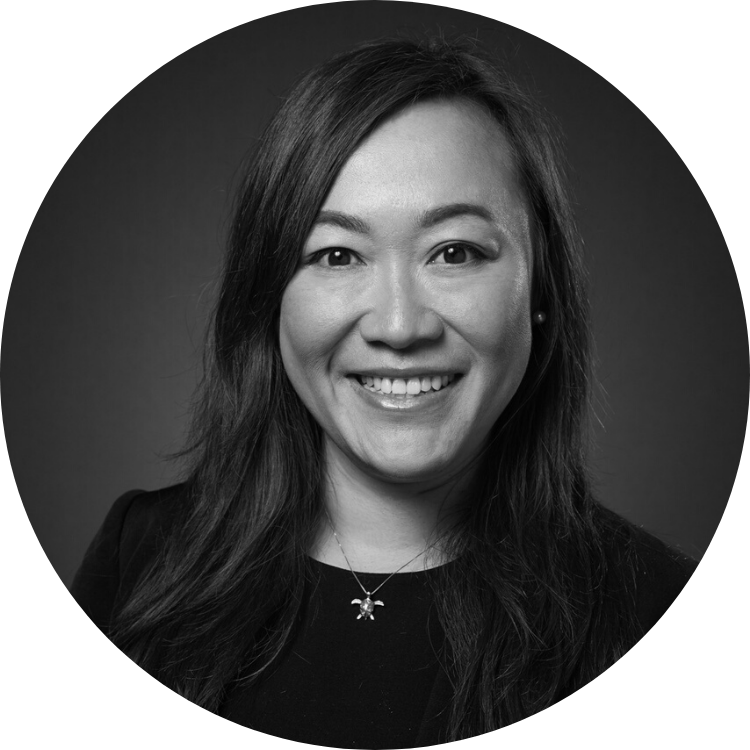
Louise Ngai
Analytics Lead, Westpac
In a normal day, what kinds of data / analytics activities are you involved in?
I looks after the customer analytics and insights team for Brand & Marketing Activities for Westpac. It includes all aspect of data analytics and modelling. We provide data insights into finding business opportunities to drive commercial value uplift in marketing activities. We create customer segmentation models and Machine Learning/ AI models that predicts customer behaviour to be used in Omnichannel campaigns.
A large part of our analytical work are fed into strategic marketing planning where it is our task to identify and quantify the Xsell or retention opportunities that exist for a particular product portfolio.
What are the biggest challenges you face?
The biggest challenges is our need to handle complex data infrastructure and extract key insights into commercially viable products that can drive business value. We are facing ever changing technology and increasing data complexity in our big data platforms that dealing with Lakehouses can become an obstacle for us.
What would be the proudest or most enjoyable moment in your analytics career?
The most enjoyable moment in my analytics career is when the price elasticity model that I'd created was launched and the pilot campaign had successfully generated 9bpt of incremental uplift in a 3 months period.
What advice would you give to a woman wanting to get into the analytics industry?
Analytics is a very broad area and it can cover different areas from Marketing, Risk, Operations, strategy, technology. It's a good idea to research into the fields first and understand what business problem will you solving for. I still remember being the only female in a room of 20 male within the analytics team. It is getting a lot better these days, but it can be daunting as well. Be brave and speak up would be my advice.
In terms of the future of analytics, what do you think will be the most interesting aspect/s?
All the new big data technology has enable some great benefits of innovation through real time communications and decisioning. However, this has created an enormous challenge for analytics to simplify these signals and convert data into insights. It'll be interesting to see how big data technology providers will support make insights generation easier.
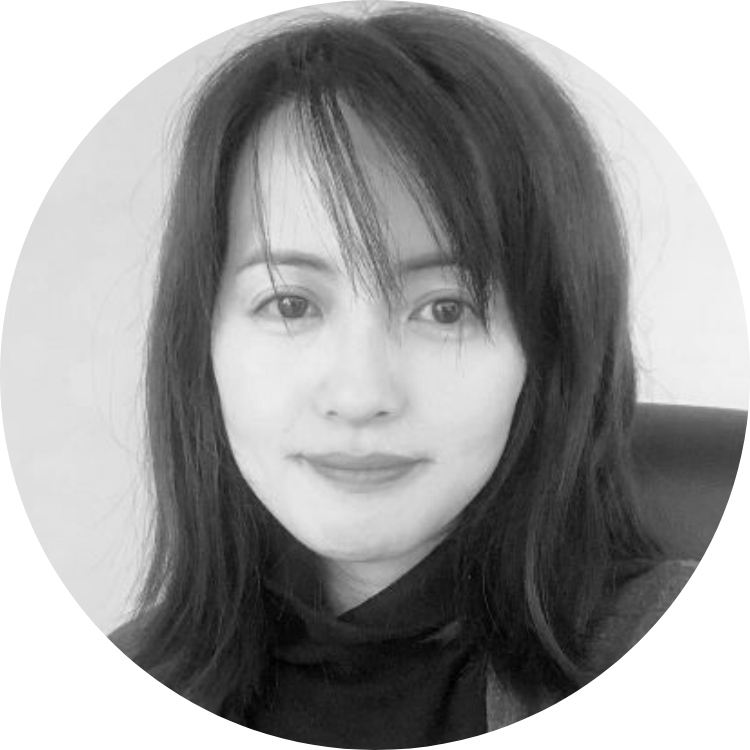
Carine Ong
Data Analyst Chapter Lead, ANZ Bank
In a normal day, what kinds of data / analytics activities are you involved in?
I works in a remediation project, live and breath with Data Analytics, I analyse data for remediation requirements, analyse complaints data for processes uplift and improvements, analyse the refund figure and segmentation to plan for the payments, analyse time value money. In a data driven culture environment, we use data for decision making and improvements.
What are the biggest challenges you face?
The biggest challenges that I faced is Data Quality. The data quality impact the outcome of data analysis. I have seen many organisation heavily invest on Data Quality. Is important to have Data governance in place to ensure quality data drive the business outcome.
What would be the proudest or most enjoyable moment in your analytics career?
The the most enjoyable moment in my analytics career is incorporated data analytics in Law Enforcement to build a better community.
What advice would you give to a woman wanting to get into the analytics industry?
Nothing going to stop us to pursue where we want to be except our own fears. Be perseverance, open and curious.
In terms of the future of analytics, what do you think will be the most interesting aspect/s?
Leverage data analytis and incorporate Artificial Intelligence on our daily life for instance biometric fraud detection, biometric security and digital payments and etc.
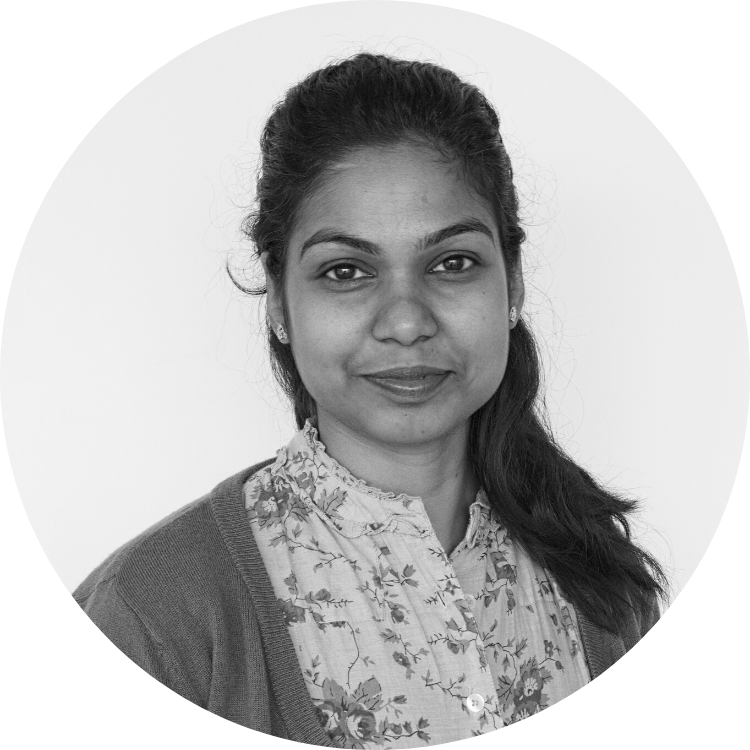
Binita Poonam
Data Engineer, ANZ
In a normal day, what kinds of data / analytics activities are you involved in?
Data warehousing, Data wrangling, Data migration.
What are the biggest challenges you face?
Data illiteracy among senior/middle management.
What would be the proudest or most enjoyable moment in your analytics career?
Being recognised for the important role that data plays in shaping the future of the organisation.
What advice would you give to a woman wanting to get into the analytics industry?
The time for modesty is over, blow your own trumpet and let people know your worth. Analytics has the power to change the course of any field including, but not limited to, science, business and politics.
In terms of the future of analytics, what do you think will be the most interesting aspect/s?
Artificial Intelligence is definitely changing the world we live in.
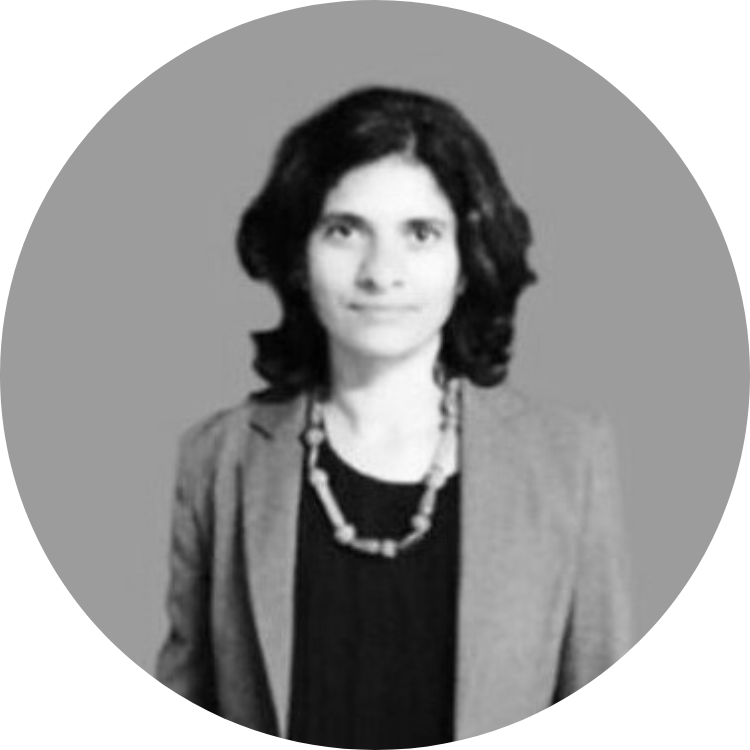
Hema Prasad
Head of Data Architecture - CDAO, Commonwealth Bank of Australia
In a normal day, what kinds of data / analytics activities are you involved in?
Leadership, direction and advisory for data & analytics strategy, capabilities, architecture, operations, execution and delivery.
What are the biggest challenges you face?
Striking the right balance between agility and governance is a constant challenge, particularly in large organisations. In addition, data projects tend to run multi-year whereas technology advances every day which means that there is a constant catch-up game organisations have to play in order to stay relevant in the technology space.
What would be the proudest or most enjoyable moment in your analytics career?
My day job as a data and analytics executive involves delivering business transformations via data and analytics and creating sustainable value. Of late, my most enjoyable moments are when I'm a mentor. Nothing compares to the joy and satisfaction I get when I'm able to influence people (aspiring IT professionals or high-school girls or grads) to choose data & analytics as their career field, be their mentor and see them transform into smart data leaders.
What advice would you give to a woman wanting to get into the analytics industry?
The devil lies in the details (aka data) and women naturally have certain cognitive and behavioural abilities that enable them to tame this devil with ease. I believe that data and analytics is probably the most suited field for women. My advice to women and girls - Don't think twice before choosing STEM or data and analytics - you'll absolutely love it.
In terms of the future of analytics, what do you think will be the most interesting aspect/s?
The last decade saw businesses trying to leverage data and analytics for improving material business results but lately, there's been a huge shift globally towards using data and analytics for the greater good of mankind. This trend is what I believe defines the future of data and analytics. This glorious future will enable us to solve the most pressing issues facing mankind today.
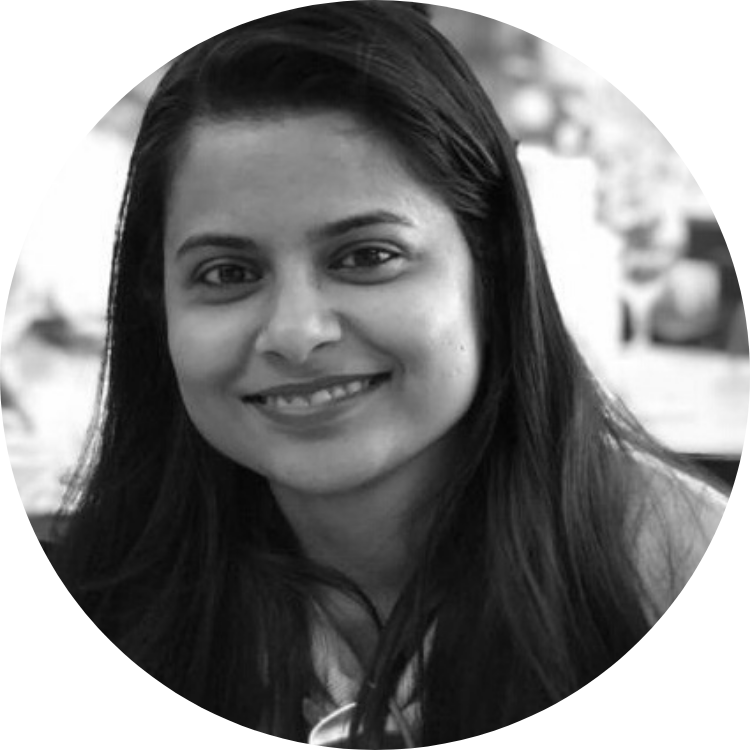
Ruchi Priya
People Analytics Consultant, Allianz Australia Limited
In a normal day, what kinds of data / analytics activities are you involved in?
I am deeply involved with generating insights for HR and businesses for any of their people related problems/requests covering all facets of an employee from entry to engagement to exit. In my role I support in translating complex people related problem into simplified, tactical and actionable items that are always data driven. Also involved a great deal in building interactive dashboards and aiding the business and HR to self-serve a lot of insightful information. I also mentor the young interns & graduates in the team who are looking to build their career in this space.
What are the biggest challenges you face?
Very specific to People Analytics is the fact that not all companies have people analytics set up, which means there really is very little path-breaking projects on the horizon. There really has to be greater thrust towards optimising some processes in HR and actively moving towards increased data modelling and use AI in HR to bring more value.
What would be the proudest or most enjoyable moment in your analytics career?
My proudest moment hands down so far has been around exploratory research and analytics done to understand employee turnover and overlaying that with all possible employee related data gave some very interesting insights. Eventually was able to reject a lot of hypothesis from the business and at the same time bringing insights to influence the way we operate.
What advice would you give to a woman wanting to get into the analytics industry?
My advice would be to take the plunge with very keen eyes. As they say, devil's in the detail and therefore its very important to look at all aspects of data with great attention. Its an ever-evolving field and therefore keeping yourself relevant is necessary. it requires constant effort.
In terms of the future of analytics, what do you think will be the most interesting aspect/s?
Now that there seems to be enough awareness about the power of data, maintaining data integrity and having rich and diverse data is critical. Also, AI is changing the face of the world very rapidly. The perfect synthesis of these would not only help solve a lot of business problems, but also help predict a lot of people driven issues. The foresight of what can happen would arm HR & business to drive engagement and have the optimum utilisation of talent & skills in each sphere. Its a win-win for company and the employees.

Rolee Satyam
Chief Data and Analytics Officer
Westpac
Rolee Satyam is a senior digital and data leader with two decades of experience across Asia, Australia, and America. At present, she is Chief Data Officer of Westpac Consumer and Business banking division.
Her role encompasses all aspects of data to ensure data is leveraged to drive positive customer outcomes and data risk is within appetite.
In her extensive career, she co led the successful data transformation of WooliesX (Woolworths digital and data arm) driving optimisation & innovation. Prior to that, Rolee was based in San Francisco leading the digital and data plan for Walmart.
Rolee is passionate about gender equity and purpose driven work.
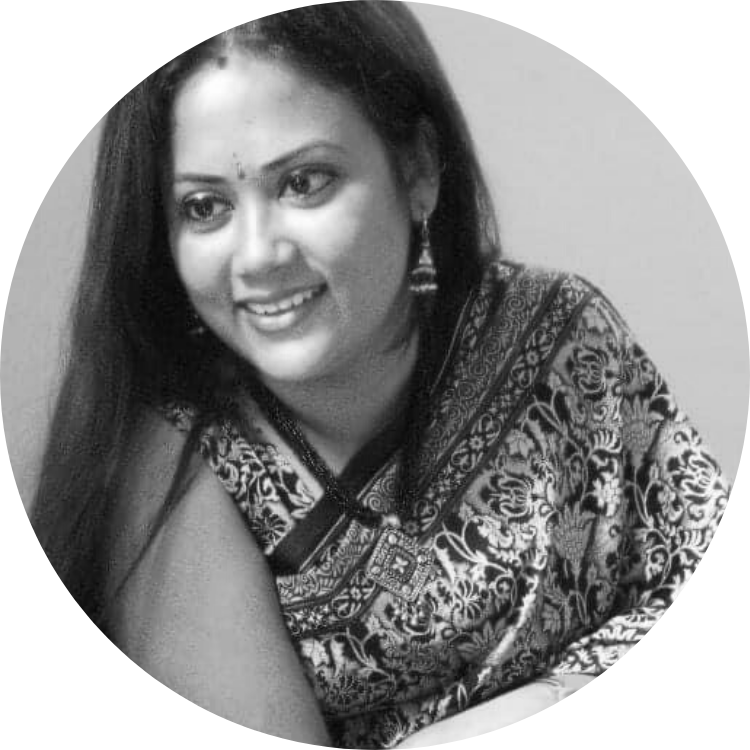
Bidisha Sengupta
Data Analyst, ANZ Bank
In a normal day, what kinds of data / analytics activities are you involved in?
Historical Data Analysis across various technical platforms - Oracle, Teradata, Big Data - to source information on various ANZ products for customer remediation.
What are the biggest challenges you face?
Historically not all the required data is available on one data platform for all products. To source information from structurally different platforms with workarounds for know DQ issues is the biggest challenge.
What would be the proudest or most enjoyable moment in your analytics career?
When a quick and predictive estimate on the data totals and cost translate to real totals and cost after a deep drive, makes me feel proud of the analytics approach, whether it is time constrained or detailed solution build within the Data governance framework.
What advice would you give to a woman wanting to get into the analytics industry?
1) Assume an analytical mindset in your day-to-day life.
2) Research how analytics are leveraged in your industry of interest.
3) Develop your coding skills - technology can be learnt as per the market requirement however the logical approach is to be learnt for any coding
4) Build a Network with fellow Data Analysts to get the right opportunity.
In terms of the future of analytics, what do you think will be the most interesting aspect/s?
Predictive analytics and its impact on our daily lives.

Sahar Sohrabi
Data Analytics Lead, ANZ Bank
In a normal day, what kinds of data / analytics activities are you involved in?
Data extraction, visualization and spending most of the day coding PySpark scripts that deliver business value.
What are the biggest challenges you face?
I love coding and enjoy what I do. My biggest challenge is to "log off" from thinking about the work when I'm not even behind my laptop.
What would be the proudest or most enjoyable moment in your analytics career?
I love mentoring and coaching. One of the proudest moments is to see the mentees grow in their capabilities.
What advice would you give to a woman wanting to get into the analytics industry?
Just do it. You are good enough.
If you need help/guidance, I'm more than happy to help.
In terms of the future of analytics, what do you think will be the most interesting aspect/s?
I find integration of data analytics processes and business applications very interesting and believe they can deliver more value when put together.
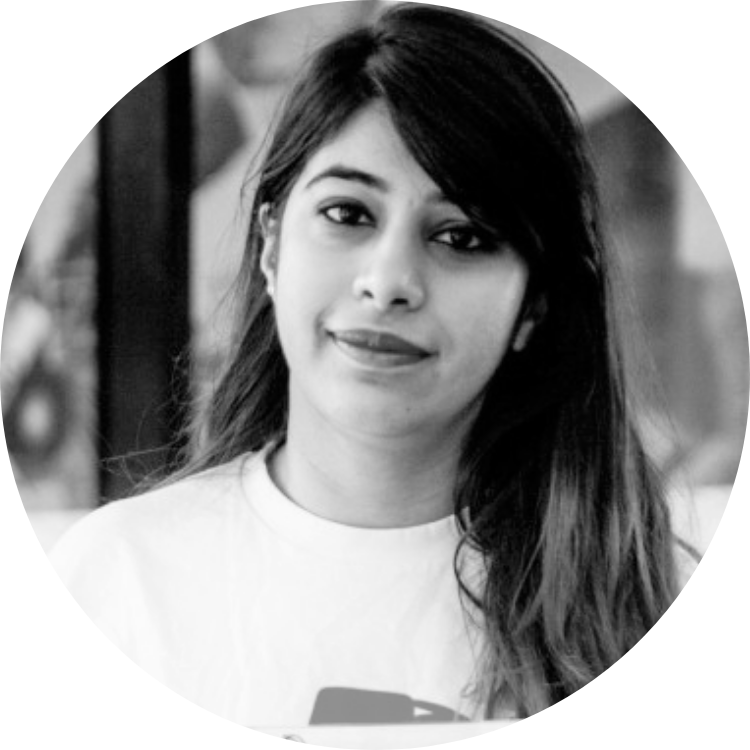
Ria Talwar
Data Analyst, ANZ Bank
In a normal day, what kinds of data / analytics activities are you involved in?
I work with the Home Loans Team at ANZ and help with the data side of the products. My usual activities in a day involve:
- Working with the product managers to understand home loan products better.
- Getting approached by the product managers for any problems encountered by customers using the products where I gather all the information required.
- Running scripts on the data and analyzing the output to make an informed decision from the data perspective.
- Validating the information by discussing with the product managers and understanding what approach they will take to solve the issue.
- Leading the annual/quarterly product reviews for the Home Loan products and presenting it to the leadership. This makes it very easy to determine the product efficiency and improvements over time.
- Making sure all the code I write is well documented and is easy as well as secure to share using Confluence and GitHub.
- Create automated reports using SQL to run every month for any issue that is encountered and can be recurring. Also, monitor the reports from time to time.
What are the biggest challenges you face?
I often face challenges to get the business knowledge. I am a person who likes to work in different industries to understand how analytics plays a part in each one of them. At the job, you are required to work alongside subject matter experts with years of knowledge of the industry. It becomes a challenge to match the in depth knowledge and know all about the field. To be a good data analyst, you need to understand how and what data you are pulling to get the storyline correctly.
What would be the proudest or most enjoyable moment in your analytics career?
I love to work in industries where I can see the impact generated and it directly benefits the people. I have worked majorly in the healthcare, education and banking sectors and each time I see that the work I did impacted a policy or change which made other people's life easier I feel happy. The proudest moment will be when I will be able to motivate other people to do the same by setting an example.
What advice would you give to a woman wanting to get into the analytics industry?
My advice would be that there will always be people who will believe in you and always those who say you can't do it, always believe in yourself. Even if you do not have experience you can still get into the analytics industry given you have the right mindset. There are so many online courses and communities which you can join and get ample amount of experience. You can start with online courses involving requirement gathering, analyzing, modelling or visualizing. This will help you understand that analytics involves a lot of roles which are equally important and will also help you further discover your interests.
Mentorship is really important. It is good to connect with senior leaders in the industry and ask them if they can be your mentor. I am sure they will be happy help and you can learn a lot from their experiences.
I would also like to give some real life examples like below:
- I had a friend who thought about a career change after 2 kids and joined a Masters program in Data Analytics. The persistence I saw in her eyes to understand each and every concept motivated me to push myself harder. Today she is working with one of the leading companies in Australia.
- I came to Australia as an international student. Before coming to Australia, I was working in a comfortable job as a data consultant for Mckinsey & Company. I enjoyed the work but the urge to know more about data pushed me to go for a Masters in Data Science. Everyone told me that it is impossible to get a job in your field. It was a different geography and culture but I polished my profile and completed online courses in addition to my full time studies. I focused on skills that were in demand and matched my interests. Through my hard work and knowledge I was able to find a job at SEEK. I still wanted to explore more and started tutoring at RMIT for data preprocessing. When I look back I can't believe I did it when everyone said you can't.
If I can do it, so can you !!!
In terms of the future of analytics, what do you think will be the most interesting aspect/s?
I am really curious to understand the role Metaverse is going to play in the field of analytics and how our current workforce will adapt to these changes. It would be interesting to see Real time data analytics combined with Metaverse. As I currently work with a bank an example would be real time analysis and processing of customer issues.
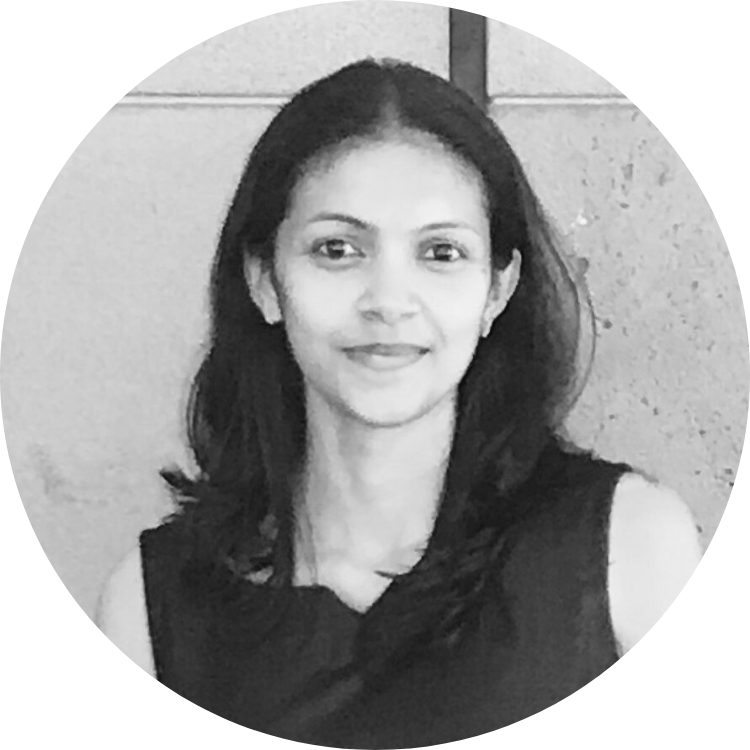
Jismi Tess Antony
Data Analyst - Responsible Banking, ANZ Bank
In a normal day, what kinds of data / analytics activities are you involved in?
Data analysis, identifying and implementing solutions for problem statements involving customer remediation.
Data storytelling - bridge the gap between technical and non-technical people.
Manage information and identify trends to accelerate thoughtful and balanced business decisions.
What are the biggest challenges you face?
Working on data across different platforms, legacy systems and unavailability of data mapping documentations.
What would be the proudest or most enjoyable moment in your analytics career?
Industry Mentoring for University students. Loved sharing the learnings and providing guidance to aspiring data professionals.
What advice would you give to a woman wanting to get into the analytics industry?
It's time my friend. The world of data is awesome and the opportunities are endless. You will always find something interesting to do.
In terms of the future of analytics, what do you think will be the most interesting aspect/s?
Analytics is crucial for smarter decision-making.
Would be interesting to see how the expanding machine learning and artificial intelligence landscape uncover endless possibilities in data security and privacy for a stronger and better data world and making thoughtful and balanced decisions.
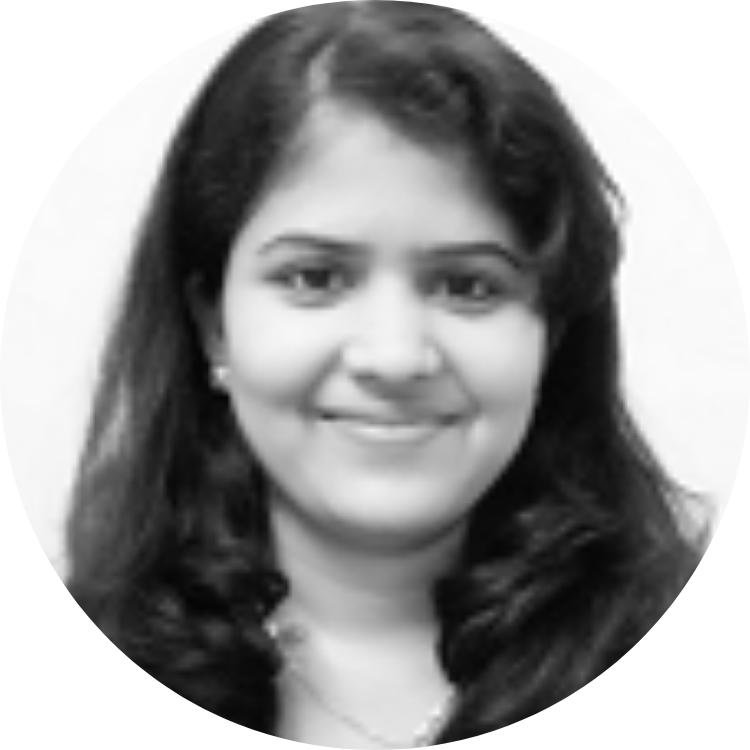
Poornima Tiruvannamalai Ezhilmathi
Data Analyst, ANZ
In a normal day, what kinds of data / analytics activities are you involved in?
Development of software projects using big data technologies that uses coding/scripting languages like PYTHON,JAVA to build applications
What are the biggest challenges you face?
Managing both personal and professional commitments in balance and to see success in both parts of the life.
What would be the proudest or most enjoyable moment in your analytics career?
I'm enjoying and proud to see myself working with latest technologies and being competitor in the software world
What advice would you give to a woman wanting to get into the analytics industry?
Being consistent gives consistent results. Keep upgrading ourselves on rich coding skills and with latest technologies and present in our own style of development and provide innovative ideas.
In terms of the future of analytics, what do you think will be the most interesting aspect/s?
Growing big data and consistent change on technologies.

Renu Tiwary
Data Analyst, ANZ
In a normal day, what kinds of data / analytics activities are you involved in?
Data extraction, analysis, insights and presentation and Campaigns driven from these analysis
What are the biggest challenges you face?
Though things are a lot better now..
Initially I found I was the only woman in team and my issues like work life balance, empathy that a woman would give another and on top cultural difference as I came from India that was vastly different at that time to the working environment at that time in Australia.
I was very interested in other activities outside of work which I could never time for.. part time was not a real option.
What would be the proudest or most enjoyable moment in your analytics career?
To be able to stand up in a room full of strangers and present my findings and come out winning with that. It was work of many years of understanding data, technical work, people and culture in many ways.
What advice would you give to a woman wanting to get into the analytics industry?
Go and get it. It is rewarding, enriching, makes you think in different dimension, you challenge yourself and come out a winner in life. I feel that my life is more fulfilling after choosing this career which was a bit "different" choice for a girl when I started.
In terms of the future of analytics, what do you think will be the most interesting aspect/s?
Love seeing how robotics are helping in real life. I think knowledge is at its most useful when it directly benefits humankind and its way of living. It is our responsibility to make this a better world for the next generation.

Laura Travers
Senior Business Partner - Data and Insights, Afterpay
In a normal day, what kinds of data / analytics activities are you involved in?
My role within Afterpay sits in the Customer Science & Strategy team which is a function that supports the entire organisation, from sales to marketing to trade to investor relations. The key objective of my role is to unlock the value of Afterpay data to help win with our customers, merchants and market, scaling actionable insights through world class data & insight. Being a global role, and with Afterpay moving at such a rapid pace, no two days are ever the same.
On a daily basis I work on multi million dollar acquisition pitches - the most recent being worth $1.2bn, where my role was to showcase the value of our data and insights proposition and identify the opportunities of utilising our data to drive new customers and frequency. This was a pitch we were successful in, with the feedback being that the data and insights component played a critical role in securing the partnership.
I also recently worked on a sophisticated behavioural segmentation project which utilised machine learning to segment our customers based on their purchasing behaviour with Afterpay. This is something that is now embedded into the fabric of the organisation and forms the common language of how we speak about our customer. I leverage this segmentation on a daily basis to help develop effective cross market customer strategies, ensuring relevance and delivering to customer needs to drive engagement, enabling and elevating the next evolution of targeted communication.
The segmentation has already proved successful in early stages of testing in our Afterpay day campaign, with our tailored comms driving a 9% uplift on never active users compared to a 10% hold out group. This proved confidence and support of our analytics capabilities and how we can be more efficient and effective in our marketing spend.
A key focus of my role is also around how we can effectively improve processes and scale insights throughout the business. This involves working closely with our analytics function to build reports that can be used throughout the entire organisation, applying a key commercial lens of what is interesting to the business and our partners. I have also led the rollout of ThoughtSpot, an insights tool, in order to democratise data within the business and to empower teams to pull their own insights. With this, I have set up training sessions and provided teams with the right tools to be successful and self-sufficient in leveraging data driven insights within their role.
What are the biggest challenges you face?
I would say the biggest challenges are the same as those faced by anyone working as an analytics professional - ensuring the data we leverage is telling the right story and is also constantly actionable. We have so much data available it can be overwhelming - ensuring we are looking at the right data to make smarter business decisions is a constant challenge.
For Afterpay more specifically, a key challenge is the pace of the business and ability to prioritise workload. My role is global, supporting multiple teams, and with over 50k merchants hungry for insights, it’s key to know where to focus your efforts that will drive the greatest value and impact for our business, customers, and merchants alike. That can be a challenge in itself, often with competing priorities.
Lastly, from a market lens, increasing competition is a challenge. BNPL as a product is being commoditized and competition in this space is getting more and more heated. Having the ability to cut through the noise and being able to identify and communicate the Afterpay value proposition - one that is backed by data - is critical. We are the pioneers in this space, we have a fiercely loyal customer base, and drive incrementality to our merchant partners - being able to effectively communicate and quantify that value is essential, whilst also being able to provide actionable recommendations on how we can improve our product offering backed by data driven insights.
What would be the proudest or most enjoyable moment in your analytics career?
I’ve been lucky enough to work at Afterpay for 5 years now in my analytics career and my proudest (extended) moment is to be part of the evolution of our analytics and strategy team and see us go from strength to strength in terms of how we work with our merchant partners and leverage our rich data. In just over a year our customer science and strategy team has grown 5 fold to over 25 people and with my deep understanding of the business and being there at its infancy, I’ve played a consultative role on how we shape and develop our insights as well as being that strategic merchant partner having a deep understanding of merchants needs.
One product roll out which was monumental to the business - and industry - is iQ; an AI-powered insights, visualisations, and real-time data platform in one self-service UI, which empowered and enabled merchants to access simplified insights for their entire organisation. I was heavily involved from the pilot to identify merchant needs and garner feedback, to consulting on it’s development and holding regular feedback sessions to help inform and build the product roadmap. The uptake and feedback was phenomenal on how it helps inform strategic business decisioning as well as informing the next best marketing action, which is testament to its success. “iQ is helping us talk to the right customer in the right way,” HiSmile.
What advice would you give to a woman wanting to get into the analytics industry?
The next decade will be dominated by companies that master data driven customer experiences, but what is critical is the application of that data. With a vast amount of data out there, those businesses that will succeed are those that are razor focused on driving out the ‘so what’ and provide actionable insights - otherwise the data is redundant. It is therefore essential to interrogate every insight with the lens of whether it adds value to key stakeholders and creates new opportunities to drive growth.
Whilst being technically proficient is important, it is critical to have a strong commercial lens and be able to identify trends and opportunities within the data as well as the ability to communicate findings into a customer focused narrative. You will often be presenting to stakeholders of all levels with varying degrees of data proficiency and therefore it is critical to present data in a simplified way that can very easily be interpreted.
Lastly, the ability to ask the right questions to get to the crux of the problem is crucial. It's one thing to know the answer to a data related question, it's another to be able to help the business know what questions they should be asking and to see your work have real impact on the business because it's grounded in actionability.
Very often people ask for data without knowing what they will do with it or the problem they are trying to solve. A great analytics professional will be able to unpack that and provide them richer insights that will more effectively answer their question.
In terms of the future of analytics, what do you think will be the most interesting aspect/s?
I think it’s the continued rapid evolution of machine learning and AI and how it offers the ability to disrupt and enhance our existing processes in virtually every segment of society. It’s expected future impact is huge in achieving efficiencies to everyday operations, business processes and boost productivity. Whilst it has provoked fear of the potential need for humans becoming redundant, it enables business leaders to make more informed decisions and analyse immense volumes of data that a human couldn’t possibly do alone in a timely manner, creating space for more strategic big picture thinking and greater innovation. As well as making it easier for end users in business functions to interpret data and have clear visualisations at their fingertips, democratising data and becoming central to a company's culture. I’m interested to see how that unfolds over time.
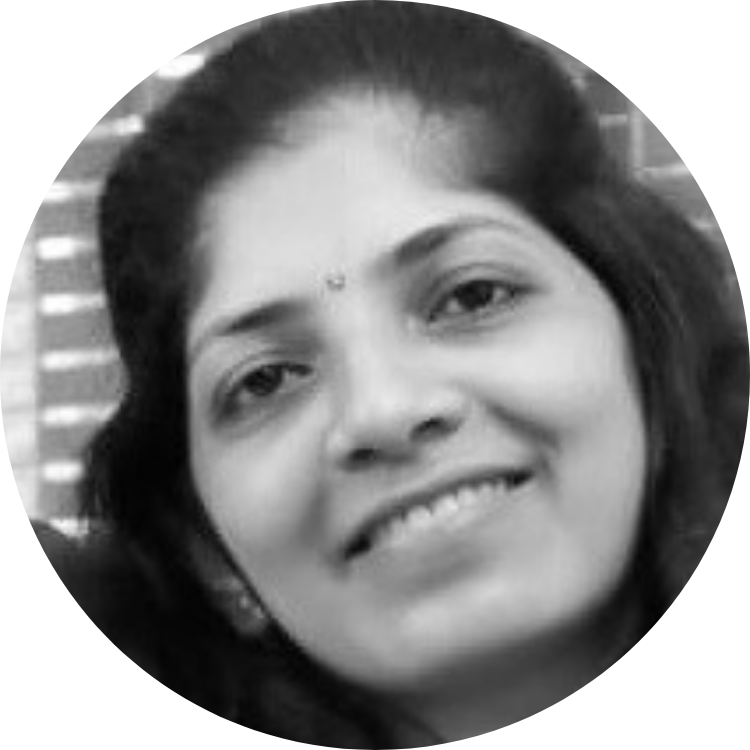
Lekshmi V K
Data Analyst, ANZ
In a normal day, what kinds of data / analytics activities are you involved in?
Data Analytics for a customer remediation solution
What are the biggest challenges you face?
Initial learning of new tools
What would be the proudest or most enjoyable moment in your analytics career?
I just love data and enjoy whatever I do in data space
What advice would you give to a woman wanting to get into the analytics industry?
Be open, ask questions (no question is silly), just have the desire to learn as you go and enjoy every moment
In terms of the future of analytics, what do you think will be the most interesting aspect/s?
Future analytics will be more around the machine data as we surrounded with lot or AI and automations. The focus will be more around cyber security and data protection in the cloud.

Nadia van Zyl
Retail Models Manager, ANZ
In a normal day, what kinds of data / analytics activities are you involved in?
The analytical activities I'm involved in day-to-day is wide ranging - from analysing the drivers of capital models to explain movements in capital holdings to testing non-traditional modelling techniques on traditional banking prediction problems.
What are the biggest challenges you face?
The first challenge I usually think of is...data, not just the quality of data but also access to data and the availability of data lineage. The second challenge I have experienced, which is worth mentioning, is creating that trust in analysis results, especially when it is in contradiction to what is believed to be true based on "gut-feelings".
What would be the proudest or most enjoyable moment in your analytics career?
There has certainly been some memorable moments but I would say my top moment to-date was when I started to manage my own small team of analysts for the first time. My team and I were responsible for putting together a plan of action to address the challenges of the portfolio we were responsible for, and being given that responsibility and freedom to propose and implement solutions was an amazing feeling. Having a senior leader place that much trust in you because they have confidence in your abilities is just the best pay-off after years of hard work.
What advice would you give to a woman wanting to get into the analytics industry?
The first step would be to start adding the right skills to your skillset - I'd start with some basic coding skills which you would need when using data extraction and analysis tools (of which there is a large variety). Then I would look doing some basic courses on data visualisation and wrangling before moving onto modelling techniques. Furthermore, being curious and detail-orientated are great attributes to have as an analyst because a big part of the job is firstly finding patterns and then thinking critically about whether these patterns makes sense and what might explain the trends you are seeing. Lastly, something I continue to work on is my storytelling techniques because being an analyst is not just about doing the analysis but also about communicating your findings in simple way that makes sense to different audiences.
In terms of the future of analytics, what do you think will be the most interesting aspect/s?
It is certainly an exciting field to be in and many years later I'm still happy with my choice of a career in analytics. There has been many new developments in the field of analytics since I first started - especially around new modelling techniques and the quantum of data available - and these new developments has certainly brought its own set of challenges, especially around explainability of complex model results and preventing moral bias. As models become more complex we are going to have to rethink how we monitor and assess these models and ensure that as we are automated larger parts of society were are not causing unintended harm to some subpopulation.

Kiki Wang
Data Analyst, ANZ
In a normal day, what kinds of data / analytics activities are you involved in?
Analyzing customer data, transaction and product related data to improve customer experience or help the business to provide better service with our customers.
What are the biggest challenges you face?
Get to know the whole picture is very hard. Since I'm a data person, knowing more on the business side will give me the chance to give better solutions, but sometimes I feel our data team is too separated from the business, which brings some challenges.
What would be the proudest or most enjoyable moment in your analytics career?
Developed a engine which automates a huge part of our analysis process. Bring up the efficiency by above 10x.
What advice would you give to a woman wanting to get into the analytics industry?
There's no intelligence difference between woman and man. Many ladies are doing great great jobs in the industry. Trust yourself, especially when you want to step up and make a decision for the team.
In terms of the future of analytics, what do you think will be the most interesting aspect/s?
Feature building and cloud.
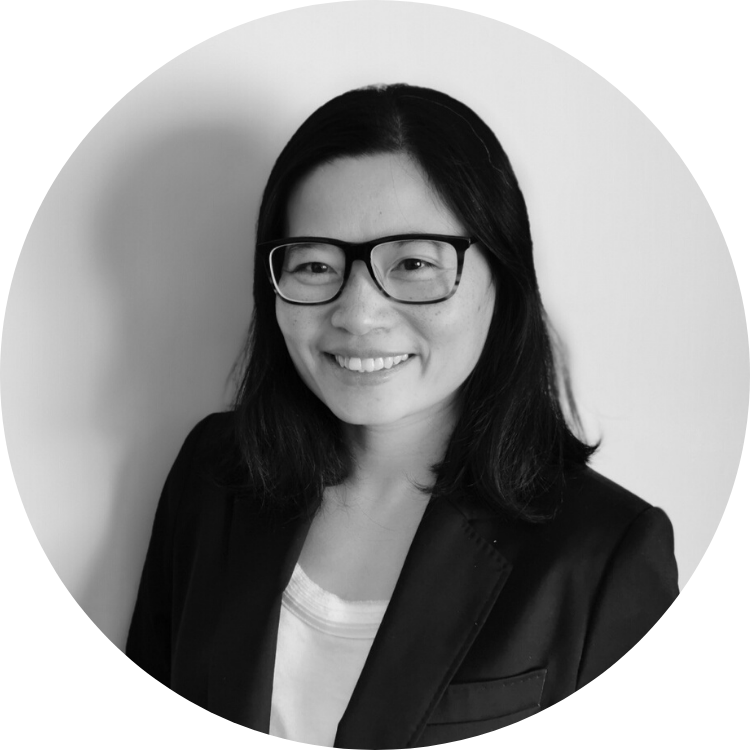
Lidia Xia
Data Analytics, ANZ
In a normal day, what kinds of data / analytics activities are you involved in?
Provide end to end data insights (from raw data to useful information) to assist business with informed decision making.
What are the biggest challenges you face?
Presentation
What would be the proudest or most enjoyable moment in your analytics career?
Being able to draw insights and influence decision making
What advice would you give to a woman wanting to get into the analytics industry?
Get ready to become nerdy
In terms of the future of analytics, what do you think will be the most interesting aspect/s?
automation, data visualization, machine learning
Consulting
Click on a name to understand each person's role, proudest moment, greatest challenges and advice for women thinking of a future in analytics.
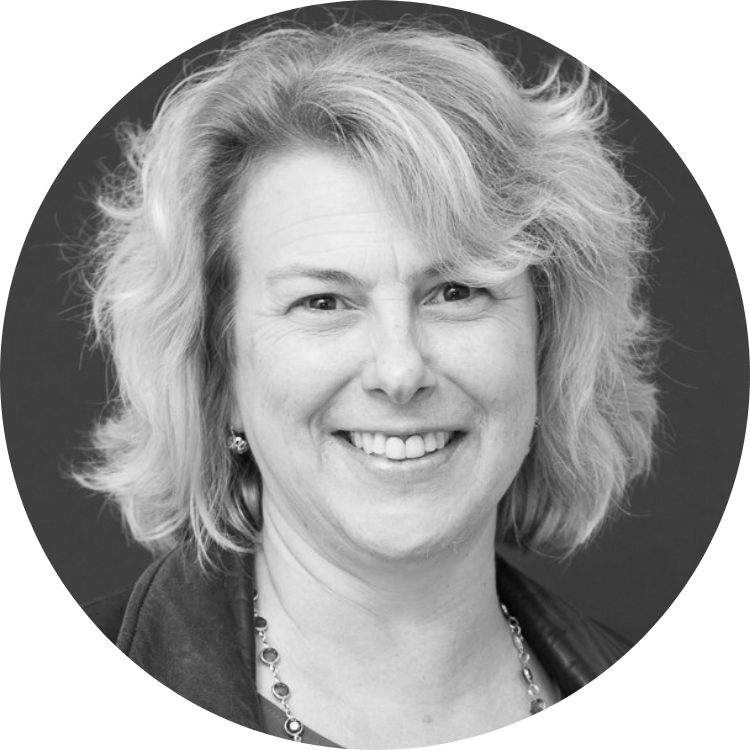
Theresa KD Anderson
Social Informaticist, Connecting Stones Consulting
In a normal day, what kinds of data / analytics activities are you involved in?
My work focuses on the ethics of data and AI and finding ways to 'make the invisible visible' by helping analytics professionals and decision makers become more aware of bias in data, beginning with the way data is made through to the way data is organised, analysed and discussed.
What are the biggest challenges you face?
The biggest hurdle is making people aware of how easy it can be for people and ideas to go missing, misrepresented, or underrepresented in data that is being collected or organised. Once that hurdle is overcome, however, there is great appetite for learning how to mitigate such bias and maintain vigilence for future situations.
What would be the proudest or most enjoyable moment in your analytics career?
Seeing students I have trained excelling in the profession and passing on their own passion for data ethics to their own staff
What advice would you give to a woman wanting to get into the analytics industry?
Just do it :0 -- don't worry that you don't have enough stats or computer skill. The analytics industry is as much about people and commuication skills as it is about technical skills. Dive in, find a mentor and be open to learning and improving.
In terms of the future of analytics, what do you think will be the most interesting aspect/s?
There is a growing appreciation for the social, communicative and creative skills that enable sufficient understanding of the context within which analytics work is performed. Taking this holistic, creative/analytic approach is how we will #breakthebias

Emma Blanusa
Specialist, DataLit
In a normal day, what kinds of data / analytics activities are you involved in?
My role involves managing the day-to-day aspects of analytics whilst also developing and delivering our overarching strategic objectives. Overarching aspects involve working with the business to increase data literacy, build and promote a data driven culture, ensuring that advanced analytics is built into the business strategy. This is balanced with understanding the needs of individuals, deciphering their objective; understanding what they want to achieve and how the analysis will be used. Once the initial hypothesis has been formulated, I the gather, clean, analyse, interpret the data.
What are the biggest challenges you face?
From my perspective one of the biggest challenges today is the divide between data and business professionals. Data professionals need to understand the needs of the business, communicate in a language that business professionals will understand as well as developing business appropriate recommendations and storytelling capacities. Concurrently, we need to increase the data literacy across business professionals, ensuring that people can read, write, interpret and communicate about data to drive business outcomes.
What would be the proudest or most enjoyable moment in your analytics career?
My most enjoyable moments are working with diverse people across both the analytics function and the wider business. I enjoy working in multidisciplinary teams, adding value with my statistical expertise and leveraging their knowledge and experience to solve business problems. I also love coaching and developing team members and watching them grow.
What advice would you give to a woman wanting to get into the analytics industry?
The need for “T-shaped skills” a deep knowledge of fundamental technical skills, combined with a breadth of other skills. What separates the good from the great is strong commercial acumen, understanding the business, its problems, and identifying the right level of analysis for the problem. Don’t create a machine learning model when a simple visualisation will suffice. Strong communication skills are a must; listening and understanding the problem with the ability to communicate insights.
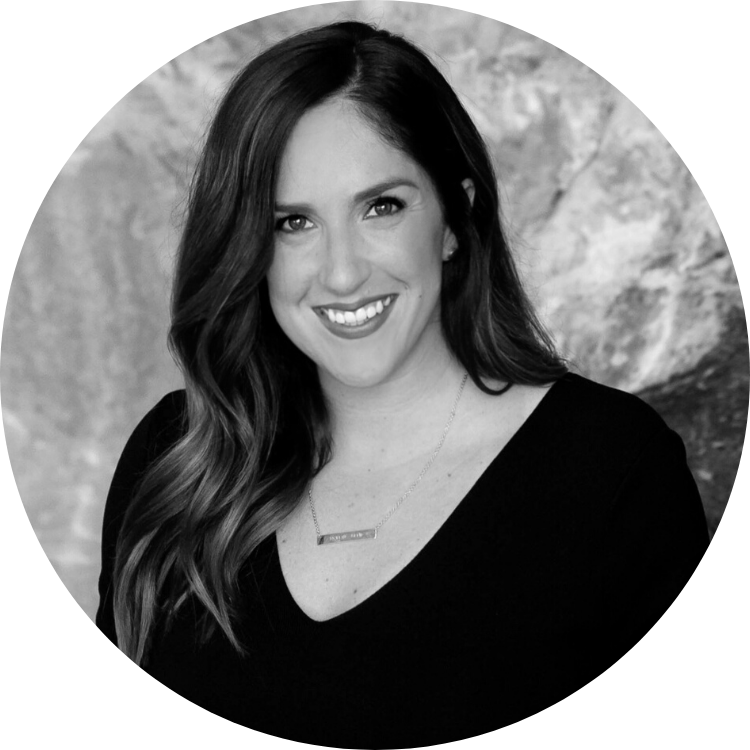
Erin Evans
Co-Founder | Director, Intelligen
In a normal day, what kinds of data / analytics activities are you involved in?
As the director of the business, I am involved in a variety of roles across the Data & Analytics consulting business including roles directly associated with D&A. I am one of the direct points of contact on new client engagements and work to understand current state architecture and work through our 'data strategy in a box' methodology with the team to produce a gap analysis and future state architecture recommendations and projections. These are all with a lense of ensuring our partner clients are empowered with best-in-class data and analytics solutions pushing as far into the realms of AI & ML once their platforms are scalable. I am then involved across the client engagement and implementation lifecycle, ensuring the correct SASS partners are recommended, the technical team is assigned and delivering to project timeframes and the highest value use cases are being realised through delivery.
What are the biggest challenges you face?
The biggest challenges I face are often around time management and balancing the many roles I have; not only within my business life but as a mother as well. Not only am I responsible for scaling a business in a sustainable, innovative and internally empowering way, but I am also actively involved on client site, managing my team, scale initiatives, financial management, project management and of course externally facing PR and marketing. The moment I close my laptop I am dashing to school pick up and ensuring I am present with my family before logging on later after bedtime. Aside from the challenges associated with managing the balance, one of the biggest challenges I face is an internal battle. For years, I've struggled with imposter syndrome as a woman building a consultancy in a male-dominated environment. As I've risen into more technical domains, it has only become more apparent and my conscious awareness has risen in response. The way I choose to combat this is with an active awareness and gratitude for stretching myself outside my comfort zone regularly and ensuring I am double (if not triple) prepared and educated to handle the challenges that come my way. Having the confidence to know I am prepared, definitely helps and I believe propels me to excel - there is never a level of complacency. I choose to harness it for good.
What would be the proudest or most enjoyable moment in your analytics career?
There have been so many proud and enjoyable moments across my analytics career however my most proud moment was probably also my most terrifying moment. It was the moment I finally publicly launched our Go to Market Strategy and company brand for Intelligen and officially put our name out there and our hat in the ring. We were up against many global vendors on a number of large client bids and very quickly realised a stream of winning tenders. Having operated 'in the shadows' with a select group of clients for a few years, I couldn't have been more proud to finally launch our name to the market and to be seeing our team out on multiple client sites, delivering real-world, meaningful impacts across some very large names. It was surreal and continues to be. Every day I wake up so grateful for getting to do what I do and for being invigorated to push the boundaries even further.
What advice would you give to a woman wanting to get into the analytics industry?
I am incredibly passionate about this. We are huge advocates of encouraging women into STEM across both FIRESOFT People and Intelligen (the FIRESOFT Group of companies I have co-founded). The analytics domain is absolutely ripe for women at the moment. There are huge call-outs for balancing gender ratios across organisations and finally clear awareness and intention to close the gender pay gap; and address the multi-factional challenges associated. There is a diverse variety of roles available in D&A from purely functional analysis roles all the way through to C-level positions. Data and Analytics has really been elevated to the forefront of corporations; the lifeblood of every organisation. My advice to a woman wanting to get into the analytics industry would be to decide on which stream - technical or funcational - and then as a necessity, complete the relevant qualifications or training. From there, get involved in associations, networks and expose yourself to as many different 'flavours' of D&A as possible, across as many different domains and industries as possible. The key is to find an industry or job vertical where they find true passion and then expand upon that!
In terms of the future of analytics, what do you think will be the most interesting aspect/s?
It's no secret that the analytics landscape across Australia is a good few years behind the rest of the developed world. We are lucky in a way - I often joke about having a crystal ball in looking across the pond. Whilst I believe there is still so much work to be done to elevate the baseline standards towards a 'modern data platform' across the average organisation, the front runners in the industry have demonstrated some incredibly exciting progression in the fields of AI & ML. Having been lucky enough to be part of some of these key transformations over the past few years, we have seen what is possible - and beyond. Whilst I am passionate about contributing to a national uplift of data capability and data democratisation across Australia, I am really excited to start seeing those optimised data platforms being utilised in ways to further extract value for organisations and push what now might seem impossible into the realms of the possible...!
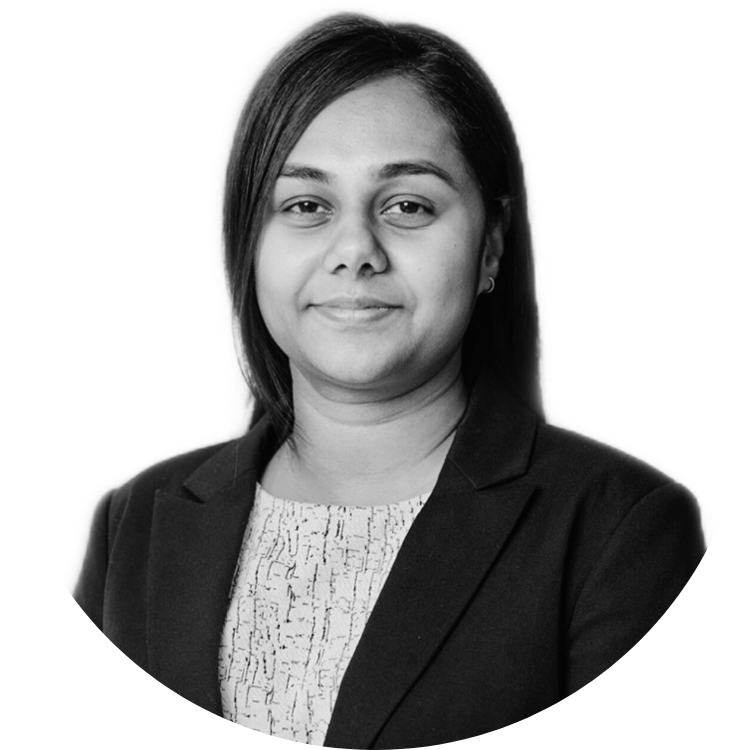
Sayuri Fonseka
Senior Consultant (Forensic Data Analytics), KPMG Austral
In a normal day, what kinds of data / analytics activities are you involved in?
As a consultant working in Digital Forensics, I mostly work in remediation matters such as wage underpayment analyses, statistical risk analyses, fraud detection and correction etc.
What are the biggest challenges you face?
Most challenging part of my job is the data prepping stage especially when we are dealing with erroneous data that needs to be vigorously cleansed to ensure validity. This step is extremely important as flawed input data can lead to unreliable outcome.
What would be the proudest or most enjoyable moment in your analytics career?
Successful completion of any project brings me such joy and satisfaction. One of the proudest moments in my analytics career was when I received compliments from the client for the very first project I completed as a fresh graduate.
What advice would you give to a woman wanting to get into the analytics industry?
Do not get overwhelmed by vast number of data analytics software and tools available in the market. You do not need to be an expert in everything to start a career in analytics. You can most definitely start from MS Excel and progress from there.
In terms of the future of analytics, what do you think will be the most interesting aspect/s?
In the future, many industries will adopt to a data-driven approach creating more opportunities in analytics space. Current automation techniques will get further improved and enhanced to a level that it will enable the systems to automate the whole process of pattern identification and insight generation.
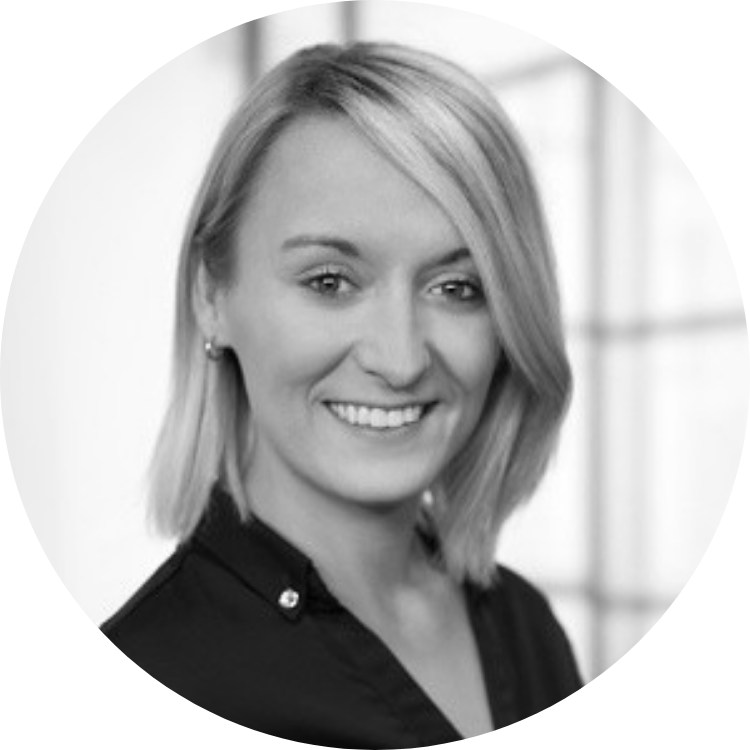
Emma Higgs
Associate Director in Forensic Data Analytics, KPMG
In a normal day, what kinds of data / analytics activities are you involved in?
A typical day involves collaborating with the team on a number of projects, specifically projects to do with payroll remediation, super remediation or fraud investigations.
What are the biggest challenges you face?
The biggest challenges normally come in the form of getting accurate and complete data. Understanding where to get the data, what to get and determining the quality of what you get is always the hardest part.
What would be the proudest or most enjoyable moment in your analytics career?
My most enjoyable moments in my career have been when we've delivered a project and can fully understand the impact of what we've achieved. For example finishing a complex payroll remediation where staff are underpaid is always rewarding as you know that you are benefitting their lives sometimes in big ways.
What advice would you give to a woman wanting to get into the analytics industry?
Lean into your own skills and try not to compare yourself to others. Being a woman in an often male dominated industry is crucial and you can bring different skills to the tables others may not be able to.
In terms of the future of analytics, what do you think will be the most interesting aspect/s?
I think the most interesting aspects for the future will be around how we can continue to harness data to solve business problems as the amount of data that is captured and available will continue to grow.

Aurelie Jacquet
Consultant, Ethical AI
In a normal day, what kinds of data / analytics activities are you involved in?
• Development of AI international Standards
• Development of AI international certification
• Advising organisations on Responsible AI Implementation
• Researcher on Responsible AI
What are the biggest challenges you face?
The proliferation of localised AI frameworks which will make the uptake of AI technologies more difficult and put additional pressure on the supply chain process
What would be the proudest or most enjoyable moment in your analytics career?
Driving the international conversation on Responsible AI as Chair of the Standards Committee on AI, but also as Chair of the 1st independent global certification initiative led by the responsible AI Institute and WEF, and being appointed as an expert by the EU Commission for their AI project.
What advice would you give to a woman wanting to get into the analytics industry?
It is a vivid industry where you can really make your mark and make a difference.
In terms of the future of analytics, what do you think will be the most interesting aspect/s?
Transparency. With AI, unwanted bias will be more evident and will need to be addressed more pro-actively
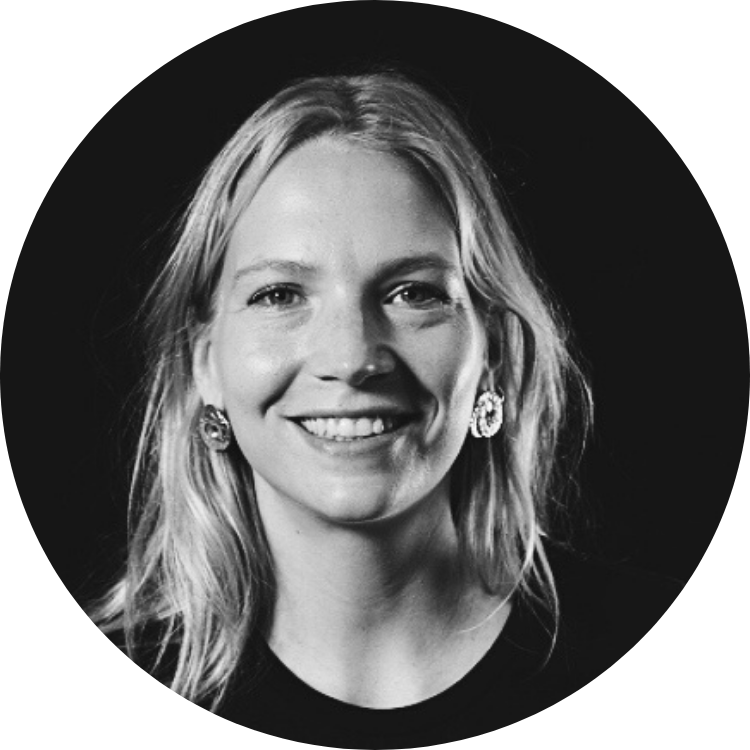
Ethel Karskens
Founder / Data and Digital Senior Consultant / Lead Instructor in Analytics, Civita / Clear Horizon
In a normal day, what kinds of data / analytics activities are you involved in?
Co-designing data streams with NGO's, communities and government to ensure high-quality data for monitoring purposes
Creating dashboards to analyse and monitor social impact of for-purpose programs
Leading the data services and tools offer to deliver the best data-driven services to our clients
Empowering the clients and the CH team to analyse complex datasets and visualise them
*At Civita, as a founder, I lead a team of volunteers to connect data professionals and for-purpose organisations to provide accessible data services (typically data analysis and reporting)
Overall, leading the way of the data for good space in Australia to ensure data equity across organisations and invididuals who care about making a positive impact
What are the biggest challenges you face?
The fact that a large part of the organisations still have a low data maturity and need a lot of support to assess where to start. Overall, balancing systems, skills, and strategy to move forward without letting an element on the side
Finding the time and resources to do all of these jobs!
What would be the proudest or most enjoyable moment in your analytics career?
There are a lot of wonderful projects I had the chance to take part in at PwC, Civita or Clear Horizon. The proudest ones are the ones where I mixed my analytics skills, my entrepreneurial mindset, and my passion for social impact.
In the context of women's day, the proudest moment is probably the data-hackathon for women in STEM we organised with Civita in 2019. That day, we partnered with UTS and empowered data analysts to volunteer and support communities and organisations support equality in the STEM industries. We mentored the volunteers and inspired them to use their time for data for good, and to keep volunteering in analytics, which is, I think, how we can create a more equal world in the data space, but also create a more data-driven society.
What advice would you give to a woman wanting to get into the analytics industry?
That, while it can sometimes be a male-dominant industry and while imposter syndrome easily kicks-in, you have a place in this industry and you are not alone. Connect with other women in the industry to share your experience and how you feel, stay on top of the trends in the space, and find yourself both male and female mentors. This industry is full of wonderful people and they are always happy to help, so never be afraid to ask for advice as well. I would also tell her that I still remember clearly my first months in this indsutry and how overwhelmed I felt and unsure about the value I could bring on the table. But with experience and curiosity, I was able to learn from other wonderful analysts and I am now very happy of where I am and how I can support equality in the data space.
In terms of the future of analytics, what do you think will be the most interesting aspect/s?
No-code data tools to empower organisations beyond their data team, which will shift the focus of many data teams
More engaging and powerful visualisations to engage more people in organisations and across society
Roles will drastically shift in the analytics space and there will be both data translators and more specialisations in certain areas of the analytics space

Kirti Khanna
Director, Nielsen Pvt Ltd
In a normal day, what kinds of data / analytics activities are you involved in?
I am a huge evangelist of applying analytics in your day to day tasks, be it with your clients or for your internal business. Exerting strategic leadership backed by data has helped me achieve double-digit growth for my team at Nielsen and 2-8% sales growth pa for clients in my portfolio.
While understanding ever-changing business needs is our prime objective, being ahead of the curve by enhancing & developing current analytical products is equally important, and is one of my key focus areas at Nielsen.
My team is extensively involved in solution design and use multiple analytical approaches to tailor specific solutions for our unique client needs. In addition, we support all stakeholders through the entire implementation and change management process.
What are the biggest challenges you face?
With the democratization of data, there is a need to regulate & balance innovation with risk & control.
What would be the proudest or most enjoyable moment in your analytics career?
COVID-19 disrupted many businesses and their planned go-to-market strategy. This affected their short-term execution plans, thus as part of the remediation measure, it was exciting as well as challenging to formulate strategies in the new paradigm, helping businesses realise higher returns on investment.
What advice would you give to a woman wanting to get into the analytics industry?
Discover your unique work style and focus on building soft skills as much as your technical skills.
The analytics industry needs tech-savvy professionals to execute computational analysis of the data as well as storytellers who translate complex findings to an adaptable business language.
In terms of the future of analytics, what do you think will be the most interesting aspect/s?
With Data becoming the new currency and the introduction of more powerful computational tools, Machine Learning is helping with scalability and speed. However, it will be interesting to see how unsupervised machine learning replicates human reasoning & intelligence in the future.

Ankita Kunwar
Senior Manager -Customer Strategy & Analytics, Deloitte
In a normal day, what kinds of data / analytics activities are you involved in?
In my current role, I work with clients to solve customer strategy and CX problem through applied analytics. This involves identifying the areas of growth and building solutions that can be solved through leveraging data. I work with unstructured and structured data for industry ranging from financial service, retail, and technology. Some of the areas I work in are personalisation, customer segmentation, predictive modelling, market research and strategic insights. I also mentor and coaching team members in the team in the space of analytics and strategy.
What are the biggest challenges you face?
My current biggest challenge is introducing data driven solutions to customer strategy problems and championing data literacy at senior leadership level.
What would be the proudest or most enjoyable moment in your analytics career?
Being able to combine different areas such as advance analytics, market research and strategy - to drive strategic insights and recommendations that improve the overall customer experience for the organisation and also drive the businesses overarching customer strategy.
What advice would you give to a woman wanting to get into the analytics industry?
From self-taught data scientist, I would say an appetite for learning is the most important factor in analytics. There are multiple pathways one can take in analytics and there is abundance of opportunities to grow in, from visualisation, statistics, AI/ML, insights and more.
In terms of the future of analytics, what do you think will be the most interesting aspect/s?
I am looking forward to see how people from data & analytics grow and take leadership roles in organisations. I believe data can help solve many organisational problems such as supply chain, CX, GTM strategy, people & attrition etc., and would love to see more people from analytics getting into business leadership roles and tackle conventional problems through dat

Aina Musaeva
Data scientist, KPMG
In a normal day, what kinds of data / analytics activities are you involved in?
Technical delivery of analytics solutions to state and federal government organisations.
What are the biggest challenges you face?
Often the only woman in a technical delivery team
What would be the proudest or most enjoyable moment in your analytics career?
Empowering other woman to pursue careers in data analytics and watching them grow into incredible and successful professionals
What advice would you give to a woman wanting to get into the analytics industry?
Fall in love with analytics first by educating yourself about it (so many resources online), choose the area you are passionate about and surround yourself with a support network you can lean on while you grow professionally
In terms of the future of analytics, what do you think will be the most interesting aspect/s?
Reaching the state when making decisions without data is no longer an accepted business practice
Agencies & Available Talent
Click on a name to understand each person's role, proudest moment, greatest challenges and advice for women thinking of a future in analytics.

Edith Cheng
Head of Digital Marketing & Analytics, Media.Monks
In a normal day, what kinds of data / analytics activities are you involved in?
My team of digital analytics consultants and I work with clients to help them utilise their digital data more effectively to meet business goals. We work with a range of enterprise clients to collect their website or mobile app data, provide actionable insights, recommend performance measures, and other strategic digital transformation and maturity uplift recommendations.
The data that we collect is predominantly website or mobile app data. We use a variety of platforms and tools to integrate that data with other marketing campaign data or offline customer data so that we can have a holistic view of the user journey. From there we can use the data to create different types of audiences based on the customer's profile so that we can provide a better customer experience or reduce marketing spend wastage.
What are the biggest challenges you face?
The biggest challenge in our industry is talent development and employee retention. With the onset of the great resignation and the COVID-19 Pandemic, there is a shortage of experienced digital analytics consultants as companies are tightening their digital experiences and investing more in data analytics, new technology platforms, and personalisation. To help address these challenges, we have run a Data Consulting Graduate Program for the last 4 years, and introduced learning pathways and tried to provide career progression as much as possible.
The second challenge that we often face is the availability for clean and accurate data for analysis. As companies increase their budgets and focus their resources on technology and data initiatives, there can be a lot of waste if the organisation buys an advanced technological solution without having strong foundations in place for data collection, data governance, and skilled resources to wield and use the data and platforms effectively.
The last is the Privacy challenge. In the past 5 years technology companies like Google and Apple have begun to deprecate the use of 3rd party cookies and government regulations have also tighten to increase user privacy protection. This poses a range of challenges for organisations to juggle including responding to changes in regulation for data governance, ensuring ethical use of user data, and managing their organisation's brand integrity in the digital age.
What would be the proudest or most enjoyable moment in your analytics career?
From 2017 to 2020, I worked closely with Lens10's CEO, Michelle McGrath to grow Lens10, a Digital Analytics Consultancy. I headed up the Analyst team there and we grew the team from 6 people to >13 in 3 years. In addition to the ambitious growth targets we set ourselves, we wanted to create a workplace where we do interesting work, with great people, and provide our employees with good work/life balance. By 2020, our team had become the largest specialist digital analytics consulting team in Australia and we we were acquired by S4 Capital and rebranded this year to Media.Monks, a global digital marketing services consultancy founded by Sir Martin Sorell.
Since our acquisition, we have integrated our team and introduced a lot of operations management best practices to Media.Monks. The journey has been very exciting and rewarding so far!
What advice would you give to a woman wanting to get into the analytics industry?
There has never been a better time to join the analytics industry as a woman. There is a new appreciation for workplace diversity and organisations are realising the benefits of having diverse and inclusive teams.
My advice would be to find yourself a good mentor and advocate within your company. Try to surround yourself with different role models and lots of people that you want to learn from and be open to trying new things. A passion for learning and openness to new experiences will help accelerate your career if you want to work in digital analytics due to the fast-changing nature of industry and technology.
In terms of the future of analytics, what do you think will be the most interesting aspect/s?
Looking forward, I think the most exciting part of the analytics industry is the increasing practical application of machine learning and data science. Many of our clients have invested heavily in data science and a lot of companies have introduced personalised experiences driven by machine learning algorithms in the past 5 years as well, however I think we have barely scratched the surface of what is possible.
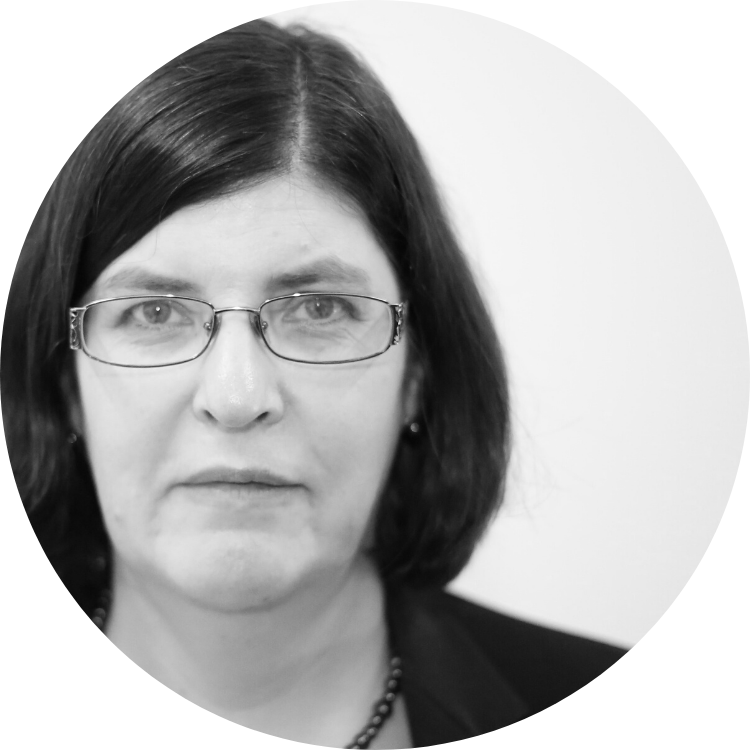
Sarah Dods
GM/Director Advanced Analytics
In a normal day, what kinds of data / analytics activities are you involved in?
Figuring out how to make analytics safe, scalable, supportable and sustainable for long term business benefits
What are the biggest challenges you face?
Data literacy and an understanding of what data & analytics can, and cannot, do for the business.
What would be the proudest or most enjoyable moment in your analytics career?
Microsoft internationally showcasing the MLOps platform we built at AGL, and confirming it as global best practice
What advice would you give to a woman wanting to get into the analytics industry?
Analytics is a new industry and open to many different pathways to enter. Yours is unique, and no less valid than anyone else's. Think about what you bring to the table as a result of your experiences, learn from others, and always remember that analytics is about business outcomes.
Asking the right questions in analytics is more important than answering a wrong or unclear question well. Invest time up front to find out what the outcome is the business is seeking, what they can change to achieve it, and structure your work around that lever to action the change.
In terms of the future of analytics, what do you think will be the most interesting aspect/s?
Responsible AI, and having the tricky conversations about existing bias that is being brought out into the sunlight as machine learning is being brought to bear to make better decisions
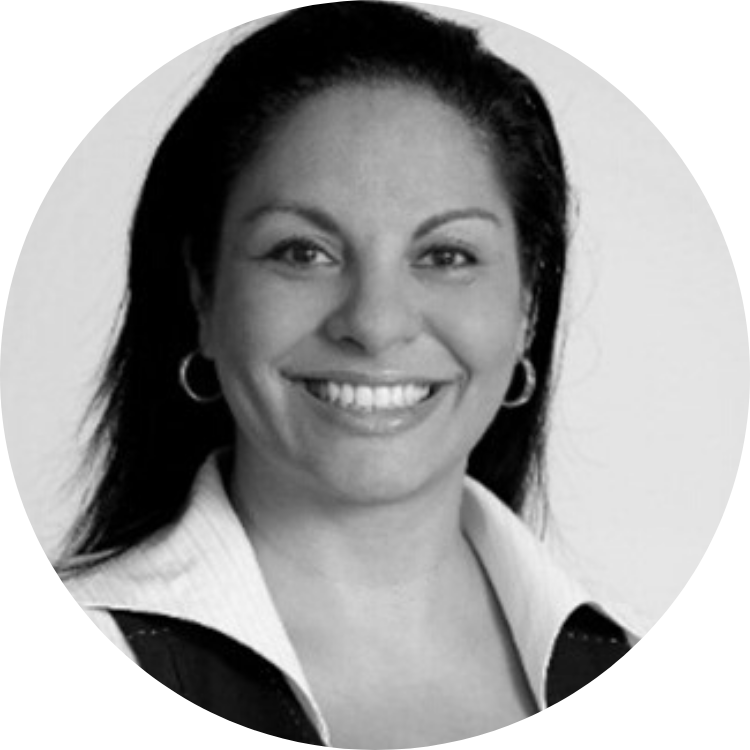
Natalie Mendes
Analytics Marketer, Transitioning
In a normal day, what kinds of data / analytics activities are you involved in?
Customer retention and acquisitions predictions, Ideal Customer Profile Data Analysis, Campaign Analytics,Segmentation,Lead Scoring,Management Reporting
What are the biggest challenges you face?
WRT Data and Analytics: Data Quality, Data completeness, Bad reporting because data not in sync, Too many disparate data sources, Limited resources with data and business acumen to provide great data story telling
WRT Career Path:
Not many as I saw challenges as the opportunity to learn more about myself and the challenge at hand and how to solve it. Must be the analytical mindset.
What would be the proudest or most enjoyable moment in your analytics career?
1. Lecturing university students on the importance of data and analytics in everyday life
2. Mentoring young women in analytics to help them grow their careers in all things STEM and seeing them excel.
3. Winning the CEO award (voted by peers) when I was at SAS.
What advice would you give to a woman wanting to get into the analytics industry?
Give the 102% of a task and do the those tasks that no-one wants to do. It gets you ahead of the game!
In terms of the future of analytics, what do you think will be the most interesting aspect/s?
Children as young as 10 will be able to tell a data story as the digital data revolution is part of their daily lives. From the moment they wake up (Siri tells them how well they slept) until they go to sleep - Siri awards them for their daily activities. There could be 3 parents in a family!
Education
Click on a name to understand each person's role, proudest moment, greatest challenges and advice for women thinking of a future in analytics.

Kate Carruthers
Chief Data & Insights Officer, UNSW
In a normal day, what kinds of data / analytics activities are you involved in?
Looking after the UNSW data estate from data & information governance through to analytics, business intelligence, and data management
What are the biggest challenges you face?
We have a lot of really diverse data and ensuring that it is managed in the safest way possible to maintain its confidentiality, integrity and availability is a big challenge.
What would be the proudest or most enjoyable moment in your analytics career?
Pretty proud of my team and how they migrated to our new enterprise data platform with zero downtime for customers.
What advice would you give to a woman wanting to get into the analytics industry?
Just do it. Make a start somewhere, and if you want to do it then do not let anyone (even yourself) talk you out of it.
In terms of the future of analytics, what do you think will be the most interesting aspect/s?
The next generation analytics that's just starting to emerge, including how we can deal with streaming analytics and things like digital twins.
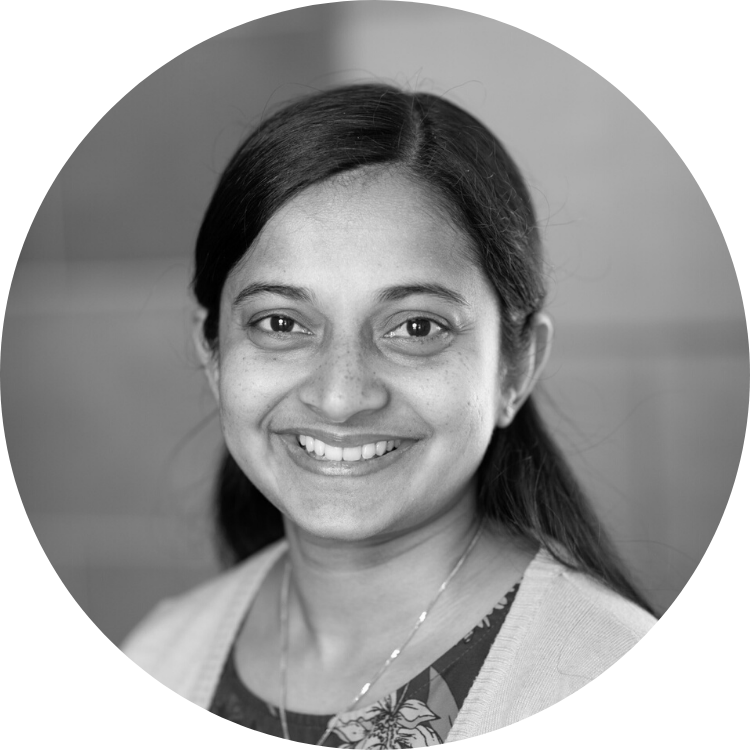
Tania Fernando
Manager, Customer Insights, The University of Melbourne
In a normal day, what kinds of data / analytics activities are you involved in?
As the Manager of the Customer Insights team, I look after the data analytics and reporting needs of the Advancement Office at The University of Melbourne. Activities starting from data quality maintenance, KPI reporting to propensity modelling are part of my day to day role.
What are the biggest challenges you face?
My biggest challenge is inaccessible data. We are still working on coming up with a centralized system where we will have access to data that can be utilized in analytics. Other challenges would be lack of resourcing for analytics and data quality issues.
What would be the proudest or most enjoyable moment in your analytics career?
I was commended as the "Shining Bright - Individual" at the Staff Awards in 2021 for using "innovative or new ways of working to deliver positive outcomes" as a results of the successful completion of a Propensity Model. I really enjoyed working on this project and the award was just icing on top.
What advice would you give to a woman wanting to get into the analytics industry?
Just go for it! As women we are born for multitasking and seeing the detail of, well, everything. The two things that you need to have a good start in analytics. If you really want to do it, there's nothing that will stop you from getting there.
In terms of the future of analytics, what do you think will be the most interesting aspect/s?
I am very much interested in behavioral analytics with the focus on psychology. I believe in using analytics for the good of others and it is the future of analytics that I would like to see.
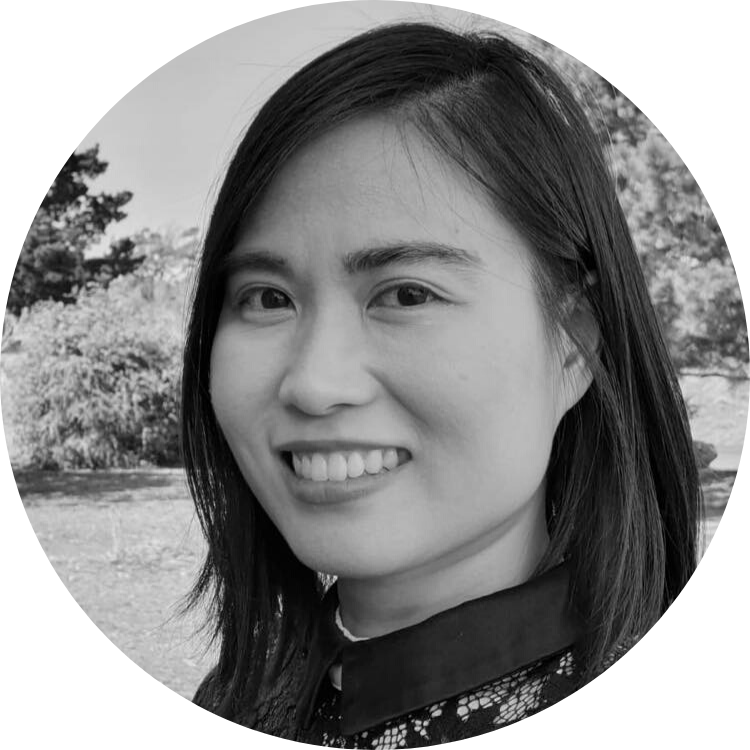
Karyne Fung
Master of Business Analytics Student, Kaplan Business School
In a normal day, what kinds of data / analytics activities are you involved in?
Working on case studies such as sentiment analysis, social media analysis.
What are the biggest challenges you face?
Not enough time to learn new skills such as programing languages
What would be the proudest or most enjoyable moment in your analytics career?
Got connected to amazing people
What advice would you give to a woman wanting to get into the analytics industry?
Be confident about yourself! You can make it if you want to!
In terms of the future of analytics, what do you think will be the most interesting aspect/s?
Every industry will be benefited from analytics
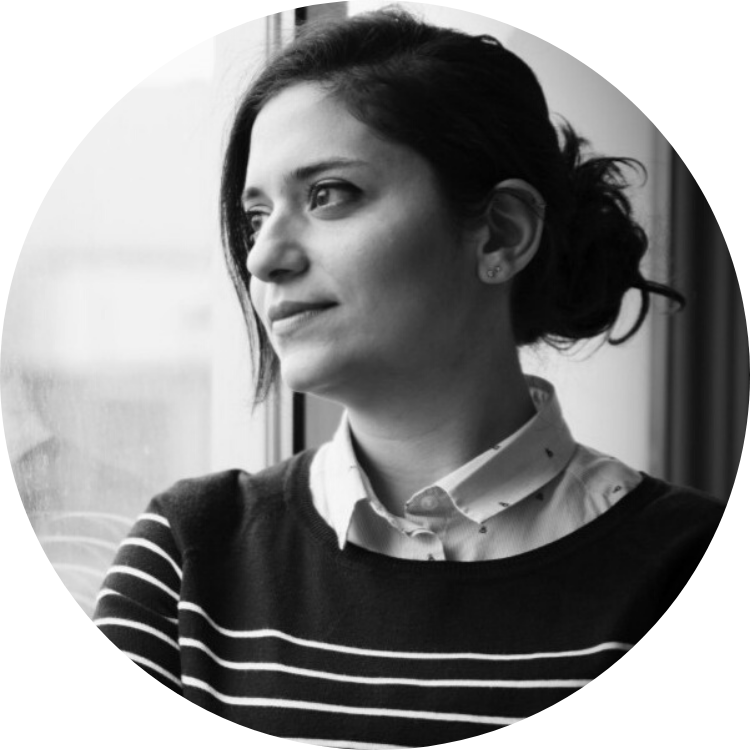
Mahsa Hesampour
Data Analyst, RMIT
In a normal day, what kinds of data / analytics activities are you involved in?
Evaluate business request for data analysis to support informed decision making
Anticipate legal and ethical considerations of data use and handling
Acquire and evaluate relevant data
Convert, clean and format data to produce analysis
Shape and transform data into a visual form best suited to addressing the business question
What are the biggest challenges you face?
Communicate visual data interpretation to business decision-makers.
What advice would you give to a woman wanting to get into the analytics industry?
Learn something new every day!
In terms of the future of analytics, what do you think will be the most interesting aspect/s?
“Without big data, you are blind and deaf and in the middle of a freeway.” — Geoffrey Moore.

Linda McIver
Executive Director, Australian Data Science Education Institute
In a normal day, what kinds of data / analytics activities are you involved in?
Developing teaching materials for authentic data science projects for primary & secondary schools
What are the biggest challenges you face?
The fear factor! Persuading teachers that this is something they can do.
What would be the proudest or most enjoyable moment in your analytics career?
My year 11 students contributing to cancer research for their computational science project, thanks to the opportunities I created for them with university academics.
What advice would you give to a woman wanting to get into the analytics industry?
You can do this! Don't let anyone tell you otherwise.
In terms of the future of analytics, what do you think will be the most interesting aspect/s?
Ethical, human centred analytics.
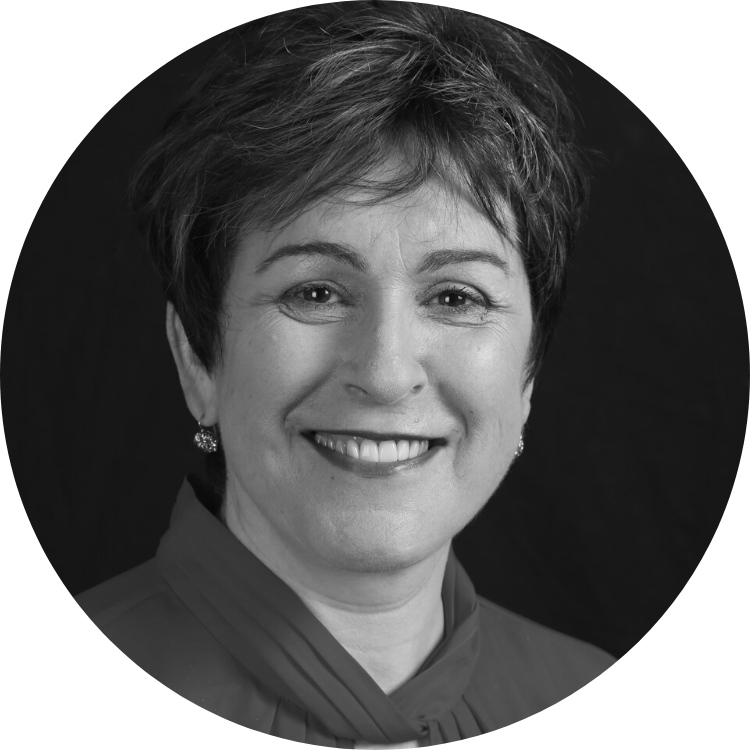
Nonna Milmeister
Chief Data & Analytics Officer, RMIT University
In a normal day, what kinds of data / analytics activities are you involved in?
I am responsible for the development and implementation of Data & Analytics Strategy. This includes developing culture that supports and promotes data-driven decision-making, partnering with our Academic community to deliver joint projects; implementing data governance framework; bringing in and implementing innovative and flexible tools and platforms to enable data management and data analytics; and of course, implementing analytics projects to support RMIT's 5 year strategy. My team of data engineers, data analysts, data scientists and data management professionals are always learning, exploring and delivering and I am very proud of what we are able to achieve.
What are the biggest challenges you face?
Managing stakeholders expectations and educating them on data analytics processes. We commenced a Data Literacy program to ensure our stakeholders appreciate and understand their role in data governance, data quality and use of data. our most successful analytics projects are always done when we partner with our stakeholders and they are providing subject matter expertise as we go, in agile manner, and we share and learn from each other.
What would be the proudest or most enjoyable moment in your analytics career?
I think it's the enthusiasm and sense of achievement when my team demonstrates the outputs of their work. Whether there is a demo of new capabilities they have on Data Analytics Platform and our ability to innovate in the way we never dreamt on before, or a new predictive model that can help answer key business questions, or a new dashboard that we know will make the lives of our stakeholders and our students easier and improve their experience.
What advice would you give to a woman wanting to get into the analytics industry?
You are making the right decision! Analytics is the best and most interesting field to be in, the demand for analytics will only grow exponentially.
Look for the best University courses that will help you with technical skills and provide opportunities for internships and great industry experience, but more importantly develop your stakeholder management skills and project management skills
Learn and build good relationships with people around you! Learn about the industry you are in, your company and its goals, why you have been asked to do what you do, what benefits will your work deliver, who are your stakeholders and what do they want to achieve. If you understand the big picture and build good and trusting relationships with your customers, you will make your work more enjoyable and your efforts will add real value that you can be proud of.
In terms of the future of analytics, what do you think will be the most interesting aspect/s?
Everyone is different, some will be excited about an explosion of tools that can help you to be as efficient as you can be, but I think one of the most fascinating areas to get involved in is Data Ethics. There are so many ethical questions we need to be aware of, and seek answers to. It starts with data and its life-cycle and covers algorithms (ML, AI, robots etc) and practices (innovation, programming, professional codes, hacking etc). I think it's important to understand what Data Ethics Principles are, how do you make sure they are implemented and what is your role in identifying and raising the issues if you have doubts.
Energy
Click on a name to understand each person's role, proudest moment, greatest challenges and advice for women thinking of a future in analytics.

Amanda Meegan
Digital Marketing Analyst, Brighte
In a normal day, what kinds of data / analytics activities are you involved in?
I work on analytics for both our digital products and our marketing efforts. I use data to investigate insights for growing engagement with both new and existing customers and partners. Being part of a fast-growing company means that our abilities to leverage data are also scaling very rapidly. I love that a day can range from diving into the data and turning insights into strategy, to then collaborating on data security and governance processes that guide our work.
What are the biggest challenges you face?
It’s challenging to find the right mix and balance of data tools to use in a rapidly scaling organisation with fast-evolving data processes.
What would be the proudest or most enjoyable moment in your analytics career?
Just before the start of Covid in 2020, I had the honour of presenting my research on data-driven digital marketing strategies at Harvard University.
What advice would you give to a woman wanting to get into the analytics industry?
Be versatile. Learn digital analytics tools like Adobe Analytics/Google Analytics in addition to querying tools like SQL/Python. And never forget the importance of soft skills in this field, communicating your insights effectively can drive great impact!
In terms of the future of analytics, what do you think will be the most interesting aspect/s?
I think health analytics will be very interesting, especially as technology evolves to become more predictive in this area. It will also be fascinating to see the data on the many different ways the pandemic has affected our generation.
Government
Click on a name to understand each person's role, proudest moment, greatest challenges and advice for women thinking of a future in analytics.
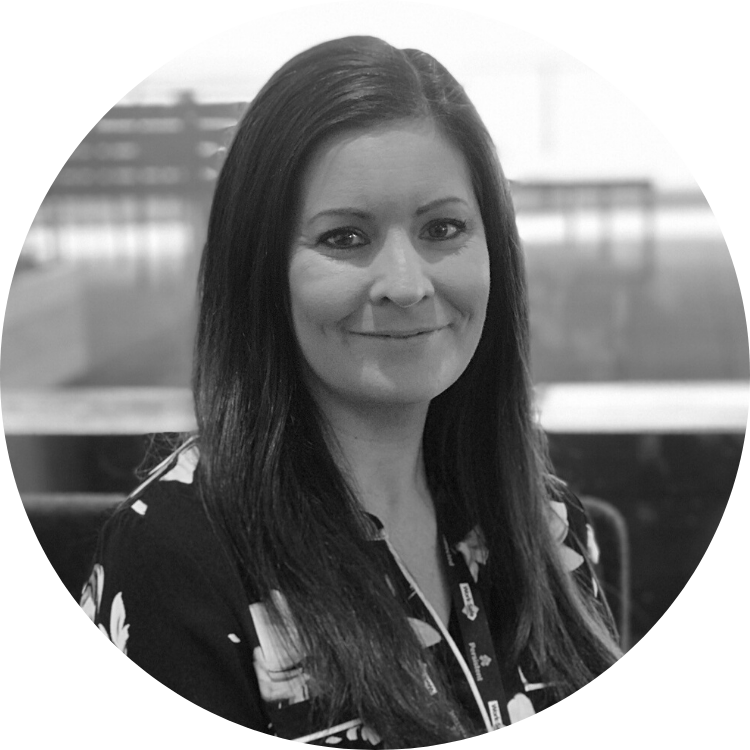
Kathryn Gulifa
Chief Data & Analytics Officer, Worksafe Victoria
In a normal day, what kinds of data / analytics activities are you involved in?
I haven't been on the tools for some time now, so my day is more about relationship management with executive stakeholders. Both to share highlights of the work my team are delivering to help them achieve their business outcomes, and/or understanding their business goals and problems to identify opportunities to add value with data and analytics. Basically, talking all day!
What are the biggest challenges you face?
Analytics demand exceeding supply and how to effectively prioritise our highly skilled people onto the most valuable initiatives.
Also translating insights to business outcomes to quantify the value created through insight and analysis. It's critical for development of any business case and investment ask.
And the talent landscape is particularly challenging at the moment, so we're needing to be creative about strategies to acquire and retain critical skills and capabilities.
What would be the proudest or most enjoyable moment in your analytics career?
I really enjoy building things (new teams), Transformation, and working with inspiring and creative people.
I can't think of a single most enjoyable moment but the collective usually entail guiding a bunch of really smart people to develop some really impactful insights with a really clear use case for implementation and a quantifiable outcome. Getting the business excited about the new insight you've found. Blowing people's minds. To be able to actually quantify the value you've created through the identification of business opportunities or risk reduction, etc, and see that value come to fruition through business action is incredibly rewarding.
On the contrary, developing insights only to see them left on the shelf unactioned is deflating.
What advice would you give to a woman wanting to get into the analytics industry?
Just do it!
There is such variety of roles and skillsets within the analytics industry that there's virtually something for everyone. If you enjoy coding and statistics, the opportunities are obvious. But even if you aren't the best coder and statistician around - as I never was - you are just as valuable (if not more). If you are a good problem solver, creative thinker, understand business processes and drivers, can communicate complex ideas to non-technical audiences, create impactful visualisations, develop people, manage projects, etc, you can have an incredibly impactful and rewarding career in analytics.
Don't get put off by what can sometimes be an elitist industry. You ARE good enough.
In terms of the future of analytics, what do you think will be the most interesting aspect/s?
Data privacy and ethics are quite prominent at the moment and will continue to be as data collection and analysis intrude more and more in people's day to day lives. If I was going to reinvent my career, I'd be coming back as a Data Governance Specialist.
I'm probably most interested in the social applications of data for good. I think the pandemic forced major progress on data sharing and collaboration and it would be a shame to see that progress go to waste.
Healthcare
Click on a name to understand each person's role, proudest moment, greatest challenges and advice for women thinking of a future in analytics.

Janice Carey
Head of Data Strategy, Bupa
In a normal day, what kinds of data / analytics activities are you involved in?
My team and I deal with a wide range of analytics to enable outside-in insights about value through the eyes of our customers, market and opportunity identification across our businesses, and digital analytics.
What are the biggest challenges you face?
Like every organisation there's the perpetual journey of broadening and deepening the data and definitions for the spectrum of descriptive, predictive and prescriptive analytics plus how we enable smart automation. Making more of streaming digital data to improve the customer insight and experience is another exciting domain where we are now building momentum. The interesting challenges from there are always bringing the human element to life in the way we share information, co-create insights for customer and business value, and build organisational data literacy. Investing in the skills of our people is a top priority in all this. Analytics is a team sport. The best work comes from getting around the whiteboard with a multi-disciplinary team to clearly articulate the business problem before diving into the data, and then iterating to insight with open minds.
What would be the proudest or most enjoyable moment in your analytics career?
Seeing the lights go on for a senior stakeholder on arriving an impactful visualisation that enabled him to get traction on a problem that he had wrestled with for years. It was the biggest wow moment for him, and one of those "overnight successes" that was actually six months in the making!
What advice would you give to a woman wanting to get into the analytics industry?
Invest in yourself, listen to learn, and find your voice. Build your soft skills in addition to your analytics domain expertise.
In terms of the future of analytics, what do you think will be the most interesting aspect/s?
Emerging roles for Data Translators Simpler, more convenient, more relevant outcomes for customers powered by thoughtful use of real time digital data combined with traditional enterprise datasets.

Elly Lin
Performance Data Analyst, Bupa
In a normal day, what kinds of data / analytics activities are you involved in?
Data cleansing, data mapping, data modelling, data analysis, visualisation
What are the biggest challenges you face?
Career Path
What would be the proudest or most enjoyable moment in your analytics career?
Bring benefit and valuable outcome to business
What advice would you give to a woman wanting to get into the analytics industry?
Embed analytical thinking in daily work
In terms of the future of analytics, what do you think will be the most interesting aspect/s?
Machine learning & AI
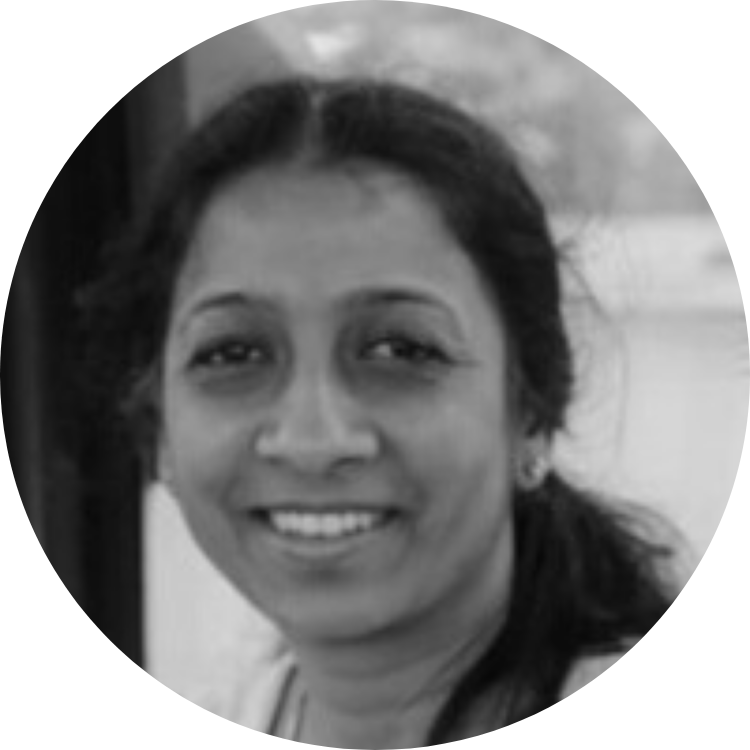
Rajshri Sathish
Data Insights Manager, Bupa Australia
In a normal day, what kinds of data / analytics activities are you involved in?
1. Define business problem & outcomes, lead engagement, design, development and delivery of analytics.
2. Lead the transition of analytics projects from current state to common strategic platform
3. Triage requests and plan for delivery in agile sprints
What are the biggest challenges you face?
1. Moving from Insights to action
2. Timely transition to strategic platforms
What would be the proudest or most enjoyable moment in your analytics career?
I feel proud when I successfully tell an analytics story, its outputs being used to make decisions that contribute to business value
What advice would you give to a woman wanting to get into the analytics industry?
Its exciting to get deep into data. Come and join the journey and discover what data is telling us
In terms of the future of analytics, what do you think will be the most interesting aspect/s?
Use of AI in making decisions and data ethics
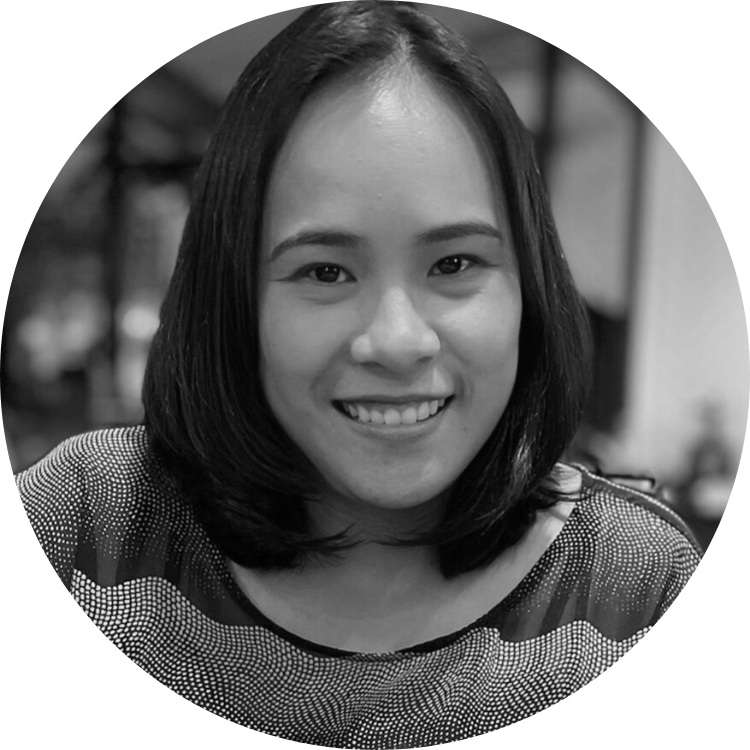
Joan Sison
Senior Reporting and Insights Analyst, Bupa
In a normal day, what kinds of data / analytics activities are you involved in?
A typical normal day for me involves meeting with business stakeholders to listen to their challenges and taking them through the journey of conceptualising data and analytic products. Part of the process also sees me getting hands-on with the technical side of analytics, designing data models and solutions, interacting with hosts of other data professionals, creating reports and dashboards, data analysis and surfacing gems of business and customer insights. Not a day is the same for me, lots of variety!
What are the biggest challenges you face?
The biggest challenge is trying to keep with the vast number of tools, methods and technology available to execute analytics. There so much new knowledge to acquire, but setting aside solid time to do self-study can be challenging at times with such a busy working week. It’s great to see networks like IAPA fostering a mindset of learning across the community of data analytics professionals
What would be the proudest or most enjoyable moment in your analytics career?
It would have to be leading and collaborating with a cross-functional group comprised of stakeholders from finance, sales, IT, operations, pricing, forecasting and reporting teams to address the question of fragmented view of contracts data. Under my leadership and direction, we tackled the challenge of fixing a long-standing problem with the completeness and accuracy of contracts data, a dataset that the business greatly depended on to manage its business well.
Under this initiative, I was able to deliver a solution that became the accurate and trusted single source of truth for key account sales management, customer retention and acquisition activities, budget and forecasting process, and contract data management. Seeing all my stakeholders finally able to self-service data on a daily basis really put a smile on my face!
What advice would you give to a woman wanting to get into the analytics industry?
Develop your stakeholder management skills and take them on the journey as you develop solutions for their business problems. Don’t be too focused on the tools, learn the basics of data constructs. Design solutions that are fit for purpose. Have a learning mindset and stay curious of new methods and techniques in data analytics. Widen your network of data professionals across different sectors. Don’t be afraid to ask questions and seek advice from those who been doing this journey for a while now.
In terms of the future of analytics, what do you think will be the most interesting aspect/s?
I would like to see the use of data for effective health management to benefit the wider community as well equip individuals by having key health indicators data readily available to them to make decisions about their personal health. Having real-time access to data and accurately predict know when an underlying health condition needs immediate attention before it becomes serious, is life-changing technology.
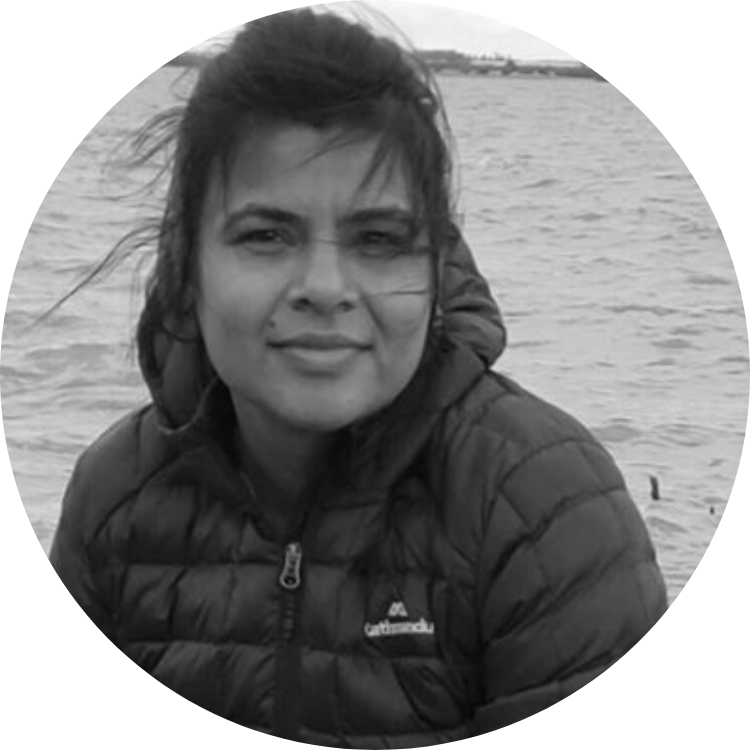
Binnu Verma
Digital Analytics Manager, BUPA
In a normal day, what kinds of data / analytics activities are you involved in?
Data strategies for BUPA digital estate including iOS and Android apps, Driving the personalisation program, Actively working on projects to remove data silos.
Bringing in data from multiple sources to be able to tell a story about joined customer view.
What are the biggest challenges you face?
Multiple data sources and slow processes
What would be the proudest or most enjoyable moment in your analytics career?
Customer data platform implementation at BUPA
Playing a critical role in Personalisation program implementation
To be able to provide mentorship and guidance to various team members
What advice would you give to a woman wanting to get into the analytics industry?
Career in digital analytics industry is very rewarding. It is very interesting to be able to tell a story about customer behavior through data and create actionable insights to benefit both the customers and business. For me a curious and open mindset are the two important skills that are required to get into analytics industry. With the right mindset technical skills can be learnt on the job or through certifications.
In terms of the future of analytics, what do you think will be the most interesting aspect/s?
Digital space is where the companies are focusing these days. So Digital analytics, ability to join digital data with enterprise data and machine learning are going to be the most interesting aspects .
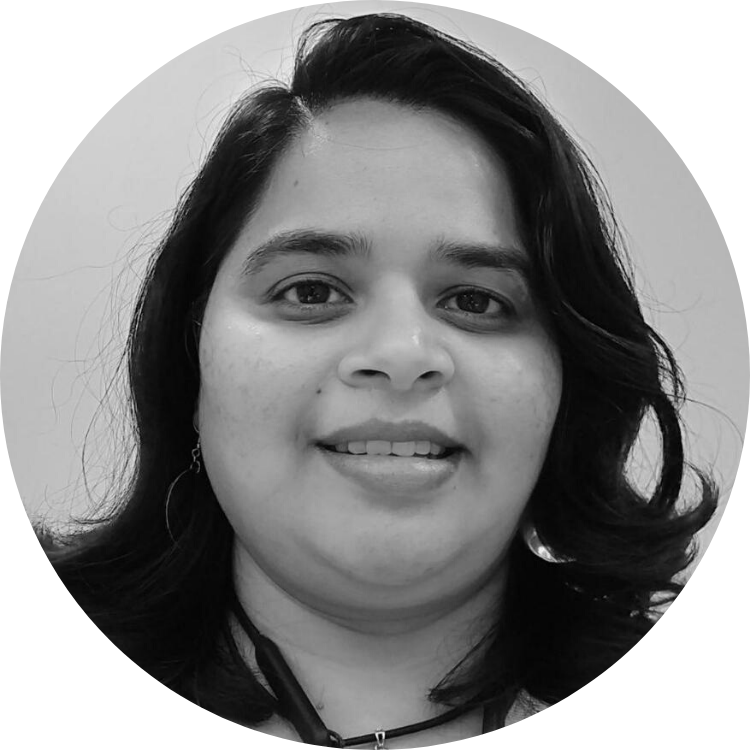
Rakshitha VS
Senior Analyst - Forecasting & Reporting, Bupa Australia
In a normal day, what kinds of data / analytics activities are you involved in?
Creating dashboards/ visual representation of insights, analysing data, Providing insights to business, volume forecasting,budget Forecasting, analysing intraday, weekly & monthly patterns, managing performance through metrics
What are the biggest challenges you face?
Data integrity is a big challenge especially when we get data from various sources, when there are different logics to different systems. It requires a lot of time and effort to curate the data and get to the bottom of it. Also unstructured data or poor quality of data, I feel can be quite challenging sometimes.
What would be the proudest or most enjoyable moment in your analytics career?
When the insights and suggestions I provided did big positive changes to way we work, giving great results, i feel great about it. Also when I find creative solutions to problems, I feel a sense of achievement.
What advice would you give to a woman wanting to get into the analytics industry?
Women are naturally very creative. So it is very easy for women to find creative solutions to issues on hand or curate the data in a creative way. I feel women will do great in this profession. I enjoy my "numbers" space. I feel much better dealing with numbers :-)
In terms of the future of analytics, what do you think will be the most interesting aspect/s?
I feel very drawn to Artificial Intelligence. I feel this is the future. Advanced analytics is going to change the future like we have never known so far. I am super excited about having my career in this direction.

Amy Zhu
Digtal Insights Analyst, BUPA
In a normal day, what kinds of data / analytics activities are you involved in?
I am in the digital analytics team at Bupa. I am involved in combining online and offline data from SAS and Adobe Analytics to create meaningful insights that supports the organisations goals. I also work on various datasets such as member profiles, digital nps and using tealium data. Of course, data visualisation is autonomous with my line of work.
What are the biggest challenges you face?
- Finding the correct data sources to use
- Having the technology that can handle big data
What would be the proudest or most enjoyable moment in your analytics career?
- Being the go-to person when it comes to anything data or excel related
- Love telling a story using data as factual evidence
- Working with a variety of talented people from my previous workplaces who helped me grow to the person I am today.
What advice would you give to a woman wanting to get into the analytics industry?
- Knowledge is teachable if you have the right attitude
- Persistence takes you there, consistence keeps you there
- Never assume anything when it comes to data and numbers
In terms of the future of analytics, what do you think will be the most interesting aspect/s?
As I am involved in the digital space, I think the future of analytics would be to have a greater focus on personalisation in the ecommerce space. Following the pandemic with retail stores shut for long periods of time, I feel like there would be a strong push to have a robust ecommerce platform and personalisation growth.
Media & Entertainment
Click on a name to understand each person's role, proudest moment, greatest challenges and advice for women thinking of a future in analytics.
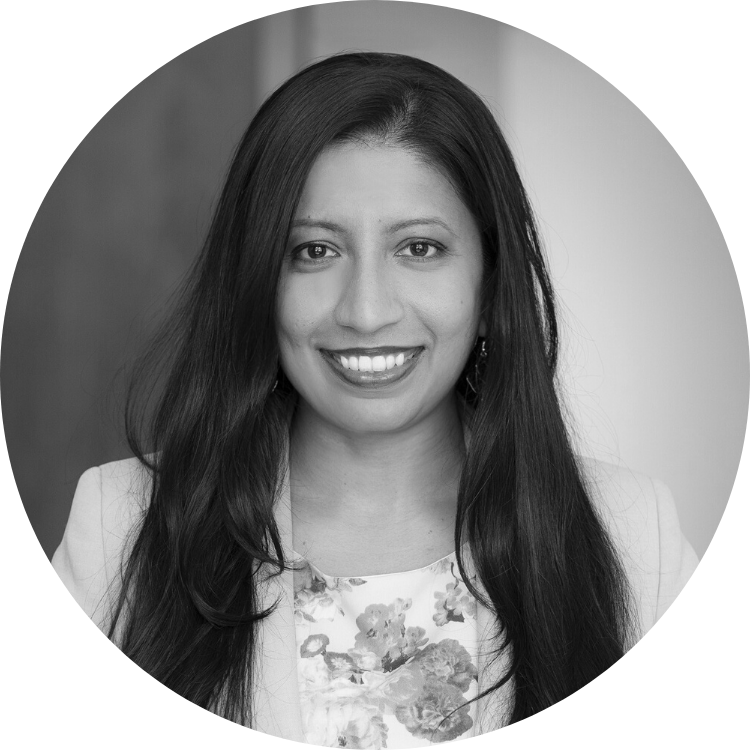
Dhilshara Fernandes
Employee Experience Change Manager, Crown Resorts
In a normal day, what kinds of data / analytics activities are you involved in?
Helping leaders across the business to build an understanding of the use of data and analytics to solve operational challenges
Shifting the mindset to use a more insights driven approach to planning, leading and managing change by showcasing how data that we already have can be used to derive useful and accurate insights.
Educating the business around good data governance practices
What are the biggest challenges you face?
Misinformation as to what using analytics means
Time and resource challenges to invest into exploratory work
What would be the proudest or most enjoyable moment in your analytics career?
Seeing recipients of a dashboard the team built use it and share openly about how skeptical they were and how their mindset has shifted.
What advice would you give to a woman wanting to get into the analytics industry?
Go for it! Our analytics capabilities are strong and all of the feminine traits that we bring to the table position us well to help our community understand and embrace this space
In terms of the future of analytics, what do you think will be the most interesting aspect/s?
Analytics will become a crucial skill across the workforce
With more and more organizations embracing analytics, ethical considerations will take center stage and become increasingly important to how we operationalize and industrialize machine learning and AI

Lydia Yao
Sr Digital Analytics Consultant, SBS
In a normal day, what kinds of data / analytics activities are you involved in?
Analytical projects to support strategic decision making such as content placement, digital platform design and product features.
What are the biggest challenges you face?
Being in media, there's constantly new data types/fields we need to evolve our analytics to cater for, but that also keeps it exciting!
What would be the proudest or most enjoyable moment in your analytics career?
Empower senior leaders with solid data evidence to drive key strategic priorities and identify opportunities where we can improve the digital audience experience at SBS.
I'm also very proud to be part of an organisation that showcases diversity in our content to inform, educate and entertain all Australians.
What advice would you give to a woman wanting to get into the analytics industry?
Be courageous and remember you are just as capable as your male counterparts!
It's about finding actionable insights and communicating them effectively and women are natural communicators!
In terms of the future of analytics, what do you think will be the most interesting aspect/s?
I think the intersection of VR and analytics is super interesting and possesses significant potential!
Retail
Click on a name to understand each person's role, proudest moment, greatest challenges and advice for women thinking of a future in analytics.
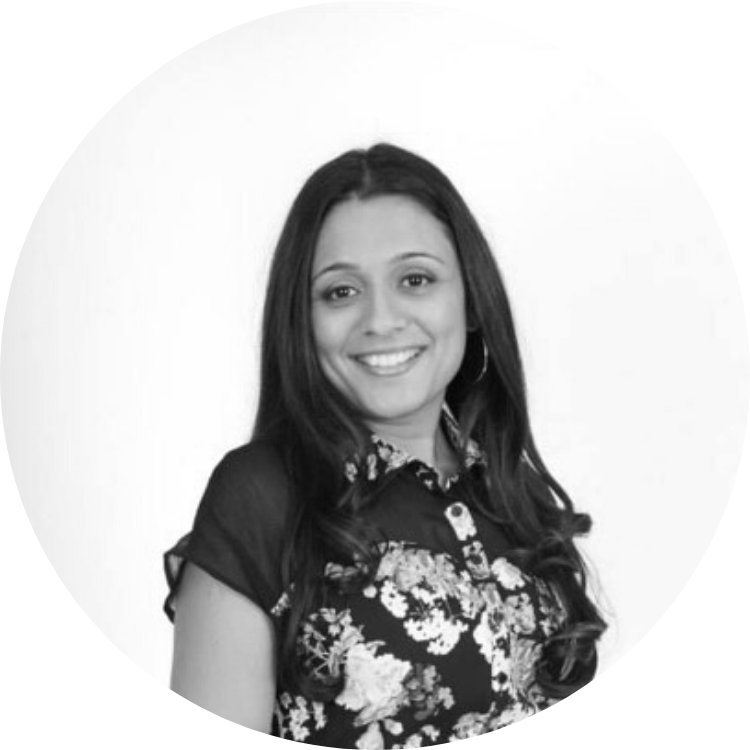
Krutika Patel
Manager, Data Visualisation & Governance, Aesop
In a normal day, what kinds of data / analytics activities are you involved in?
Accountable for making sure design and development of reporting & visualisation platforms, ensuring all visualizations (dashboards and reports) provide actionable insights that business users can easily consume and make effective decisions. Performing strategic role that sits at the core of value creation, utilizing leading edge data & analytics solutions and turning data into actionable insights. Establish and rollout an enterprise data governance roadmap with a focus on improvement of data quality and the protection of sensitive data through modifications to organization policies and standards, principles, governance metrics, processes, related tools and data architecture. Lead, mentor the team with thought leadership.
What are the biggest challenges you face?
Data Literacy
What would be the proudest or most enjoyable moment in your analytics career?
Everything about data start from understanding the business to fulfilling stakeholders requirement.
bringing them along in the data transformation journey.
What advice would you give to a woman wanting to get into the analytics industry?
Don’t think or doubt, try it and you will enjoy and love every moment as there are so many opportunities to learn and achieve.
In terms of the future of analytics, what do you think will be the most interesting aspect/s?
Data Literacy is key aspect, fostering Data driven culture would be key goal for organisations.
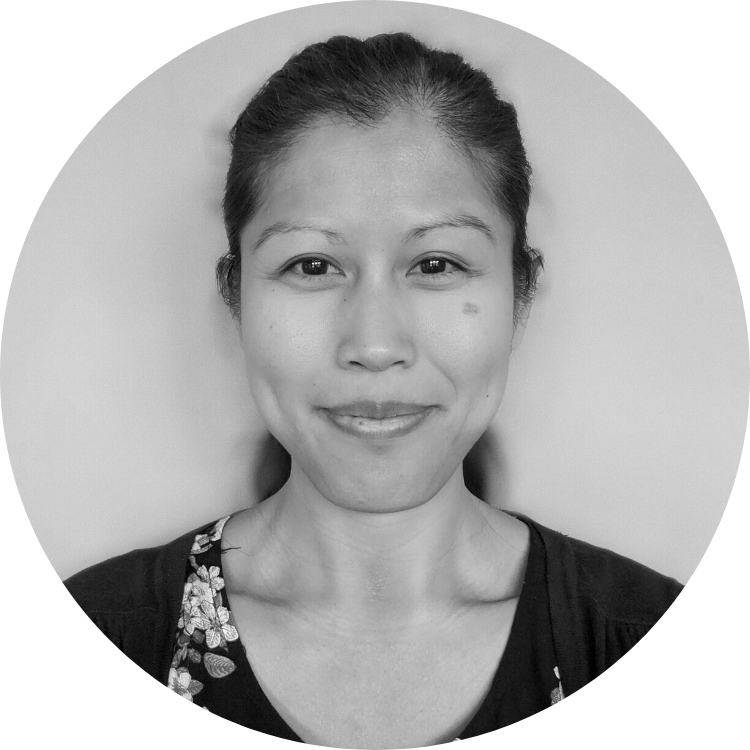
Kimly Scott
Analytics Manager, Luxasia
In a normal day, what kinds of data / analytics activities are you involved in?
In a normal day, my work involves wrangling data, building out reports, dashboards and visualisations and looking for ways to help my team and my organisation work smarter with data.
What are the biggest challenges you face?
The biggest challenge I face is finding the right balance between juggling career and family. With two young children, it’s hard to find the time and the focus to work on advancing my career both within my organisation and through my personal work. I’d like to be able to create more, volunteer, mentor - but with the time and energy commitment of a day job and family - this is not always possible.
What would be the proudest or most enjoyable moment in your analytics career?
I’m most proud when I know that I have inspired someone with my work. When I receive messages from those starting out in data visualisation or analytics to tell me that they like my work or my work has inspired them, it always makes me smile. There is no greater feeling to know that I have helped someone on their journey.
What advice would you give to a woman wanting to get into the analytics industry?
My advice would always be to build your network. Connect yourself with other analysts or join a community. There are many groups and organisations out there that are purely female focussed too. These groups work to connect, educate, and inspire those in their community.
In terms of the future of analytics, what do you think will be the most interesting aspect/s?
In terms of the future of analytics, I think it would be interesting to see how data can be used for good - to make a change in the world. We know how organisations can use data to make decisions and turn a profit, but what good can data do outside of this? For example, how can we use data to combat climate change, tackle poverty, and improve health. I’d really like to see how we can harness data for good and enact positive change in the future.
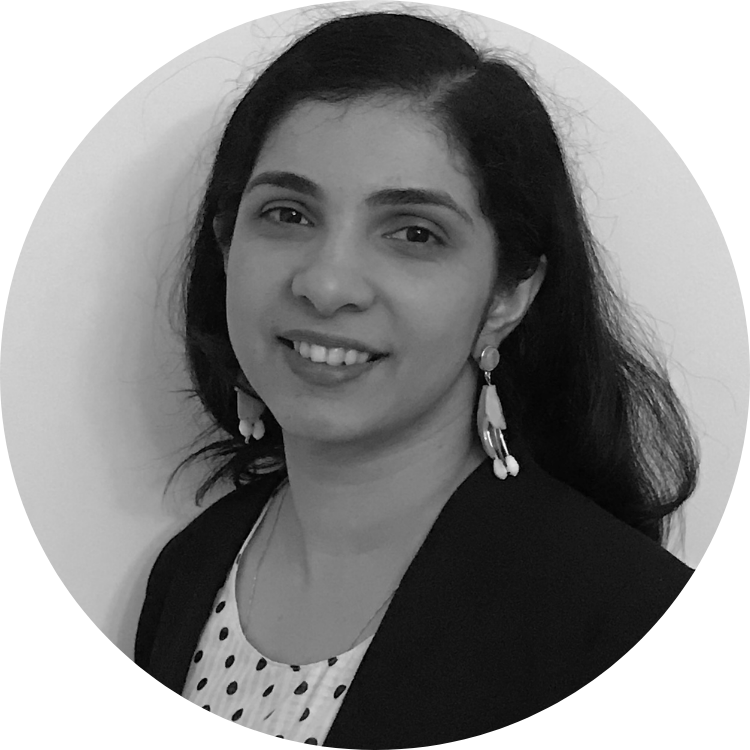
Ann Sebastian
Senior Data Scientist, Wesfarmers
In a normal day, what kinds of data / analytics activities are you involved in?
My core focus is to develop and test predictive models and advanced analytics techniques to gain value from the varied and interesting data the business has gathered. To do this effectively, I work closely with platform teams, data engineers to understand more about the end-to-end data pipelines and work with machine learning engineers to productionise the models. I also spent time to build use cases for potential applications of machine learning as well as facilitate sessions to articulate business benefits and impacts of the models that are being built. Analytics is a team sport. So, I also participate in or lead problem solving sessions. I’m also involved in planning sessions. I’m particularly excited about mentoring team members keen to move into data science as well as conducting recruitment interviews to fill in vacant roles in the team.
Having donned 3 very different roles over the last 12 months as a Senior Data Scientist across financial services & retail industries and Analytics Manager in financial services, I have found that while the above activities remain the same, the proportion of time you spent varies quite a bit depending on the role you are in, industry and size of the organisation.
What are the biggest challenges you face?
As a practitioner one of the challenges is how to balance speed to value with the experimentation and engineering required for solutions. As practitioner, we need to lower the cost of implementing ML solutions for businesses while striving to iterate faster and improving the robustness of data products. It is a balancing act and there are lot of changes in the field leading us in the right direction.
It is a rapidly evolving field and new techniques are ever emerging. Being able to balance the urge to experiment just one more technique with the business need of wanting things fast. Sometimes to work around this, timeboxing helps.
I'm also continuously striving to gain more business acumen to continuously improve the story telling.
What would be the proudest or most enjoyable moment in your analytics career?
Most enjoyable moment is when people are using the tools you have built, and you can see and actualise the transformative power analytics bring to organisations. One such recent win is to help automate classification on complaints in finance industry to help understand various factors driving customer complaints and then working closely with business teams to drive process changes to reduce the drivers of complaints. I have also been proud of being able to influence data driven decision making by presenting through to senior executives.
I also find lot of joy on hearing positive experience from people participating in training sessions or the impact they have had through mentoring sessions.
Having worked through all the various aspects in analytics such as data engineering, data visualisation and deep dive analytics, I made the decision to transition to data science in 2013. I’m proud to have been able to make the move through continuously upskilling and stretching myself and being relentless in the pursuit of that goal through persistence. I have been also lucky to have crossed paths with a few mentors who have provided great opportunities and stretched me in the direction of data science for which I’m extremely grateful for.
What advice would you give to a woman wanting to get into the analytics industry?
First and foremost, I would say to get started on the journey. I often find people waiting to formulate the perfect plan that they hesitate to take any action. So, I would highly recommend finding a plan that is kind of aligned to what you think you want, go on the journey and iterate as you go on the journey. There is a proliferation of tools, tutorials and courses available through variety of channels, so please make use of them.
Once you are on the journey, I would say to be kind to yourself. We are quite often our harshest critics, so only critique yourself as you would critique your best friend. While you are on the journey, I would encourage you to be curious and to be persistent.
In terms of the future of analytics, what do you think will be the most interesting aspect/s?
In the past decade and half, there has been an explosion of deep learning techniques and curation of great data sets. However, for most business problems there is still a barrier to adoption as the applicable volume or the relevant data set is not available. Similarly, there has been a proliferation of opensource frameworks and vendor tools for ensuring a good model is usable and robust by doing. The cost of doing this is still high and quite often how it is set up negates the values machine learning can bring to the problem. I think the breakthrough in research, release of new data sets, new tools for machine learning and data ops will converge to lower the barrier to applying machine learning to business problems.
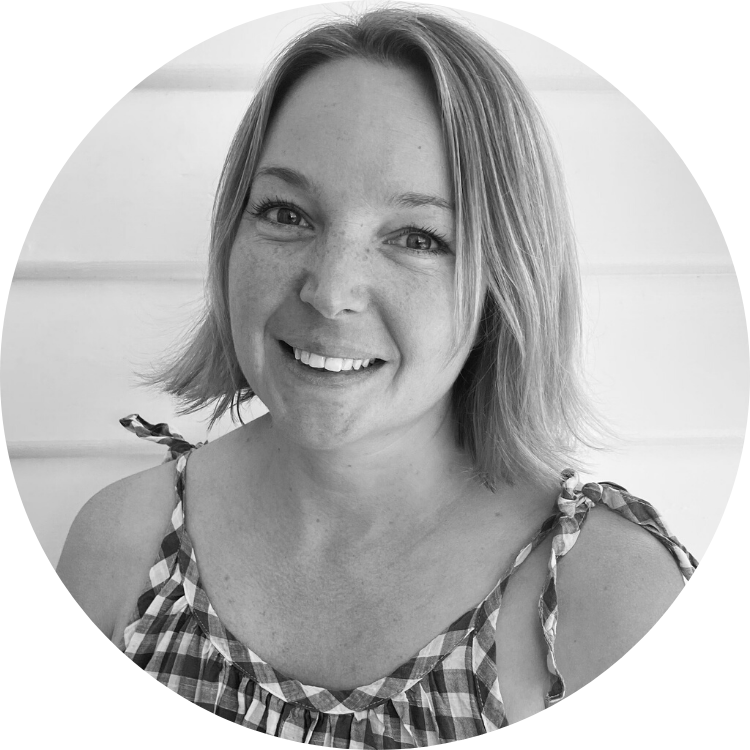
Nicola Shawyer
Customer Insights Manager, Cotton On
In a normal day, what kinds of data / analytics activities are you involved in?
A good mix of time 'in the data' with various tools, as well as lot's of stakeholder collaboration. Top of mind throughout, is ensuring the right questions are being asked of the data, with the right benchmarks and that the resulting 'story' is synthesised to be clear, concise & visual.
What are the biggest challenges you face?
I love the balance of technical and softer skills in my day - always have. The challenge is having the time and head space to ensure we're constantly helping pave the way for better data literacy, democracy and governance across the business.
What would be the proudest or most enjoyable moment in your analytics career?
Many moons ago when I was on agency side, I faced a frosty reception from a CEO on value (or cost) of their loyalty program, vs their preference to spend on above the line media. As always, the data did the talking and I was able to show not only how valuable these loyal customers were, but how we could better understand them and even communicate with them in a more relevant way, because of the program. They subsequently caught the 'bug' and invested heavily in their data, program and customers.
What advice would you give to a woman wanting to get into the analytics industry?
The biggest antidote to lack of confidence is knowledge, which in turn comes from curiosity. If I know my stuff I can always talk & engage confidently. So be curious. Ask a lot of questions, and embrace questions back (as that's a way to ensure stakeholders are confident and have understood you well also). In turn, the data will enable your stakeholders to make better, more confident decisions & discussions too. And always remember you're in the room because you're the expert, the one closest to that subject.
In terms of the future of analytics, what do you think will be the most interesting aspect/s?
Data literacy. I think technologically there's been amazing advancements in the last decade handling the 3 V's of data as well as accessibility of BI, visualisation and ML. Whilst the data doesn't lie, it is definitely easy to go down rabbit holes and wrong turns and it can definitely mislead if you're looking at (or for) the wrong thing. So as the proportion of people accessing & using data continue to scale, the skill set needs to scale with it.

Tanya Watts
Senior Analytics Manager, WooliesX
In a normal day, what kinds of data / analytics activities are you involved in?
I lead the ecommerce analytics squad for B2C, focusing on customer, commercial and digital analytics. Our remit covers everything from advanced analytics support for strategy and business initiatives, through to predictive modelling of engagement and value.
What are the biggest challenges you face?
Recruitment - sourcing talented individuals for a rapidly growing function who have that magical blend of business and technical acumen.
What would be the proudest or most enjoyable moment in your analytics career?
There are many, but all involve initiatives where analytics has led and been embedded at the heart of a business process. Enabling development and being able to mentor and provide opportunities for people to grow and fulfil their potential has also been extremely rewarding.
What advice would you give to a woman wanting to get into the analytics industry?
Go beyond the technical and really understand the "why" behind a problem and the opportunities it presents. Cultivate your ability to present and explain complex issues clearly and simply and you will be an invaluable asset to any organisation.
In terms of the future of analytics, what do you think will be the most interesting aspect/s?
The tech capabilities that will present in the next 5-10 years are things that we would have once considered to be the realm of sci-fi. To me, that makes our roles in interpreting and curating insights even more critical and bringing stakeholders along on the journey.

Fiona Wu
Data analyst, New Aim Pty Ltd
In a normal day, what kinds of data / analytics activities are you involved in?
Usually, I will be assigned some tasks requested from the stakeholders in different functional departments including category team, marketplace team, buying team and warehouse team, etc. After catch up with the stakeholders, what is critical is to understand and identify the business problem, then I will work out a framework of the analysis task, collect and process raw data, carry out analysis, create visualized analysis report and gain some insights to the end users instead of some summary. It's highly recommended that I could propose some suggestions to the stakeholders to help decision-making.
What are the biggest challenges you face?
Well, Since I work for New Aim which is an Australia's leading Ecommerce Company. One biggest challenge is that what I face everyday is a multi-task, fast-paced and dynamic environment, to be honest, sometimes I will feel a lot of pressure. I always have a couple of catchup everyday and ad hoc urgent tasks with a closely approaching deadline. After having several such experiences, I've learned how to perform time management for multi-tasks and focus on one task once. Another challenge is that I have to communicate with stakeholders both technical and non-technical, one of my suggestion is to use as simple words as possible with visuals when explaining the analysis result and to avoid jargon.
What would be the proudest or most enjoyable moment in your analytics career?
Of course it's the moment when I receive some very positive feedback from the stakeholders after delivering my work. I still remember that once I created a discount template for the channel team which helped them shorten the enquiry time from half an hour to 5mins or so. Both the channel manager and the CIO in the company praise me on my work, which means a lot to me is not only the good review from the boss but also the fulfilments brought by the job.
What advice would you give to a woman wanting to get into the analytics industry?
First of all, ask yourself whether you are passionate about data and data analytics? whether you are always curious about questioning and being questioned? if not, unfortunately, you might not suitable to be a data analyst and you could skip the following advice:)
Always keep yourself moving forward not only in gaining more new and advanced technical skills but also in improving business sense and knowledge in your industry.
Try to communicate more with the stakeholders in a honest way since data analysis is an independent and collaborative job which sounds contradictory, actually it is! You need to perform some analysis by yourself and also be aware of business problem with collaboration with others.
Never be scary of failure, sometimes you'll be frustrated when your performance is not like that you expect, trust me, it's normal! And that's the motivation that makes you move forward.
Fully enjoy the adventure in the career of data analytics.
In terms of the future of analytics, what do you think will be the most interesting aspect/s?
Currently, what I focus on is diagnostic analysis like sales decreasing analysis, promotion performance evaluation, etc. However, there are also a couple of aspects which I am interested in and I will devote myself into including analytical methods like forecasting analysis. Through the predictive analysis results and recommendation, the operational department and the strategy department probably could get some effective help in decision making to add more value to business. To perform forecasting analysis, I need gain more technical skills like big data analysis, machine learning models even some AI techniques not just be able to create some dashboards. Besides, customer behavior analysis is another aspect I am interested in, it's essential but difficult to improve customer engagement and reduce customer churn for an eCommerce platform, how to build a suitable machine learning model to analyze the behavioral patterns and predict customer's behavior is what I'd like to research. Anyway, I could not wait to explore a new adventure in the career of data analytics.
Technology
Click on a name to understand each person's role, proudest moment, greatest challenges and advice for women thinking of a future in analytics.
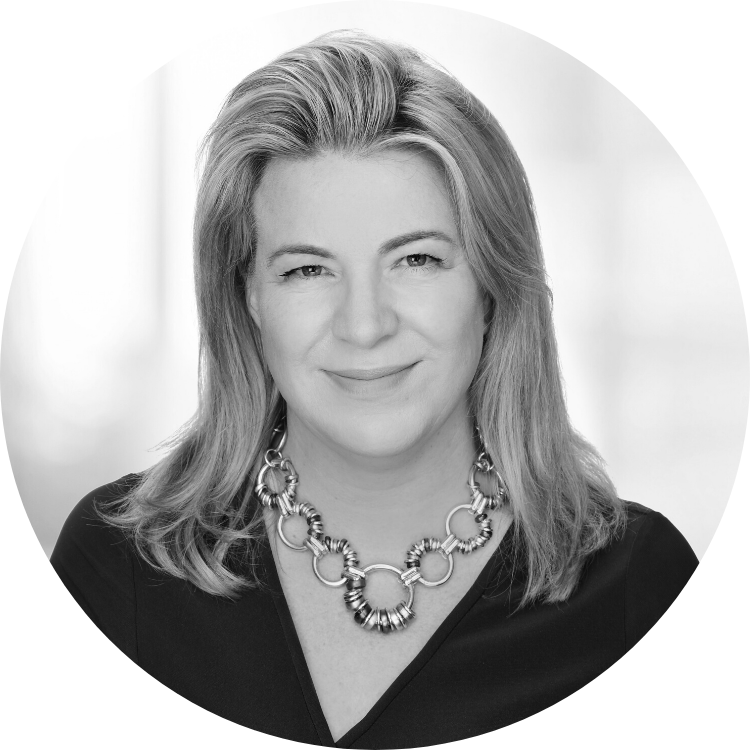
Jolie Baasch
Head of Data Sustainability, CoreLogic
In a normal day, what kinds of data / analytics activities are you involved in?
Every day, CoreLogic works with data from over 7,000 data sources - with some datasets going back over 30 years. The Data Sustainability function is responsible for working with clients, solution teams, technology leaders and informations suppliers to design and deliver compliant and robust solutions to support decision making in the property ecosystem. On any given day, I could be brainstorming with a client to define a problem statement, working with the analytics team on model experimentation, liaising with internal and external parties to source/improve attributes to increase model performance, performing data ethics and compliance reviews, working with technology teams to lift data processes or assessing new data opportunities to improve our offerings. I am fortunate that I get to work across such a broad range of data challenges with passionate and talented data people!!
What are the biggest challenges you face?
The new state with the existing state - we are seeing change occurring at a rapid rate and we must have the foundation to change and adapt with confidence in data and processes. There are no more "set and forget" models running for 10 years - needs and networks keep evolving at a faster rate. Being agile and flexible - with confidence in data, methods and processes with appropriate safeguards to deliver reliable insights is what is expected. For organisations with legacy data-driven processes, it can become a question of maintenance vs entire rebuild based on the rate of change and the dependencies involved.
What would be the proudest or most enjoyable moment in your analytics career?
Developing a team with diverse skills, experiences and backgrounds - each with their own distinct gifts to offer - and having them perform as one. Challenging each other, teaching each other and growing together whilst delivering outcomes - and having fun!
What advice would you give to a woman wanting to get into the analytics industry?
There is no better time than now...don't wait until you have mastered every skill or requirement on the role description. Back yourself - You may not yet have the SKILL, but if you have the WILL, that is more than half the battle.
Don't let some the outdated "X-box Gaming, Table Tennis Playing" reputations of organisations deter you from joining an exciting and inclusive industry. There are many entry pathways - and yours is just as relevant as others in this ever-shaping industry. Take your place and leave your mark!
In terms of the future of analytics, what do you think will be the most interesting aspect/s?
Harnessing data to support a safe, sustainable and responsible future. It may be a data-driven world, but it also reflects and impacts our humanity, our values and our diverse cultures.
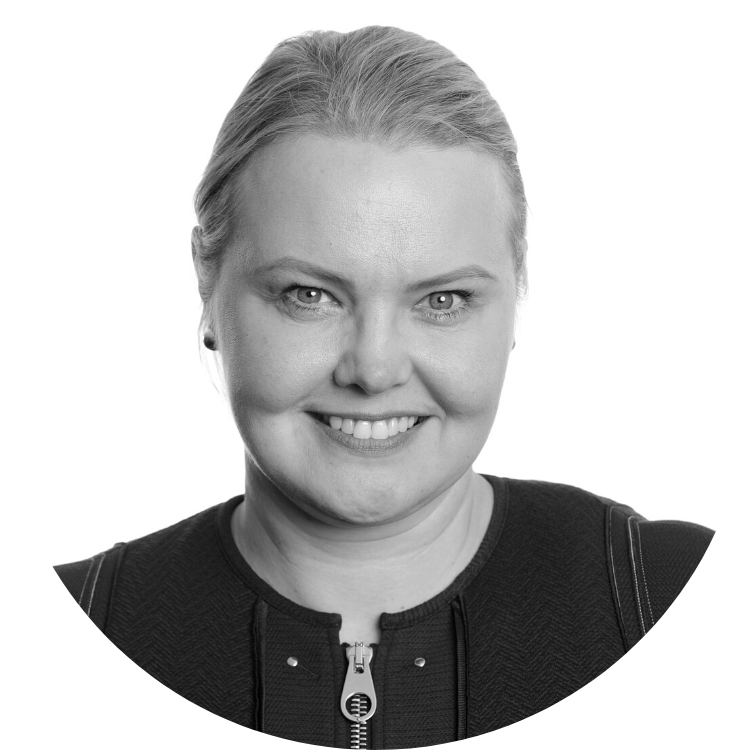
Dr Tatiana Bokareva
Principal Data Scientist for Asia Pacific and Japan, Teradata
In a normal day, what kinds of data / analytics activities are you involved in?
It ranges from what our customers needs are, e.g
1) I need a help to build a predictive model.
2) I have this business problem I am asked to answers, any idea how? Do you know what will work?
3) Teaching, what is new in our system and how it is used.
4) Presentations on how Teradata make AI work
What are the biggest challenges you face?
There is so much potential value that can be deliver by analytics and what I see the focus is on technology (e.g., one algorithms vs another). We forget sometimes what analytics are for.
Spreading the news that data managment is not "legacy" and it is fundamental to make successful analytics work in an organisation. With out that it is a "wild west".
Bias: you are lady and you do what for living?!
Imposter syndrome: "Why me, I did not do anything..!"
What would be the proudest or most enjoyable moment in your analytics career?
There are many most of then follow 2 patterns, not in order of importance:
1)When the reports from my work or the work of the colleagues comeback and I see the value or the "good thing" that analytics brings. I just burst with happiness
2) Someone just discovered a new way to solve a problem. I cannot stop being amassed at human creativity. And YES analytics is creative.
What advice would you give to a woman wanting to get into the analytics industry?
Get there and get there fast! It is exciting, challenging and this is where the future will be.
In terms of the future of analytics, what do you think will be the most interesting aspect/s?
Seeing adoption of the technology in our everyday lives (affordable and intelligent). We all talking about fridge doing your shopping, robots help, but for most cases it is still "wishful thinking" rather than an intelligent reality.
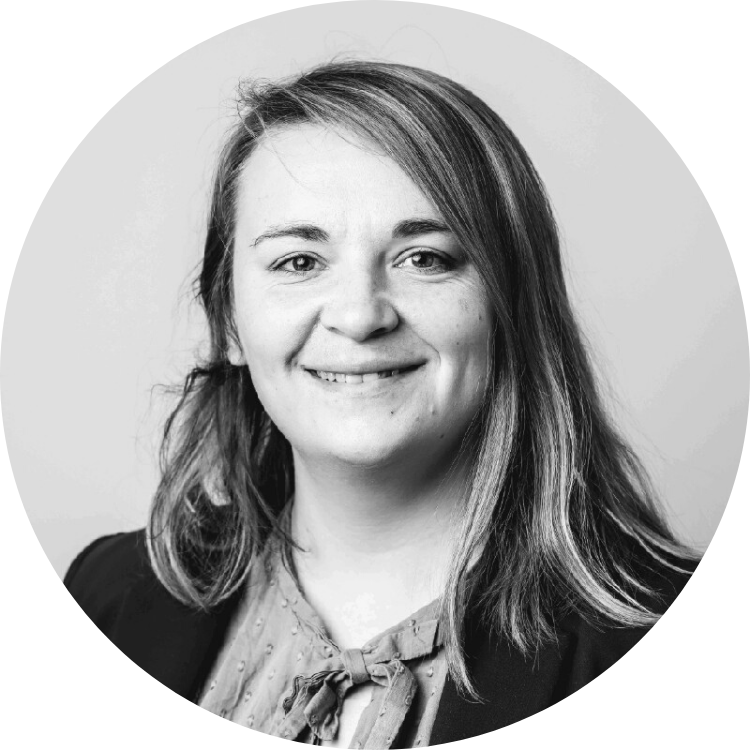
Olga Drath
Lead Data Analyst, Aginic
In a normal day, what kinds of data / analytics activities are you involved in?
translating business requirements into a backlog of epics and stories at a project and product level, setting up data pipelines, data modelling (mainly SQL), BI dashboarding,internal & external training, project scope management, stakeholder management, team management
What are the biggest challenges you face?
Quite often the biggest challenge is me & my imposter syndrome
What would be the proudest or most enjoyable moment in your analytics career?
Transitioning into tech & data analytics in my 30-ties and progressing successufully in the industry will always be something I am proud of.I also really enjoy watching my juniors grow and aquire new data skills.
What advice would you give to a woman wanting to get into the analytics industry?
You are smarter than you think so just do it. Find kind people to mentor you, who will lift you up rather than crush you.
In terms of the future of analytics, what do you think will be the most interesting aspect/s?
I am interested to see what happens to the self-served analytics concept in opposition to the fact that data roles are becoming more and more specialised i.e. data engineers vs analytics engineer vs cloud engineer etc)

Elise Hampton
Data Scientist, Teradata
In a normal day, what kinds of data / analytics activities are you involved in?
A normal day could consist of some data wrangling, trying to get the data into a format that we can use down the track. It could also involve some data discovery, diving deep into some new data sets to see what's there for us to use. And of course there are days where I am programming and building models for different business problems.
What are the biggest challenges you face?
The biggest challenges I've faced have been working on how to talk to business customers on the concepts we are using to answer their business cases in such a way that the concept gets across and the customer begins to trust you and your teams work.
What would be the proudest or most enjoyable moment in your analytics career?
The best moment I've had so far is when we've been spending so much time building a program to model or predict or optimise and we can finally see the results and we show the customers and they are just as excited as we are in what we've accomplished.
What advice would you give to a woman wanting to get into the analytics industry?
Analytics is for everyone, you don't have to be male or female. But if you do want to head into Analytics definitely keep you programming skills up but also look into problem solving. Being able to program will get you some of the way but if you enjoy solving problems that'll get you the rest of the way.
In terms of the future of analytics, what do you think will be the most interesting aspect/s?
The area of analytics is always growing, many of the algorithms used have been around for a long time but someone finds a new way to use it. I am looking forward to seeing how the future of analytics uses these same algorithms, and new ones, to solve even more obtuse problems as the world and data get more complicated.
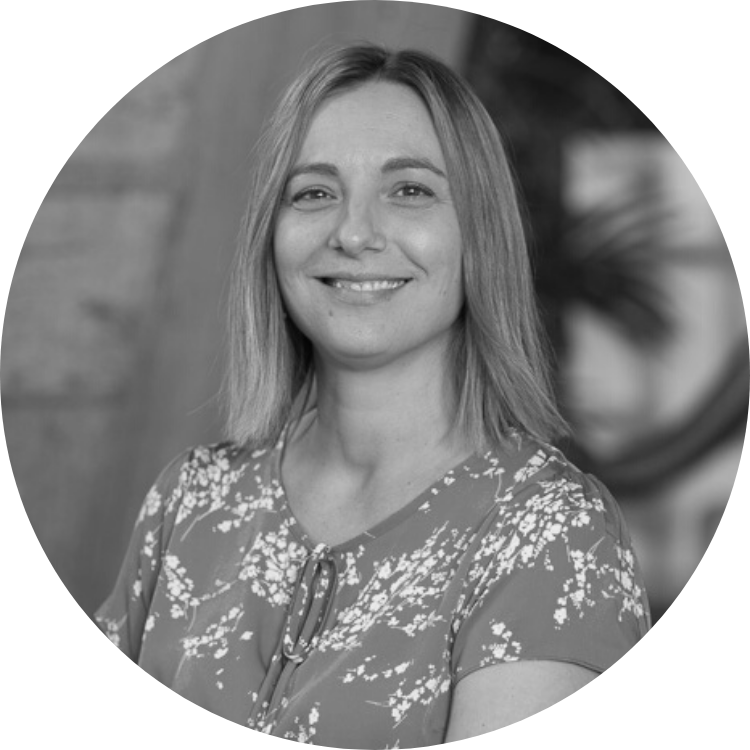
Sandra Hogan
Chief Data & Analytics Officer, Amperfii
In a normal day, what kinds of data / analytics activities are you involved in?
I am consistently engaging with analytics professionals and business stakeholders to discuss how we can collaborate to deliver the benefits of data and analytics to the organisation. I work on developing analytics solutions and products that will assist business teams to deliver benefits to their end customer. I also focus on ensuring we have a sustainable and relevant data and analytics strategy to support the organisation's objectives. With the rapid pace of change, the analytics team need to be aligned to business strategy and continually refining how the engage with the business and deliver value.
What are the biggest challenges you face?
One of the biggest challenges is change management to consume analytics products and support the organisation to improve its understanding and use of data and analytics. To truly deliver value from analytics products, the organisation needs to work differently and that involves change management activities to deliver a fit for purpose solution and ensure business stakeholders trust and act on the data driven solution.
What would be the proudest or most enjoyable moment in your analytics career?
I feel most proud when I see younger analytics professionals see the impact they have made on an organisation with their work. Coaching and mentoring people is something that gives me joy and hopefully gives younger professionals a way to fast track their craft and value to their stakeholders.
What advice would you give to a woman wanting to get into the analytics industry?
My advice would be to focus on your business knowledge as well as your technical skills. I recommend that you collaborate closely with your stakeholders to ensure your work is actionable and delivers value every time.
In terms of the future of analytics, what do you think will be the most interesting aspect/s?
I see a focus around data literacy with a lot of value coming from how we better collaborate across the many diverse teams that need to come together to deliver a successful analytics and AI project. Success is a team effort and very relevant to data science as we move into the age of AI and automation.

Zena Mwende
Business Data Analyst, Rezdy Pty Ltd
In a normal day, what kinds of data / analytics activities are you involved in?
My specialty is business innovation and transformation using data and analytics. In my current role, I wear many hats from providing leaders with visibility on their performance to collaborating with teams to find growth levers and opportunities for optimisation.
What are the biggest challenges you face?
Throughout my career, I have developed the unique ability to imagine a bigger future for the products, brands and businesses I get involved with. However, the lack of representation of minority groups, especially women of colour, has been a huge challenge when navigating a career in this field.
What would be the proudest or most enjoyable moment in your analytics career?
I recently worked on developing a machine learning algorithm to predict lead scoring for the Sales and Marketing teams. The project was a huge success and has been able to provide the company with an efficient way of lead scoring and prioritising sellable leads. In addition to this, senior management is able to have full visibility over the marketing spend utilisation.
What advice would you give to a woman wanting to get into the analytics industry?
Translating data into actionable insights is the most important aspect of analytics. Build your communication skills alongside your technical capabilities and strengthen your connections by networking.
In terms of the future of analytics, what do you think will be the most interesting aspect/s?
The progression to digital transformation through analytics requires an integrated approach between people, data, processes and analytics. This will lead to companies using future-forward strategies through prescriptive analytics as a key competitive advantage.

Vicent Osabel
Senior Solutions Engineer, Dataiku
In a normal day, what kinds of data / analytics activities are you involved in?
As the technical expert in a sales engagement, I help guide various organisations on how to move on their analytical journey through ideation, demonstrating the value of AI in the context of a business use case and educating them on the importance of MLOps and AI Governance. Given my consulting background, I provide guidance on organisations on how they can move forward in their AI maturity by mapping their high-level goals and identify gaps they may have across people, process or technology to help them reach their AI vision.
What are the biggest challenges you face?
The rapid change in tech analytics landscape. Organisations have so much technical debt that it is hard to convince them to move and pivot to a new way of doing things to achieve their goals.
Changing hearts and mindset is always challenging especially around AI as only a handful or orgs in Australia have truly embraced the adoption of AI in their day-to-day business operations
What would be the proudest or most enjoyable moment in your analytics career?
My analytics career has allowed me to travel and move countries having started my career in the Philippines all the way to working in SE Asia and now in Australia. One of the key highlights of my career is being given the opportunity to mentor a datathon back in 2020 for the Women in AI in NZ. It feels good to give back to a practice that has given so much to me.
What advice would you give to a woman wanting to get into the analytics industry?
Be bold, take courage and speak up. This industry is quite challenging and predominantly led by males. But I can see that change is coming with the likes of IAPA paving the way for women to have a seat at the table.
In terms of the future of analytics, what do you think will be the most interesting aspect/s?
Democratisation and systemisation of AI: Ten years ago, it was all about "Data Scientist is the sexiest job of the 21st century". While this is still true, DS talent has become rare to find and retain so I can see the need for democratisation and systemisation of AI
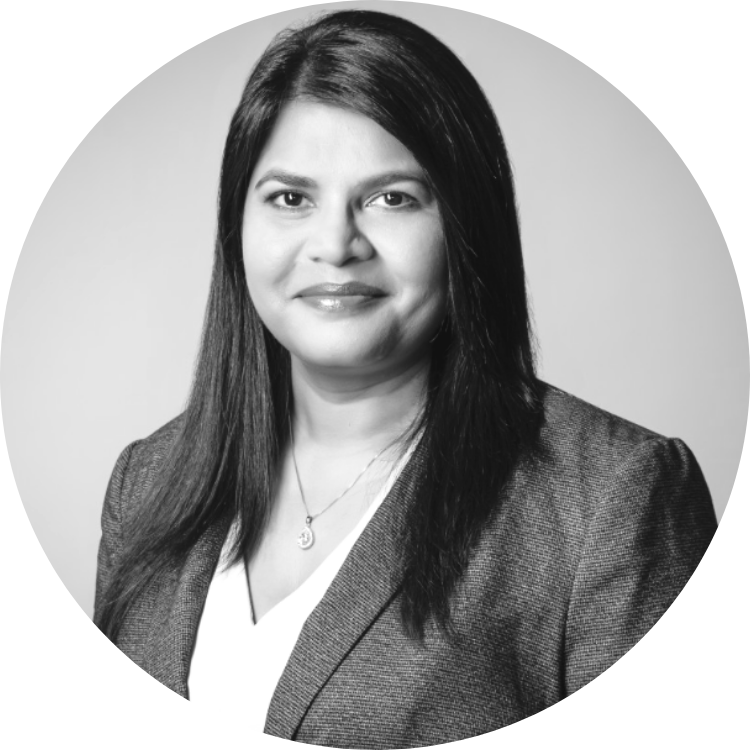
Aruna Pattam
Head of AI & Data Science, APME & Japan region, HCL Technologies
In a normal day, what kinds of data / analytics activities are you involved in?
There's no "normal" day when you're a head of AI & Data Science, but some activities I might be involved in on any given day include:
· meeting with clients or partners to discuss potential collaborations;
· monitoring how AI & Data Science is being used across the company and identifying opportunities for improvement / expansion;
· planning and executing proofs of concept or pilot projects to demonstrate the potential value of AI & Data Science;
· hiring new talent into the team and grow the talent;
· managing a team of data scientists and AI engineers, guiding them and helping them to be productive;
· mentor & coach data science team, and ensuring that they're always learning and expanding their skillsets and help them grow in their career;
· Developing new methods and algorithms for implementing AI & data science solutions;
· working on exciting new projects that apply AI & Data Science in innovative ways to solve business challenges and so on;
· attending meetups and conferences in order to stay up-to-date on the latest trends and developments in AI & Data Science;
· reading and keeping up to date on the latest AI & data science research and trends;
· evangelise AI & Data Science within the business and help to raise awareness of the potential benefits it can offer;
· engage with external communities and organisations as a thought leader in AI & data science;
· managing relationships with external researchers or data providers where relevant - e.g. research institutions, industry bodies, government departments.[KW1]
So, as you can see, there's never a dull day when you're head of AI & Data Science!
Every day is different and there are always new challenges and opportunities to explore.
It's an exciting field to be in and I'm constantly learning new things.
What are the biggest challenges you face?
The biggest challenges I face as a head of AI & data science are:
1. Hiring and retaining good talent - it can be difficult to find and keep good data scientists, especially in today's competitive market;
2. Staying up-to-date on the latest trends and developments in the field - the landscape is constantly changing and it's important to be constantly learning and expanding your skillset;
3. Balancing the need for speed and accuracy - as data science leader, you often have to make tough decisions about where to focus your team's time and energy;
4. Building a data-driven culture within the organisation - getting buy-in from stakeholders and ensuring that data is used effectively across the company is not always easy but is essential for success;
5. Dealing with ambiguity and uncertainty - data science can be a complex and unpredictable field, and as a leader you often have to make decisions in the face of incomplete information.
These are just some of the challenges I face on a daily basis.
As with any role, there are always challenges to overcome but that's what makes it interesting and challenging. I enjoy facing these challenges and finding ways to overcome them.
As a women in the field, I face additional challenges that I wouldn't face if I were a man. For example, there is still a lack of women in senior data science roles, so I often feel like I'm representing all women in the field when I'm interviewed or give talks. This can be both challenging and rewarding - it's motivating to know that I'm helping to pave the way for other women in data science.
But despite these challenges, I love my job and wouldn't trade it for anything. It's a fascinating field and there's always something new to learn. I'm excited to see where AI & data science will take us in the future!
What would be the proudest or most enjoyable moment in your analytics career?
There have been many proud and enjoyable moments in my 22 years of analytics career, but some of the recent highlights include:
2. Being recognised as a thought leader in the AI & Data Science field - receiving awards or being quoted in articles or white papers; and have been recognised recently for my contribution to AI including:
💠 “AI Global Ambassador 2022” by Swiss Cognitive World-Leading AI Network,
💠 “AI Changemaker Leader 2022″ by 3AI a leading AI & Analytics community,
💠 “The Most Admired Global Indians 2021” by Passion Vista - Global Magazine.
3. Seeing my team's work have a real impact on the business - improving customer engagement or increasing sales.
4. Watching beginners become experts in data science - seeing people grow and develop their skills is really rewarding;
5. Being part of a team that is constantly learning and evolving - I've been in teams where everyone is constantly pushing themselves to learn new things and take on new challenges.
6. Giving seminar to university students globally on topics of AI, Responsible AI, Ethics etc for both IT and non-IT and business graduates.
7. Mentoring young graduates and professionals especially women to increase women's representation in AI & Data Science.
8. Giving back to the community what I had learnt through my experience as a thought leader, speaker, mentor, blogger, vlogger with the goal of educating and providing awareness on AI to the business and wider community.
9. I regularly share informative blogs, storytelling videos etc. aimed at demystifying AI and detailing the ever-expanding AI scope for business transformation. All my contributions can be referenced in my website and my youtube channel.
What advice would you give to a woman wanting to get into the analytics industry?
There are a few things I would advise:
1. Be passionate about data and analytics - the field is constantly evolving and there's always something new to learn, so you need to be passionate about it in order to keep up;
2. Be fearless - data science can be intimidating at first, but don't let that stop you from learning and asking questions;
3. Be persistent - the analytics field is competitive, but don't let that discourage you; keep pushing yourself to learn new things and hone your skills;
4. Be a team player - data science is a team sport, so it's important to be able to work collaboratively with others;
5. Be open to learning - the analytics field is constantly changing, so it's important to be open to new ideas and approaches.
I would also advise reading about AI and data science, attending seminars and networking with other analytics professionals. These are all great ways to learn more about the industry and make connections that could help in your career.
So, as you can see, there have been many proud and enjoyable moments in my analytics career. Every day brings something new and exciting, which is why I love what I do. And I believe that anyone who is passionate about data and analytics can find success in this field. So if you're thinking of pursuing a career in analytics, don't let anything hold you back - go for it!
So, these are some of the things I would advise a woman wanting to get into analytics. I wish them all the best in your journey!
In terms of the future of analytics, what do you think will be the most interesting aspect/s?
There are many interesting aspects of the future of analytics, but some of the most exciting include:
The increasing use of AI and machine learning in data science - these technologies are changing the way we collect, analyze and interpret data;
The growth of big data and data lakes - this is providing organizations with more opportunities to analyze data and gain insights;
The increasing use of data visualization - this is making it easier to understand and interpret data, which is helping to drive better business decisions;
The growth of predictive analytics - this is allowing businesses to anticipate future events and trends, which can help them make more informed decisions;
The rise of the data scientist - this is a new breed of data-literate professionals who are able to work with data in a variety of ways to drive business value.
The growth of data science education - there is a growing demand for data scientists, so more people are getting trained in this field;
The rise of data-driven decision-making - businesses are becoming more data-driven and are making decisions based on data rather than intuition or guesswork.
So, these are some of the most interesting aspects of the future of analytics. I'm excited to see how these trends play out and what new developments we'll see in the years to come.
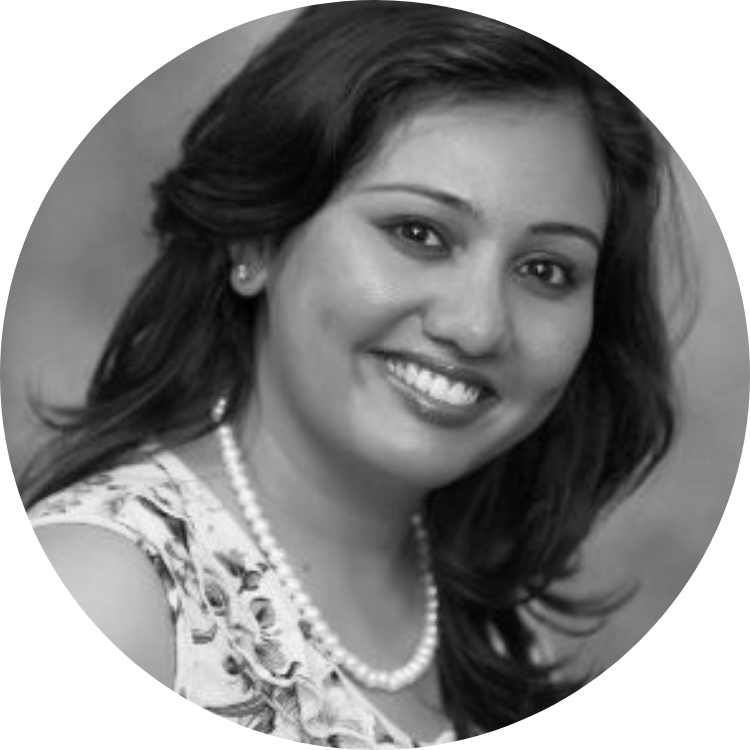
Vaishali Vijay
Data Analytics Specialist, Google
In a normal day, what kinds of data / analytics activities are you involved in?
In my present role, I have the fortunate opportunity to help customers transform and build what's next for their business- all with technology built in the cloud. As a Data Analytics Specialist I actively use both my technical aptitude and communication skills to address all aspects of the data lifecycle.
What are the biggest challenges you face?
Finding out the 'why' of the problem and creating an awareness of the value that data analytics brings in the solution.
What would be the proudest or most enjoyable moment in your analytics career?
Joining Google as Data Analytics Specialist! I was always drawn to the culture and possibilities with innovation.
What advice would you give to a woman wanting to get into the analytics industry?
I would definitely advice to Network! Find communities, groups, attend relevant sessions even if you are a newbie and make connections, follow the leaders in your chosen fields. Do not hesitate to reach out to people with mentorship requests, most people are happy to help/guide a new starter.
In terms of the future of analytics, what do you think will be the most interesting aspect/s?
I am excited with the low code/no code approach picking up the pace enabling diverse people from non-technology backgrounds to get results faster!
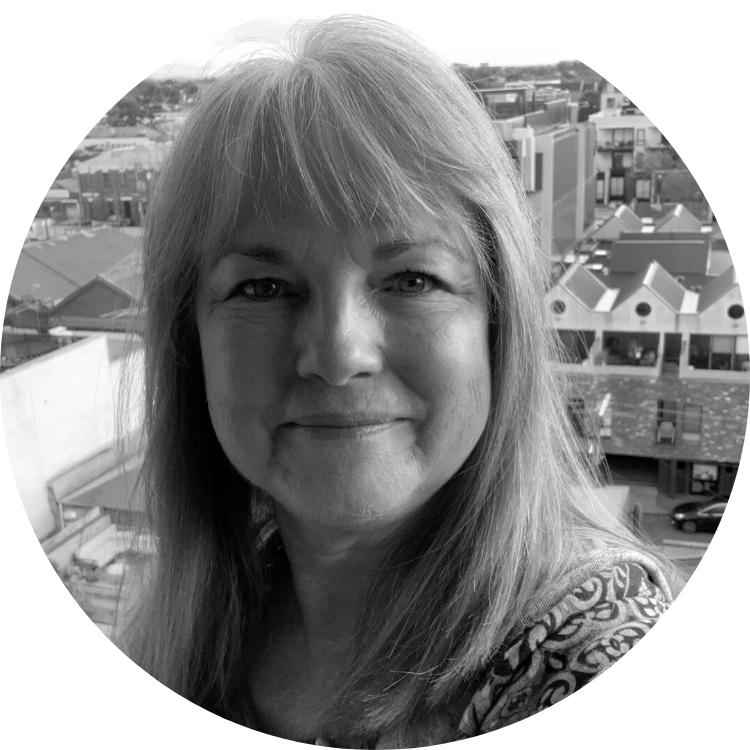
Monica Woolmer
Sr Industry Expert, Teradata
In a normal day, what kinds of data / analytics activities are you involved in?
At Teradata, we transform how organisations work and people live through the power of data. My primary role is to help our customers or prospects achieve their priority business outcomes through data and analytics. This could entail the sharing of relevant analytic use cases that have been delivered to other customers around the world or through sharing how the analytic capabilities available to them through our products or partner products could be deployed to achieve the desired outcomes. An example here is in showcasing how path analysis can be used to uncover broken digital processes.
What are the biggest challenges you face?
The first challenge is time - ensuring that I understand the right priorities so that the most important items are completed in the timeframe expected.
Another challenge is ensuring I adapt to meet my customers where they are in their data / analytics journey. Organisations even in the same industry may be on different paths and even departments within the same organisation may have a different level of understanding of data and analytics.
- Finally, working for a tech company, ensuring that we collectively are not solely focused on the technical benefits, rather the end goal of achieving business outcomes with the technology is truly front and centre.
What would be the proudest or most enjoyable moment in your analytics career?
Prior to joining Teradata, I started up a boutique data and analytics consultancy and was successful in building up the business to the point of having over 30 consultants on my team.
More recently, in 2021, I was nominated for and accepted into Teradata's Winners Circle, recognising the work I had done for Teradata customers in Australia/New Zealand.
What advice would you give to a woman wanting to get into the analytics industry?
There are many different types of roles available in analytics both customer facing and more behind the scenes. My career has been a mix of business and technical (and often bridging the two!).
If you have an interest and willingness to learn then the industry is one you should investigate. The analytics industry keeps evolving so you will continue to have the opportunity to apply your skills in new and many times innovative ways.
In terms of the future of analytics, what do you think will be the most interesting aspect/s?
In the near term, analytics will play a key role in helping organisations meet and exceed their own climate change targets.
Into the future, there will be a continued proliferation of analytics into areas we might not even of thought of today!
Telco
Click on a name to understand each person's role, proudest moment, greatest challenges and advice for women thinking of a future in analytics.
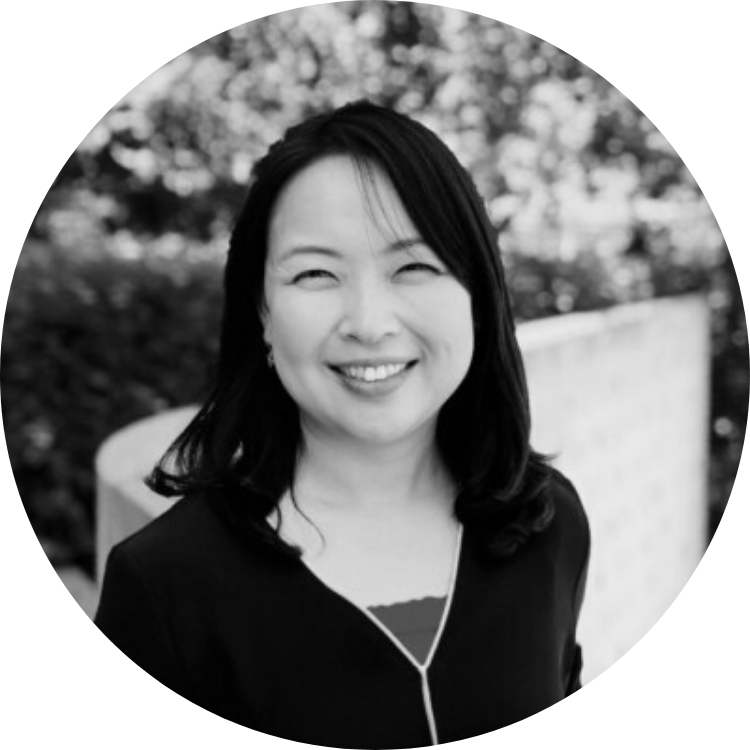
Ji-Hyun Kim
Director, Data&Analytics, Singtel Optus
In a normal day, what kinds of data / analytics activities are you involved in?
My day involves being across activities across all aspects of ingestion, management and consumption of data for decision making! This includes developing new data pipeline, optimising operational practises, visualisation of data for insights and storytelling and executing analytic use cases to deliver business value.
What are the biggest challenges you face?
Juggling the priorities across ensuring data quality, enriched data to enhance breadth of valuable data and operationalising actionable insights. There are endless problems to solve which keeps my day very interesting!
What would be the proudest or most enjoyable moment in your analytics career?
My recent involvement in Optus's drive to grow capability in data literacy across our business. OptusU (Optus University) is one of our flagship program to develop our people to be future ready with key digital skills such as data analytics. We have a high uptake with female participation at 50% which makes me proud and inspired!
What advice would you give to a woman wanting to get into the analytics industry?
There are numerous pathways of getting into the analytics industry at any stage in your career. Reach out to your trusted colleagues or mentors to guide you on how to get started, and leverage the wealth of info available on the internet or social media. Be bold, be brave, go for the opportunities that will give you exposure to data analytics in your current role, or the roles in the market that will give you a foot in the door. There are a range of skills and experience required for a successful career in analytics which isn't just purely technical which you may already have in spades!
In terms of the future of analytics, what do you think will be the most interesting aspect/s?
The possibilities in scaling analytics through all the plethora of use cases yet unexplored with the speed of technological advancement we will see in Industry 4.0. It excites me to think of the opportunities ahead in working with use cases that will deliver benefits to our community.
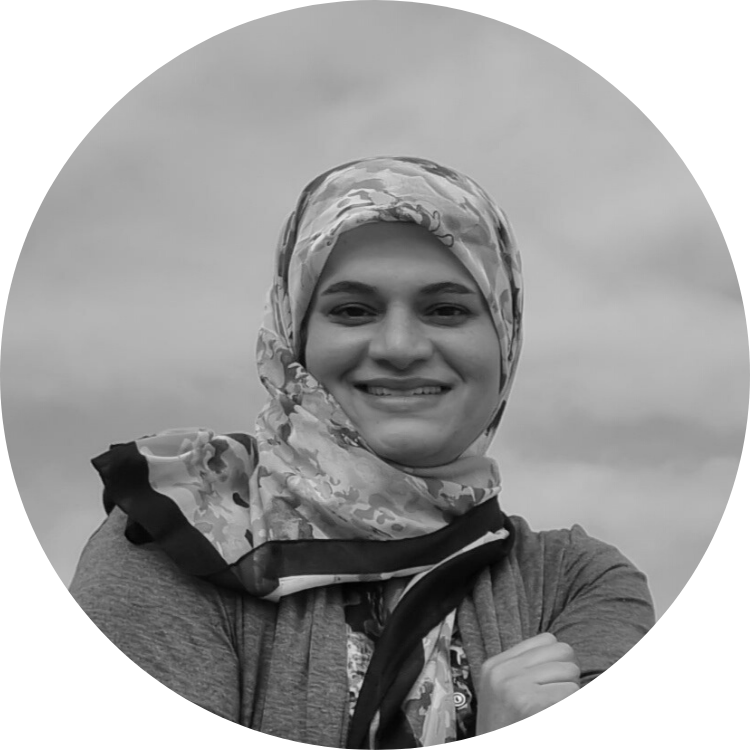
Zahra Zamani
Senior Data Scientist, Telstra
In a normal day, what kinds of data / analytics activities are you involved in?
· Gathering data from different cloud and big data platforms such as AWS and AZURE.
· Cleaning and preparing the data
· Building features in different languages like SQL and Python
· Running data analysis and statistical analysis on the data to gain insights
· Modelling and applying various ML algorithms to solve the problem. Most problems are formulated as supervised learning or unsupervised.
· Examples of the models I've ran are Propensity to buy models, churn models, cross-sell propensity models, uplift models for call reduction, clustering and classification of network faults.
· Gathering the results of the scored model and model evaluation metrics
· Running the model in production and result analysis
What are the biggest challenges you face?
· Cross platform data and how to avoid duplication while having the data ready for models
· Prod vs dev environment setup. Often leads to more time required as the data or parameters might be different across the two spaces.
· stakeholder understanding of the data driven approach and on boarding them to accept the model outcomes
· not enough time to test different algorithms or parameter tuning as the business often wants quick turnaround
What would be the proudest or most enjoyable moment in your analytics career?
Running models live and seeing it help the business is always a great moment. For me the first time our peopensity model generated revenue was a very proud moment.
What advice would you give to a woman wanting to get into the analytics industry?
· Ask questions from people and from the data
· After spending time in the coding world which is more of a boys club, the data environment has been very accepting and diverse. Still dont feel pressured for the need to suppress your life with work, instead balance them and ask for breaks if you need time.
· Being a mum is challenging but my work has always supported me and using flexible hours has allowed me to focus on work and my family.
· Experiment with models and data a lot and dont give up
In terms of the future of analytics, what do you think will be the most interesting aspect/s?
Autonomous AI in everything and everywhere!

Laura Travers
Senior Business Partner - Data and Insights, Afterpay
In a normal day, what kinds of data / analytics activities are you involved in?
My role within Afterpay sits in the Customer Science & Strategy team which is a function that supports the entire organisation, from sales to marketing to trade to investor relations. The key objective of my role is to unlock the value of Afterpay data to help win with our customers, merchants and market, scaling actionable insights through world class data & insight. Being a global role, and with Afterpay moving at such a rapid pace, no two days are ever the same.
On a daily basis I work on multi million dollar acquisition pitches - the most recent being worth $1.2bn, where my role was to showcase the value of our data and insights proposition and identify the opportunities of utilising our data to drive new customers and frequency. This was a pitch we were successful in, with the feedback being that the data and insights component played a critical role in securing the partnership.
I also recently worked on a sophisticated behavioural segmentation project which utilised machine learning to segment our customers based on their purchasing behaviour with Afterpay. This is something that is now embedded into the fabric of the organisation and forms the common language of how we speak about our customer. I leverage this segmentation on a daily basis to help develop effective cross market customer strategies, ensuring relevance and delivering to customer needs to drive engagement, enabling and elevating the next evolution of targeted communication.
The segmentation has already proved successful in early stages of testing in our Afterpay day campaign, with our tailored comms driving a 9% uplift on never active users compared to a 10% hold out group. This proved confidence and support of our analytics capabilities and how we can be more efficient and effective in our marketing spend.
A key focus of my role is also around how we can effectively improve processes and scale insights throughout the business. This involves working closely with our analytics function to build reports that can be used throughout the entire organisation, applying a key commercial lens of what is interesting to the business and our partners. I have also led the rollout of ThoughtSpot, an insights tool, in order to democratise data within the business and to empower teams to pull their own insights. With this, I have set up training sessions and provided teams with the right tools to be successful and self-sufficient in leveraging data driven insights within their role.
What are the biggest challenges you face?
I would say the biggest challenges are the same as those faced by anyone working as an analytics professional - ensuring the data we leverage is telling the right story and is also constantly actionable. We have so much data available it can be overwhelming - ensuring we are looking at the right data to make smarter business decisions is a constant challenge.
For Afterpay more specifically, a key challenge is the pace of the business and ability to prioritise workload. My role is global, supporting multiple teams, and with over 50k merchants hungry for insights, it’s key to know where to focus your efforts that will drive the greatest value and impact for our business, customers, and merchants alike. That can be a challenge in itself, often with competing priorities.
Lastly, from a market lens, increasing competition is a challenge. BNPL as a product is being commoditized and competition in this space is getting more and more heated. Having the ability to cut through the noise and being able to identify and communicate the Afterpay value proposition - one that is backed by data - is critical. We are the pioneers in this space, we have a fiercely loyal customer base, and drive incrementality to our merchant partners - being able to effectively communicate and quantify that value is essential, whilst also being able to provide actionable recommendations on how we can improve our product offering backed by data driven insights.
What would be the proudest or most enjoyable moment in your analytics career?
I’ve been lucky enough to work at Afterpay for 5 years now in my analytics career and my proudest (extended) moment is to be part of the evolution of our analytics and strategy team and see us go from strength to strength in terms of how we work with our merchant partners and leverage our rich data. In just over a year our customer science and strategy team has grown 5 fold to over 25 people and with my deep understanding of the business and being there at its infancy, I’ve played a consultative role on how we shape and develop our insights as well as being that strategic merchant partner having a deep understanding of merchants needs.
One product roll out which was monumental to the business - and industry - is iQ; an AI-powered insights, visualisations, and real-time data platform in one self-service UI, which empowered and enabled merchants to access simplified insights for their entire organisation. I was heavily involved from the pilot to identify merchant needs and garner feedback, to consulting on it’s development and holding regular feedback sessions to help inform and build the product roadmap. The uptake and feedback was phenomenal on how it helps inform strategic business decisioning as well as informing the next best marketing action, which is testament to its success. “iQ is helping us talk to the right customer in the right way,” HiSmile.
What advice would you give to a woman wanting to get into the analytics industry?
The next decade will be dominated by companies that master data driven customer experiences, but what is critical is the application of that data. With a vast amount of data out there, those businesses that will succeed are those that are razor focused on driving out the ‘so what’ and provide actionable insights - otherwise the data is redundant. It is therefore essential to interrogate every insight with the lens of whether it adds value to key stakeholders and creates new opportunities to drive growth.
Whilst being technically proficient is important, it is critical to have a strong commercial lens and be able to identify trends and opportunities within the data as well as the ability to communicate findings into a customer focused narrative. You will often be presenting to stakeholders of all levels with varying degrees of data proficiency and therefore it is critical to present data in a simplified way that can very easily be interpreted.
Lastly, the ability to ask the right questions to get to the crux of the problem is crucial. It's one thing to know the answer to a data related question, it's another to be able to help the business know what questions they should be asking and to see your work have real impact on the business because it's grounded in actionability.
Very often people ask for data without knowing what they will do with it or the problem they are trying to solve. A great analytics professional will be able to unpack that and provide them richer insights that will more effectively answer their question.
In terms of the future of analytics, what do you think will be the most interesting aspect/s?
I think it’s the continued rapid evolution of machine learning and AI and how it offers the ability to disrupt and enhance our existing processes in virtually every segment of society. It’s expected future impact is huge in achieving efficiencies to everyday operations, business processes and boost productivity. Whilst it has provoked fear of the potential need for humans becoming redundant, it enables business leaders to make more informed decisions and analyse immense volumes of data that a human couldn’t possibly do alone in a timely manner, creating space for more strategic big picture thinking and greater innovation. As well as making it easier for end users in business functions to interpret data and have clear visualisations at their fingertips, democratising data and becoming central to a company's culture. I’m interested to see how that unfolds over time.
